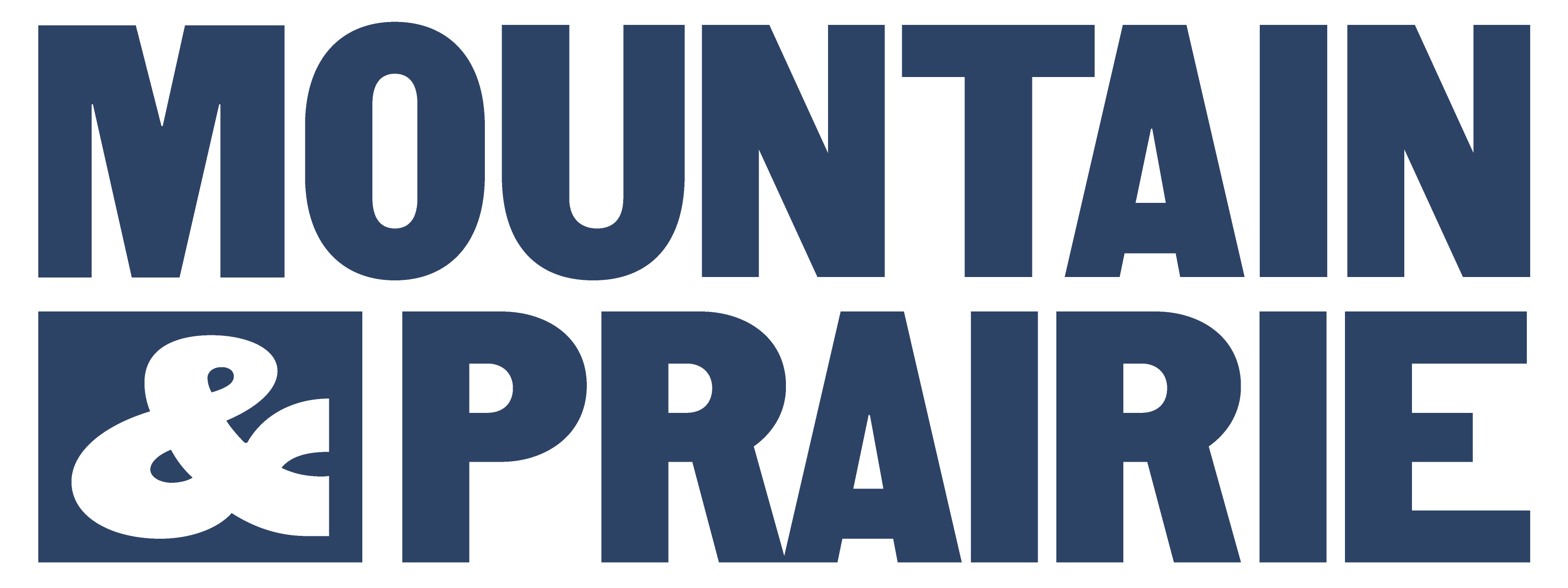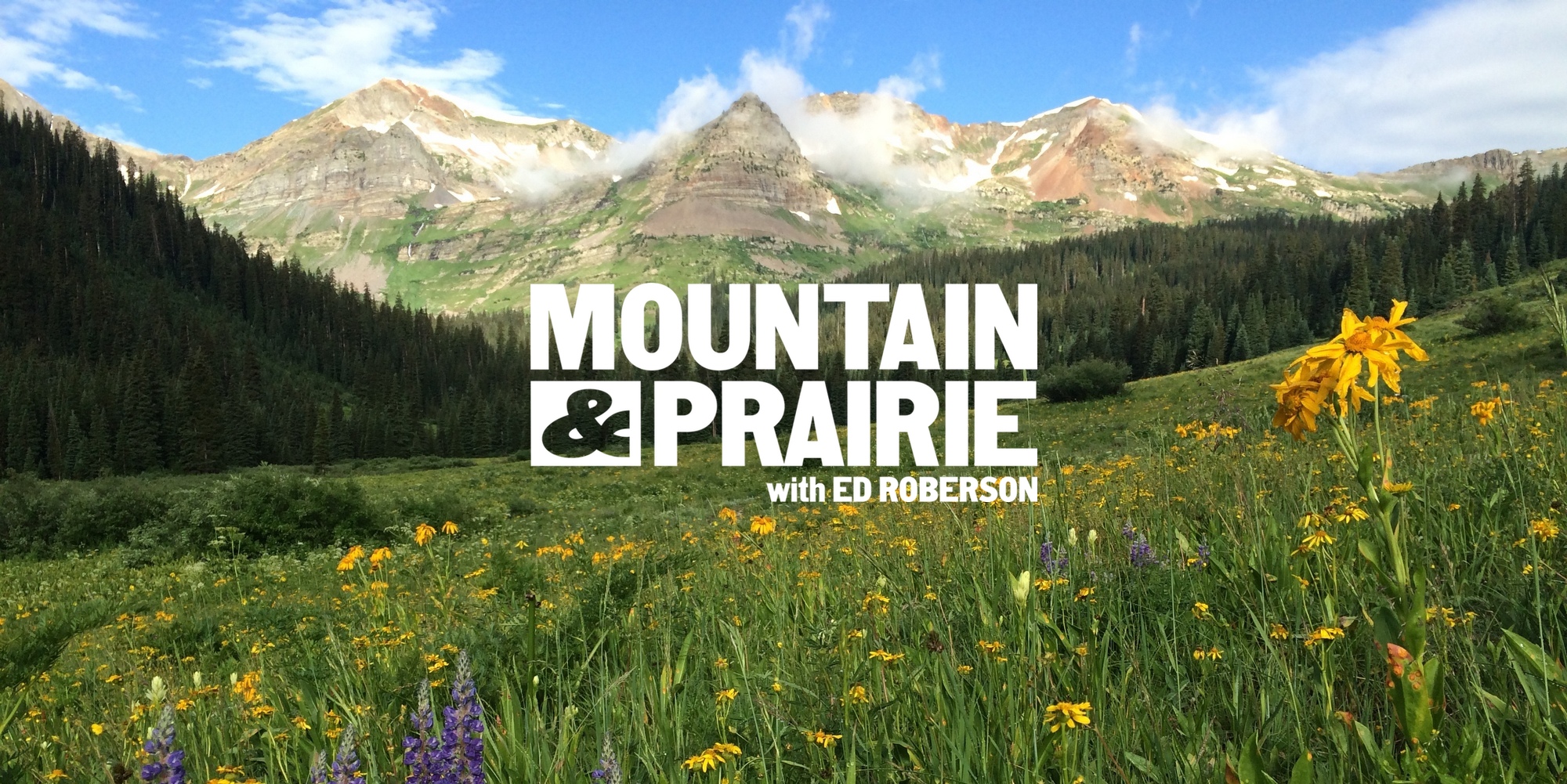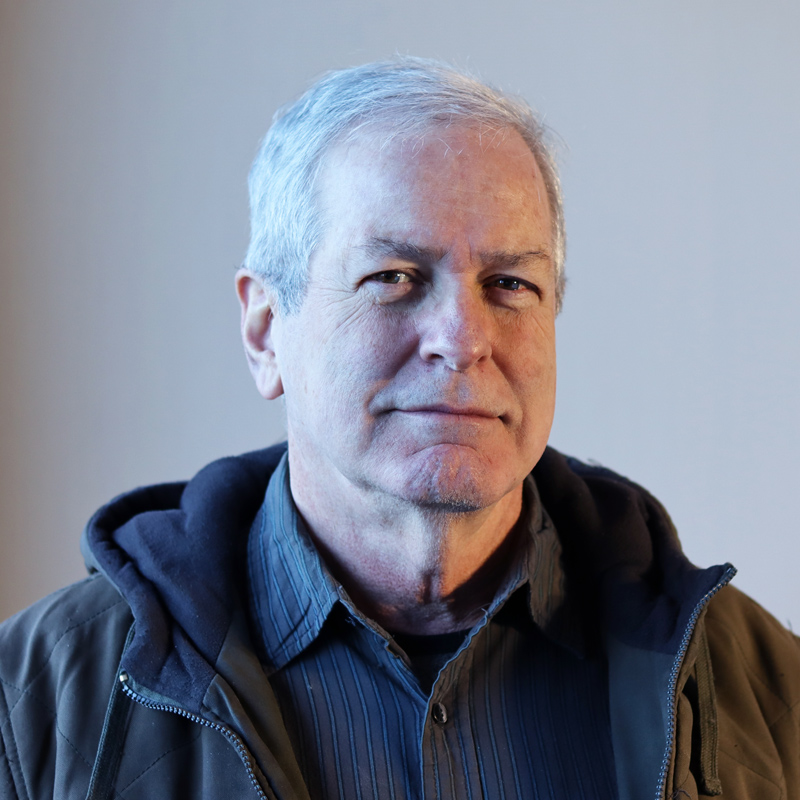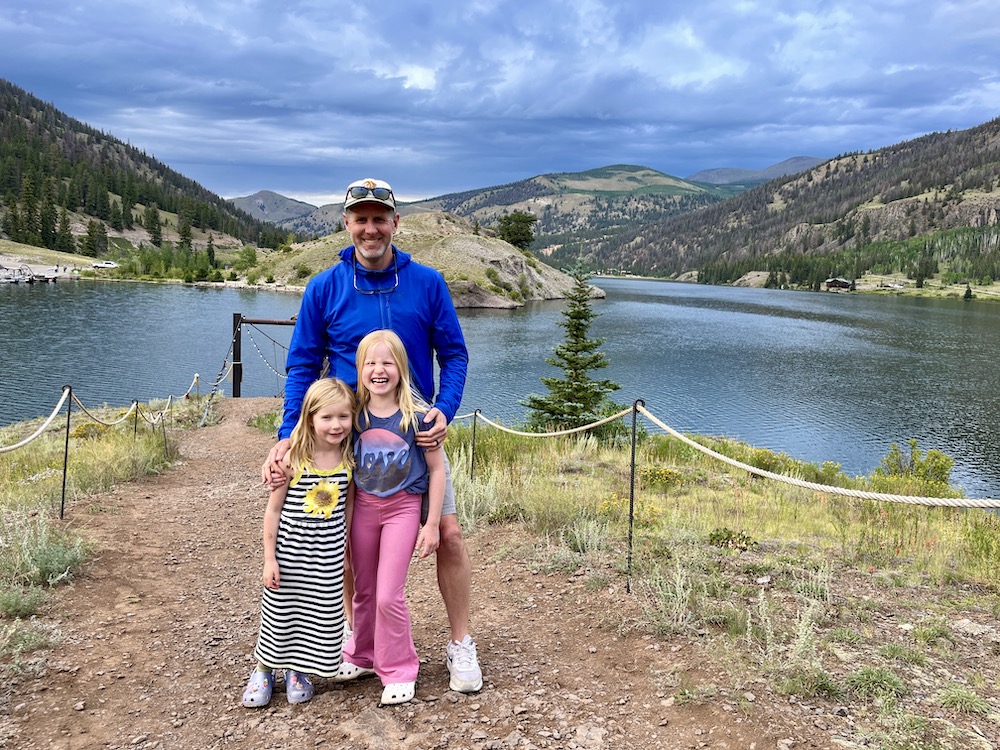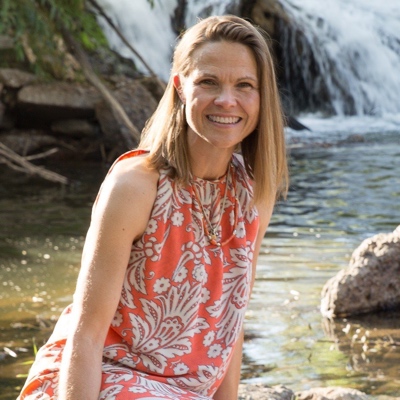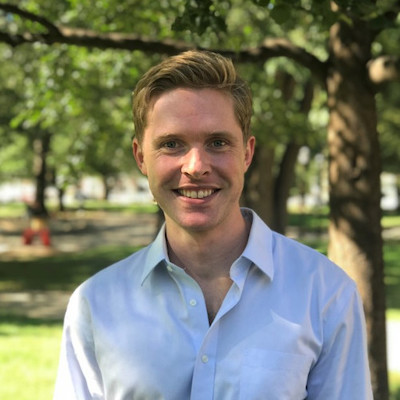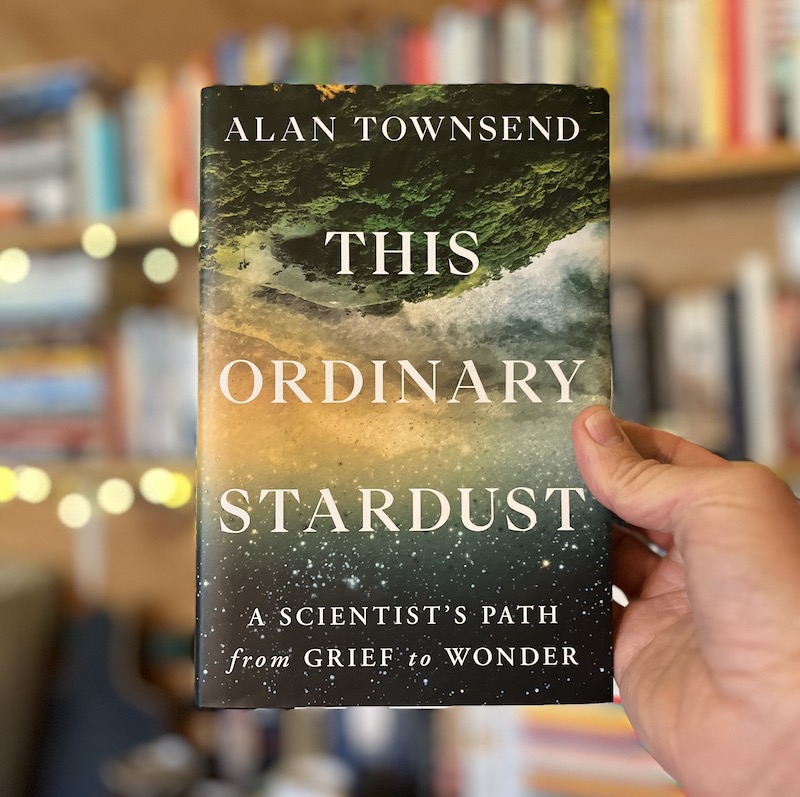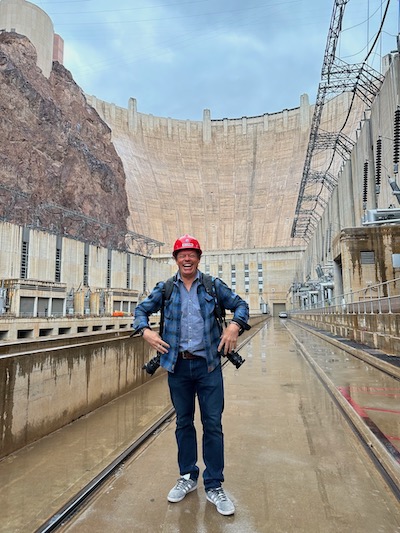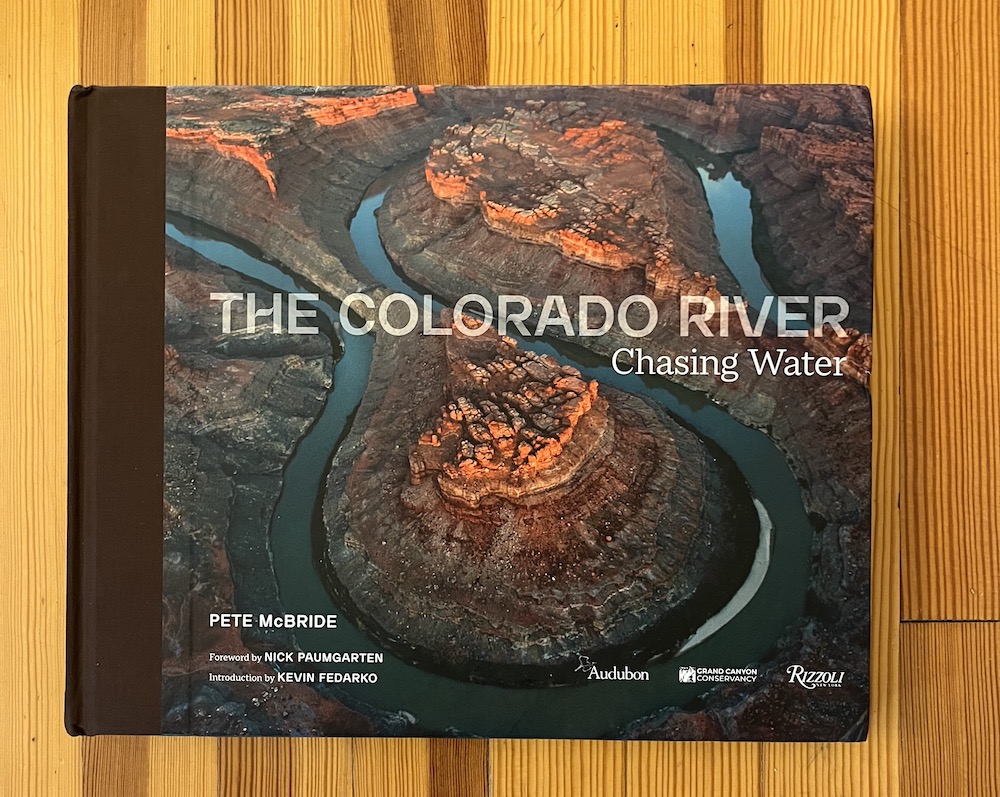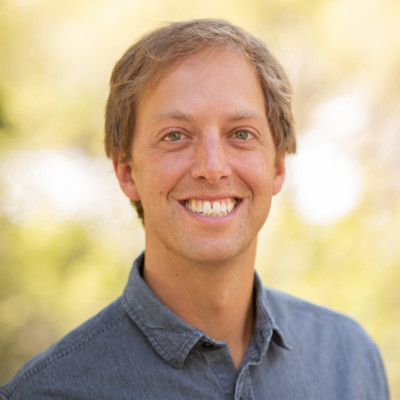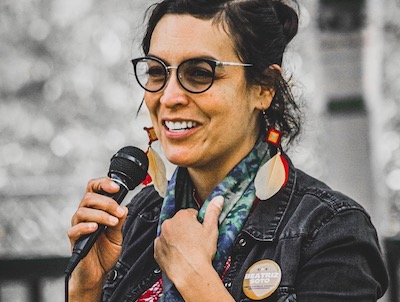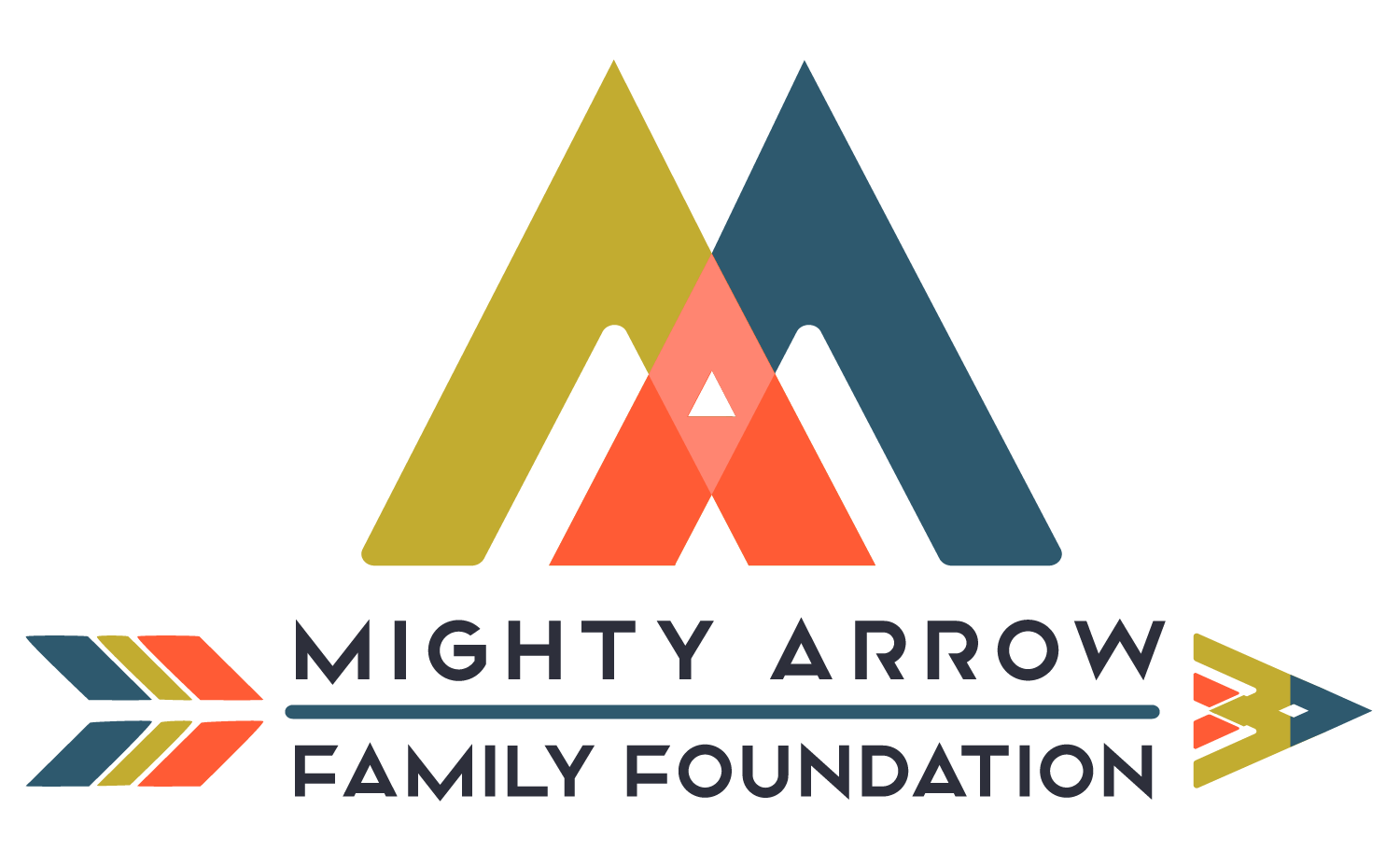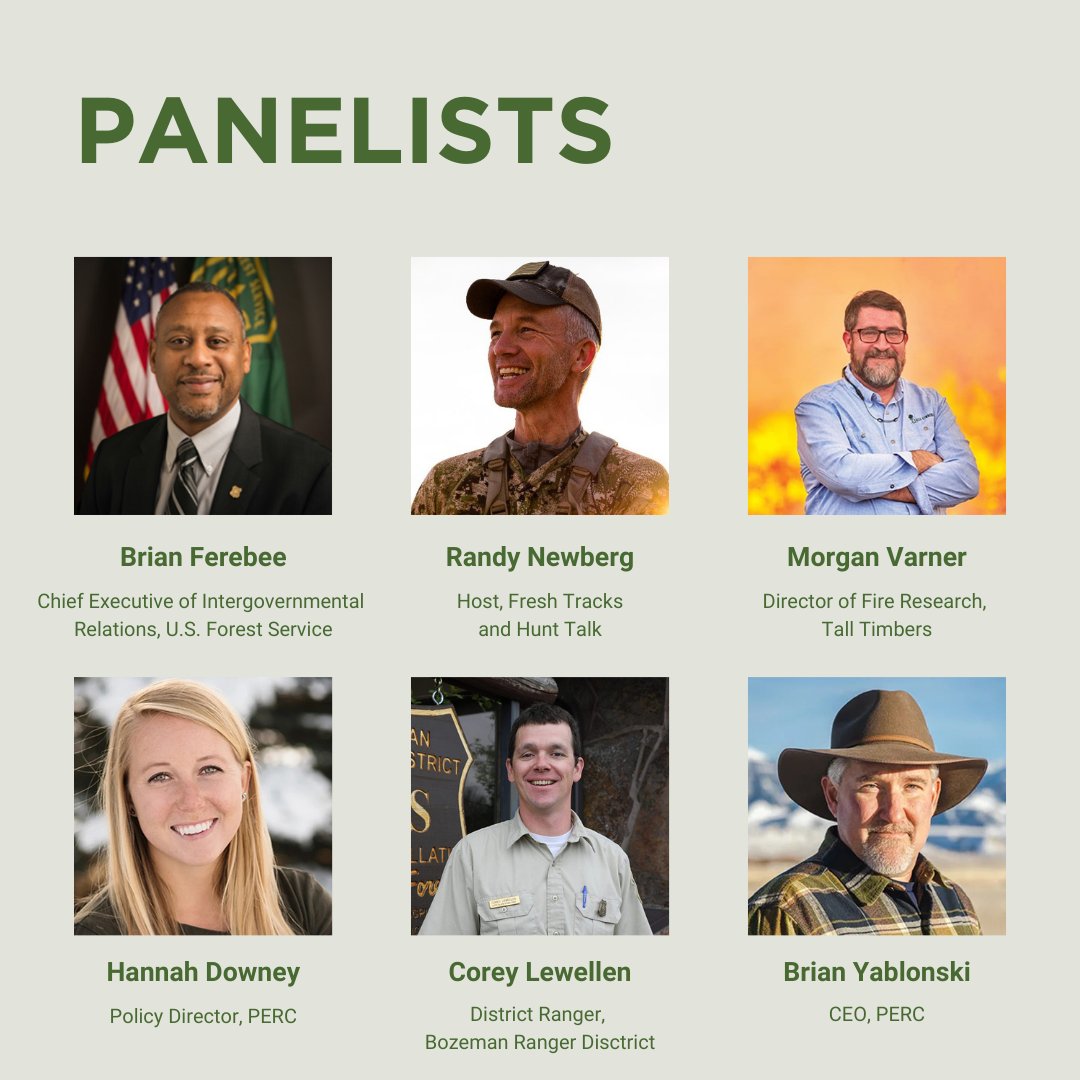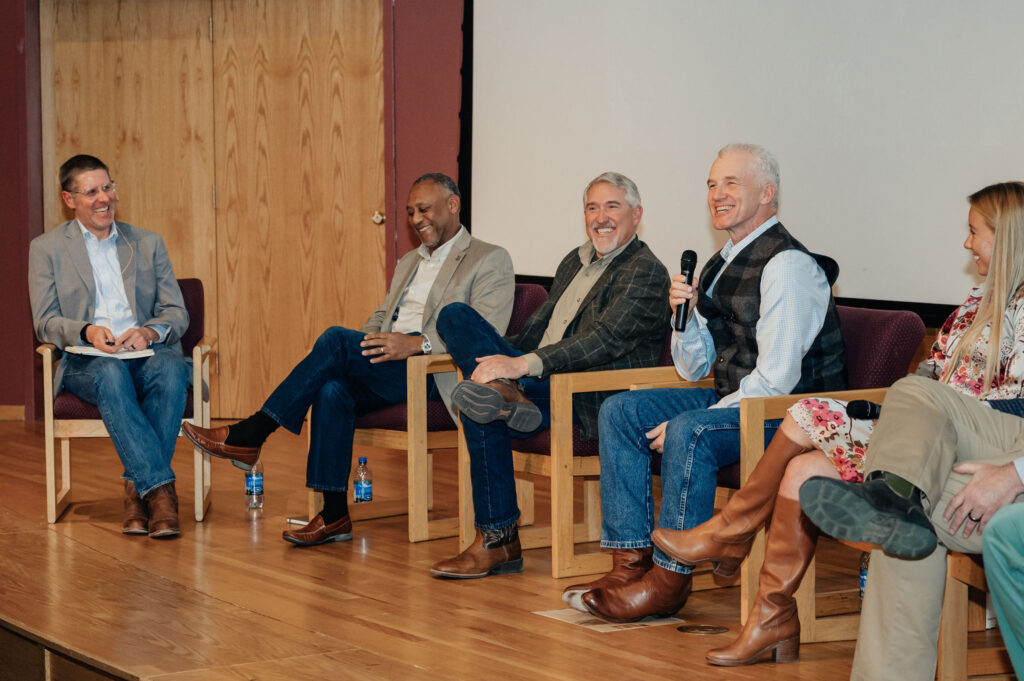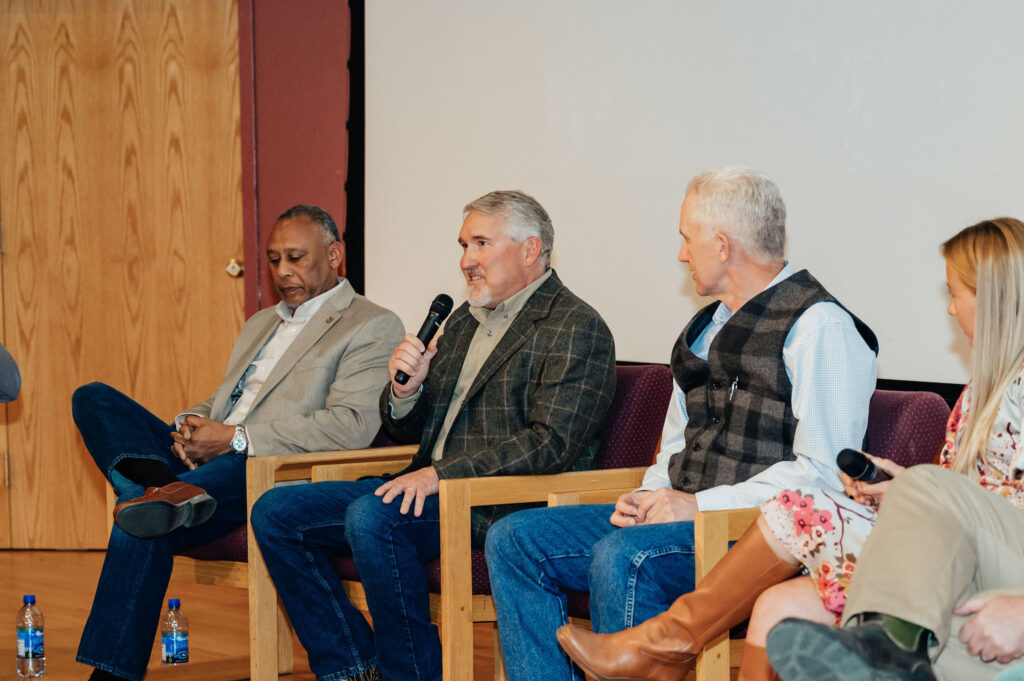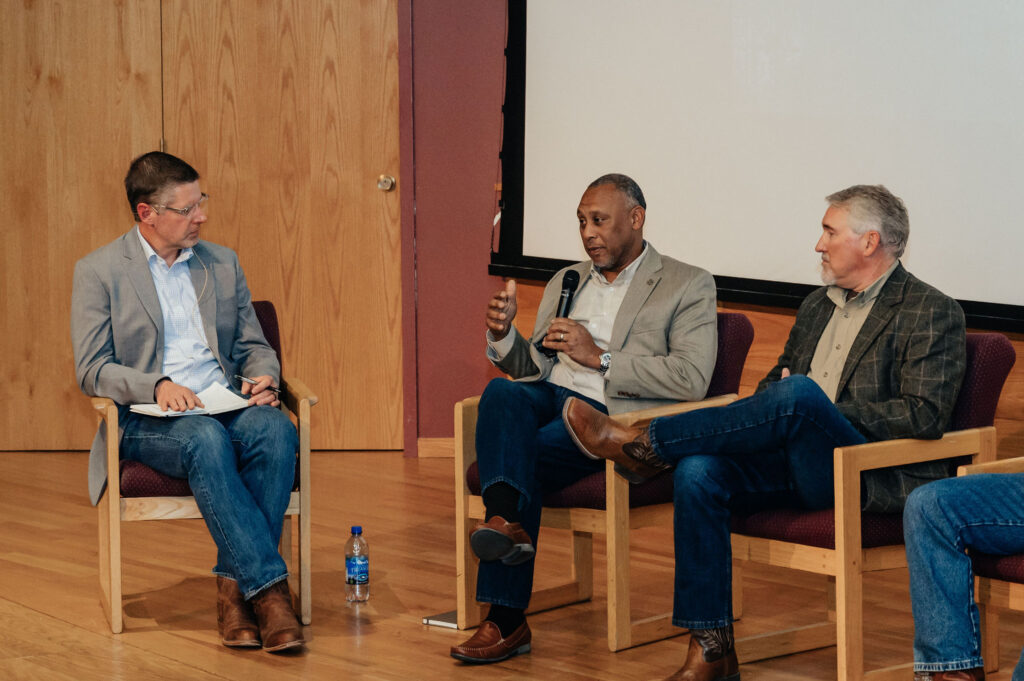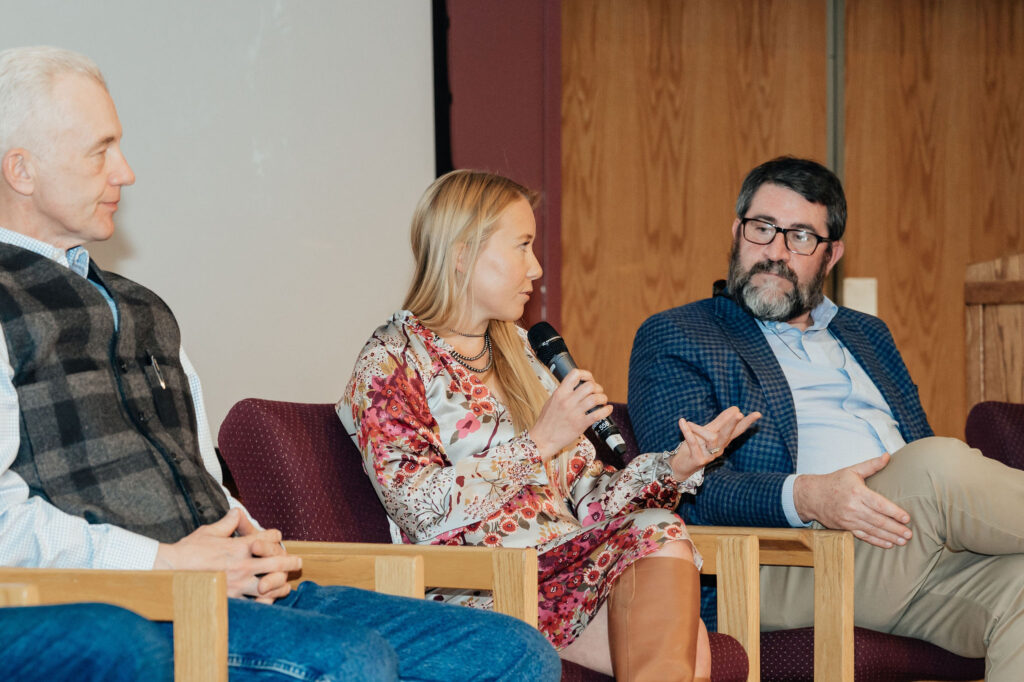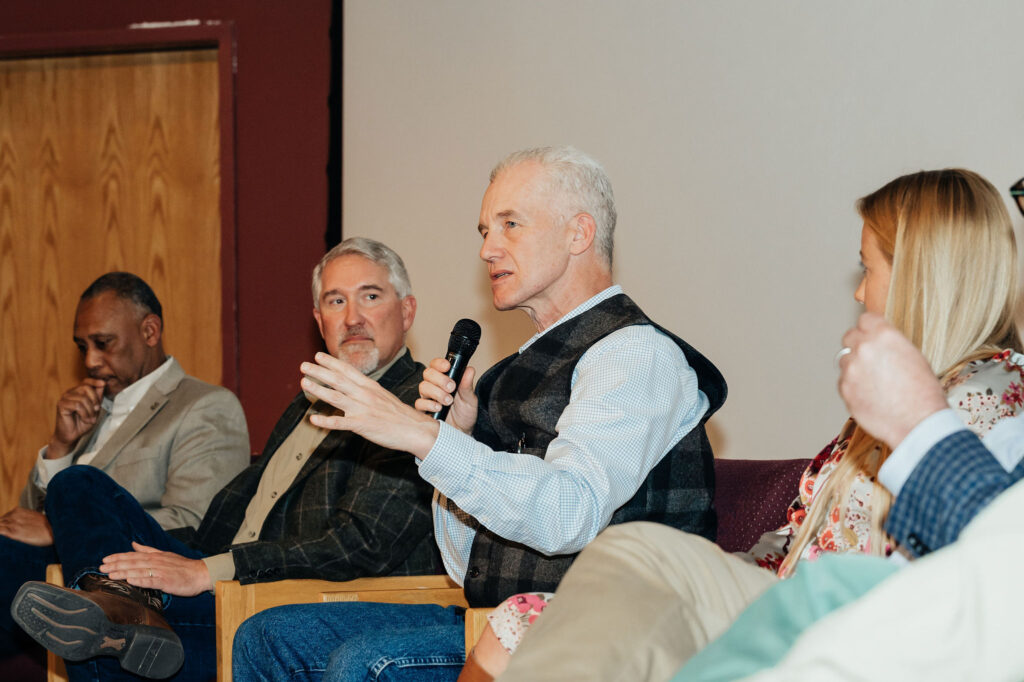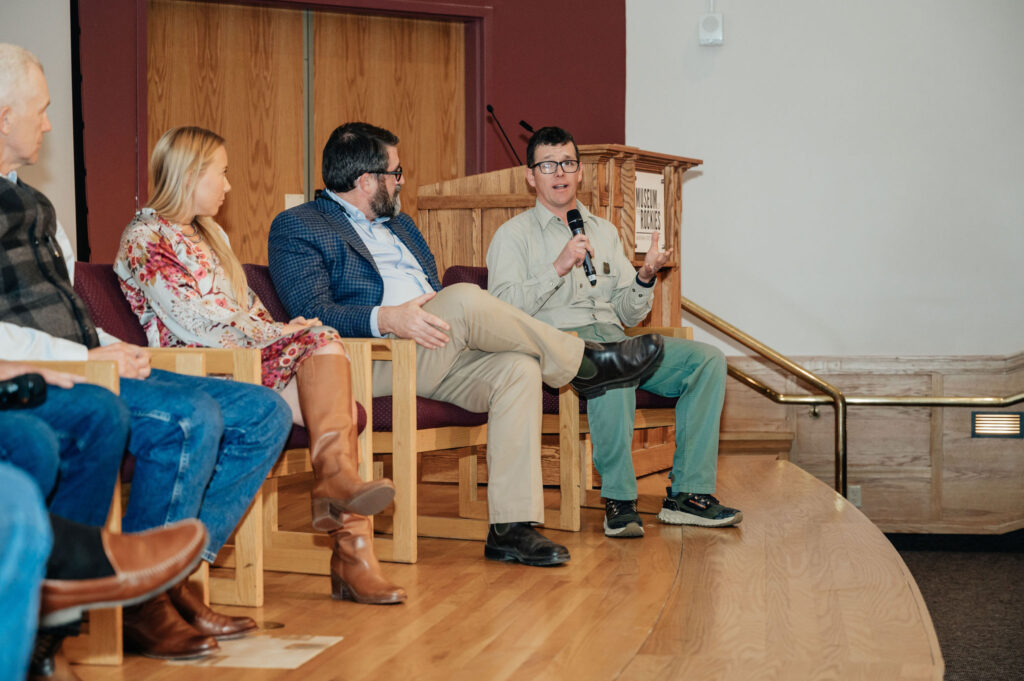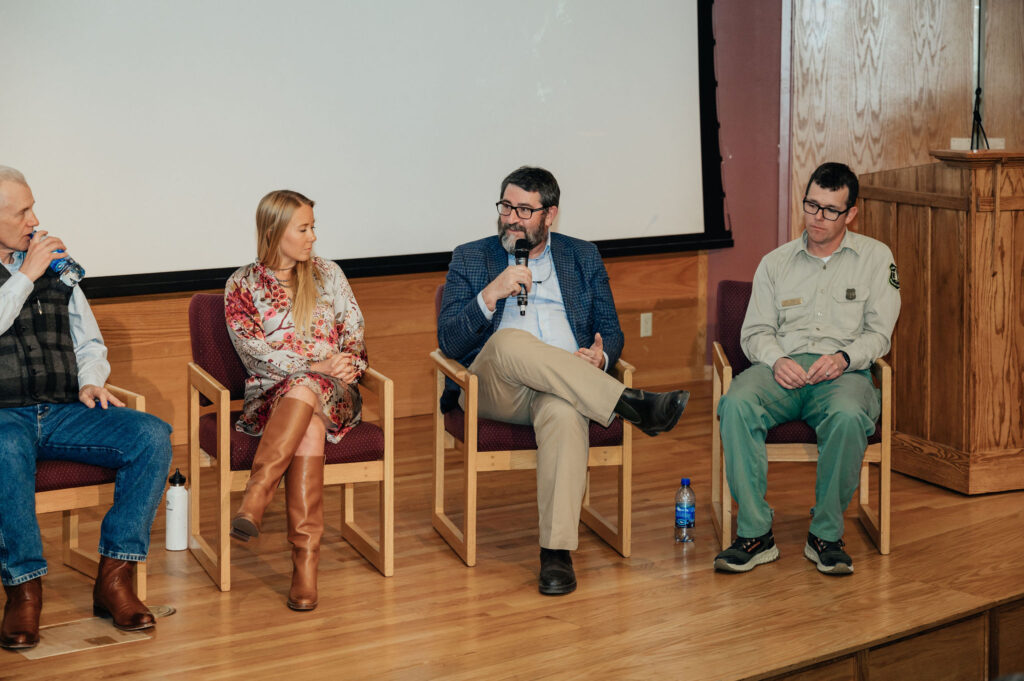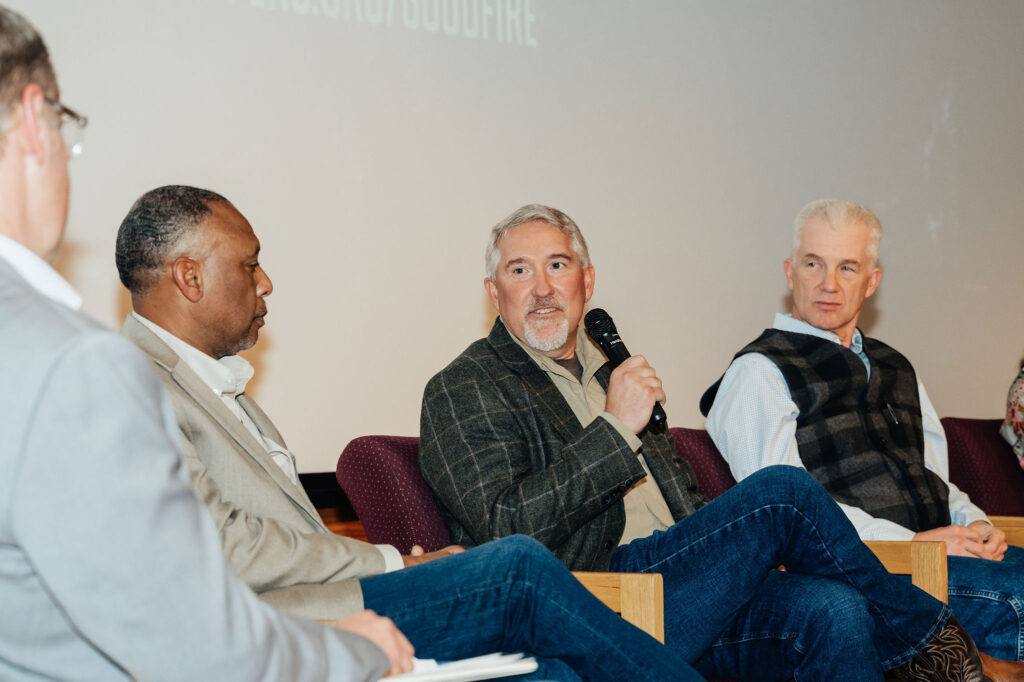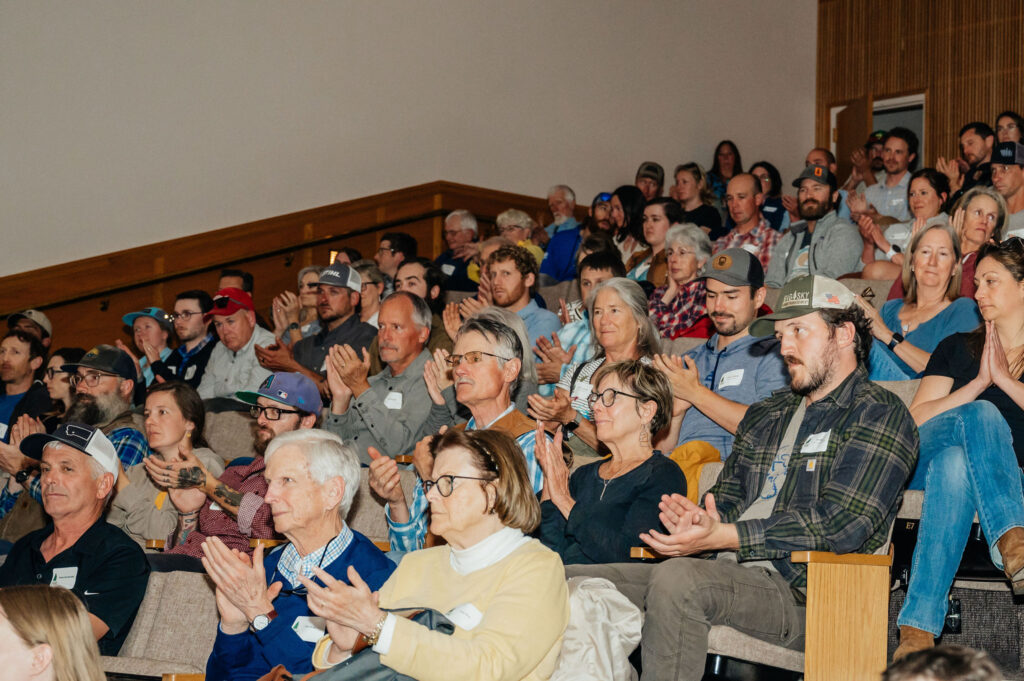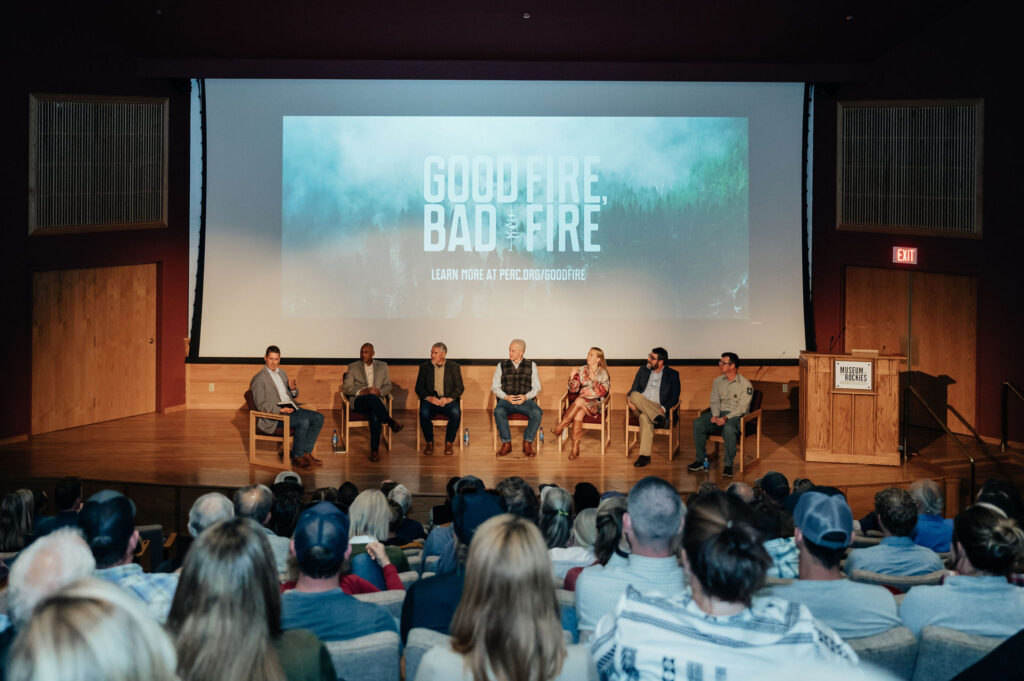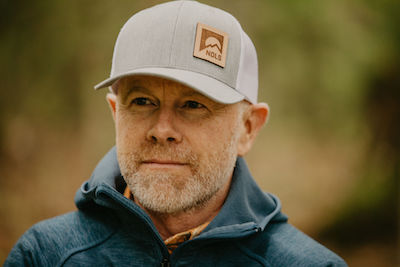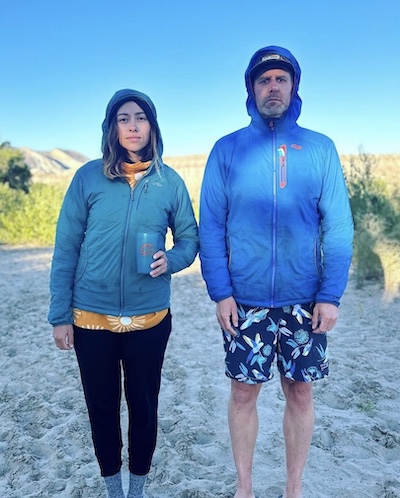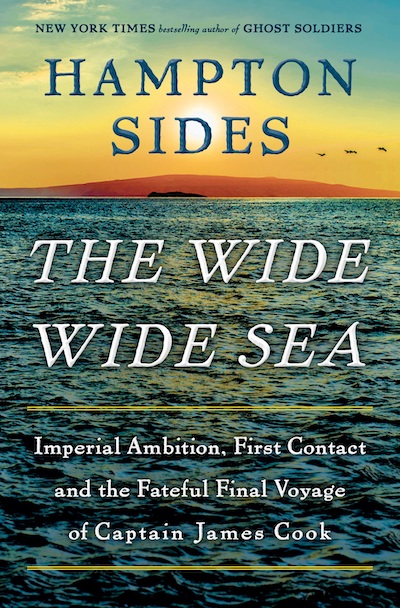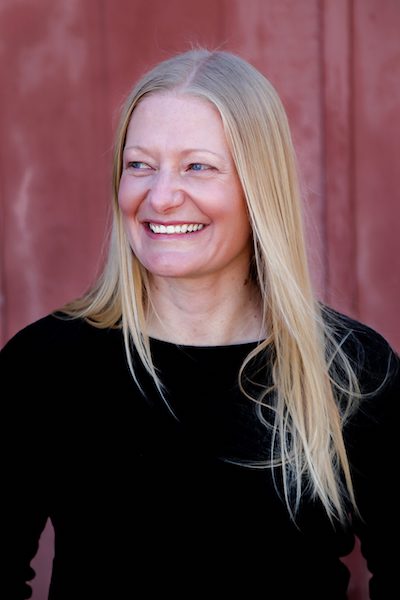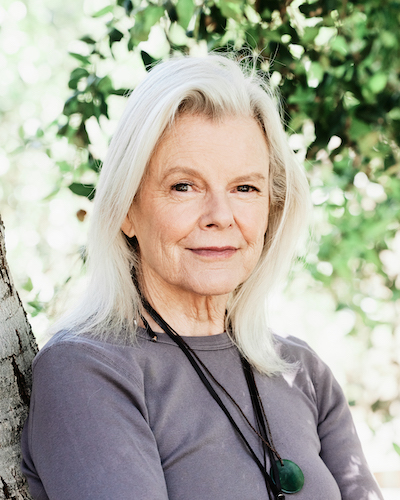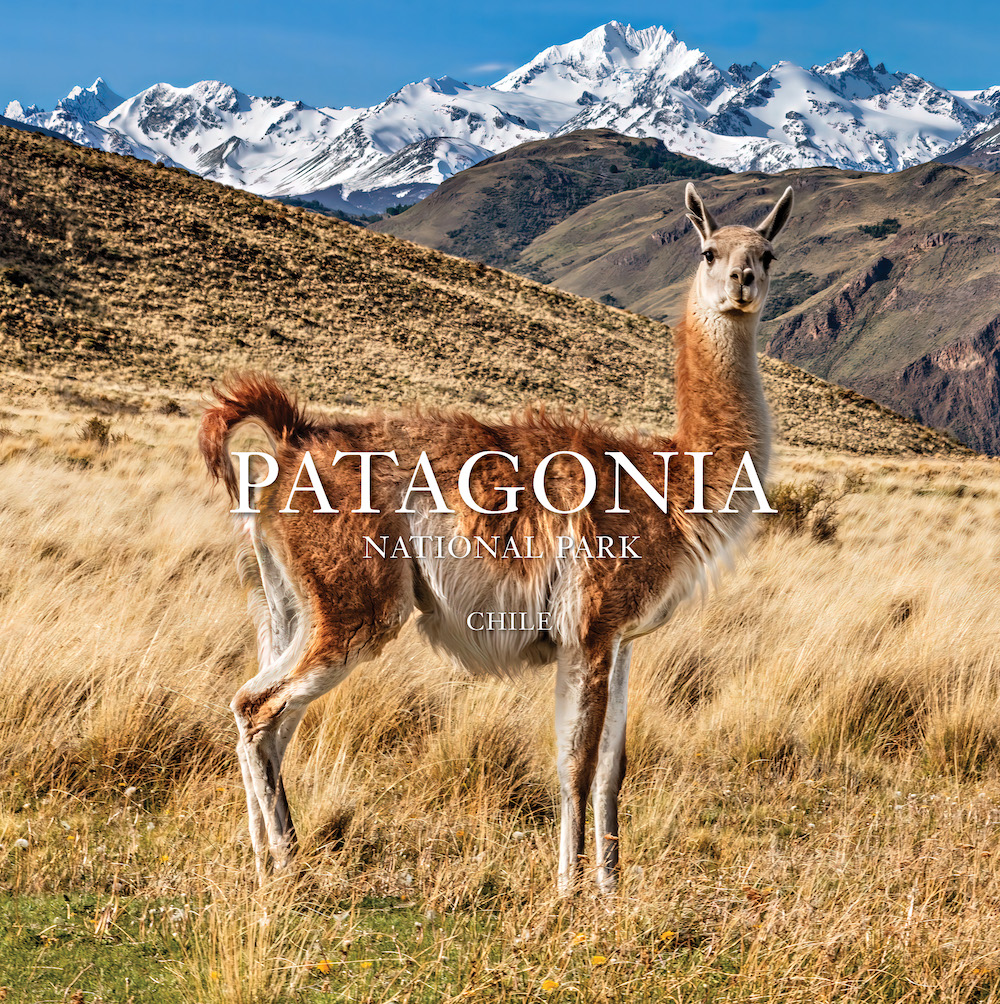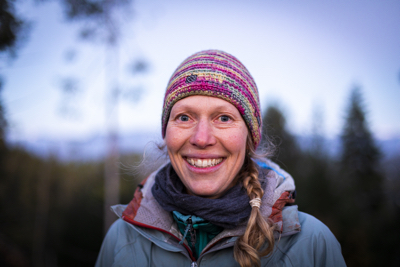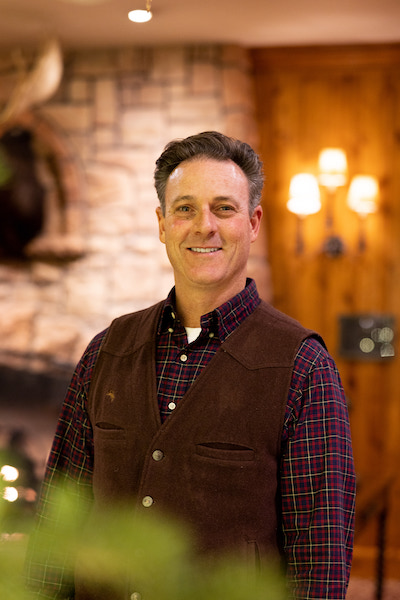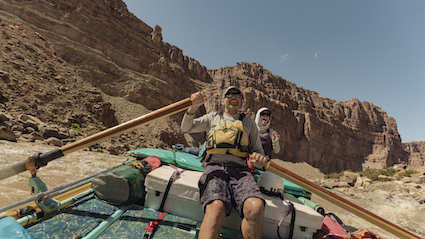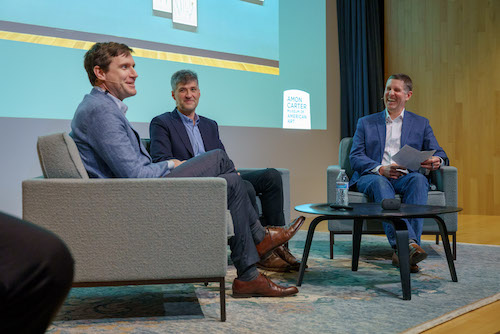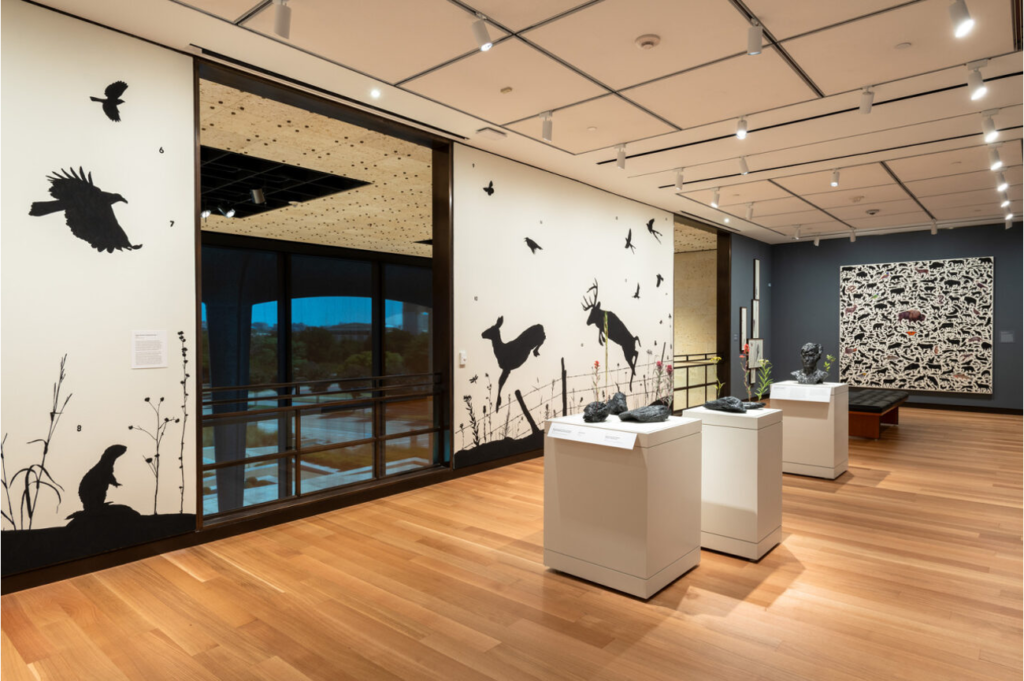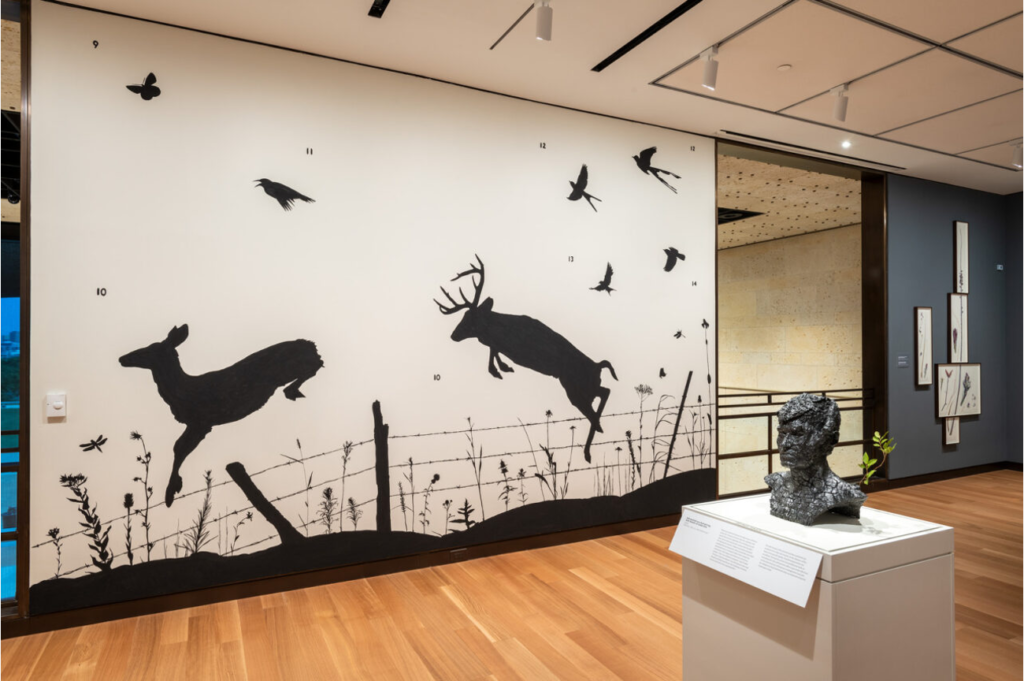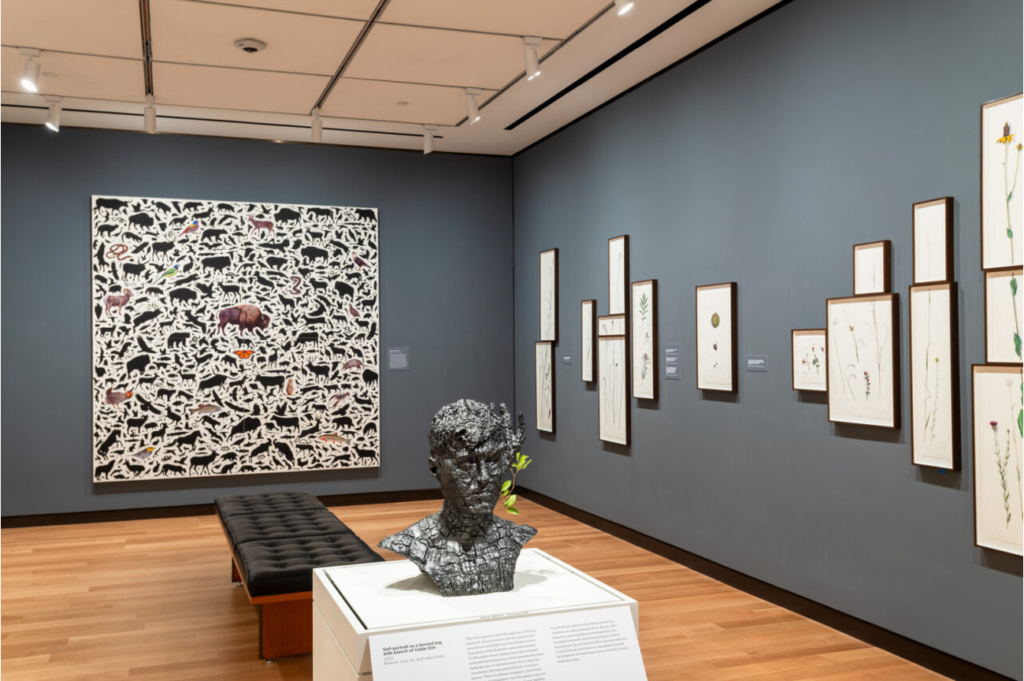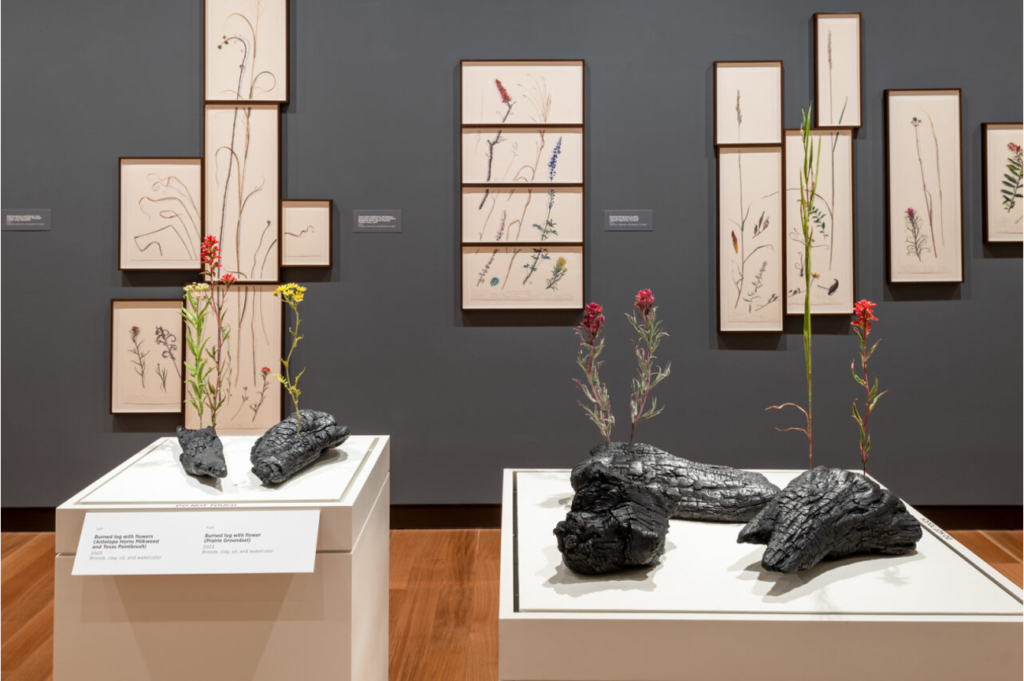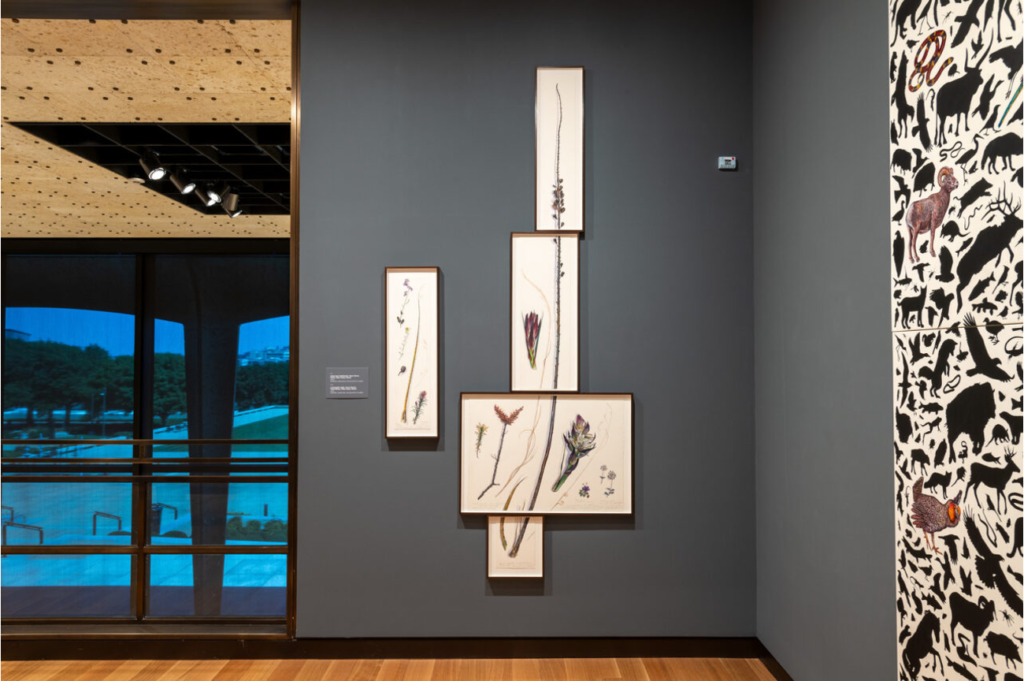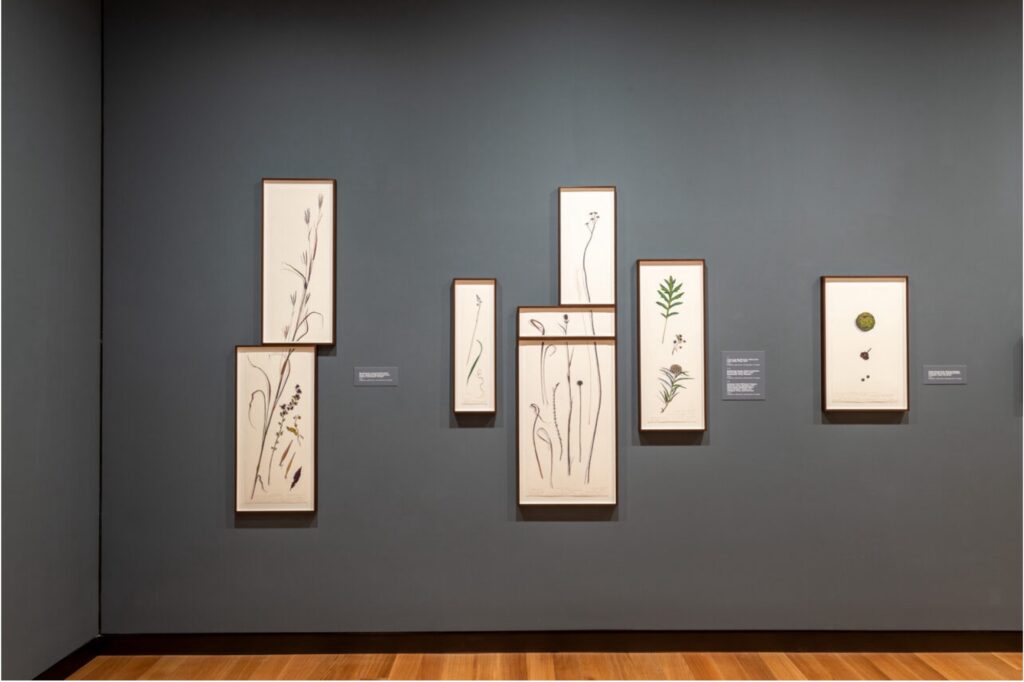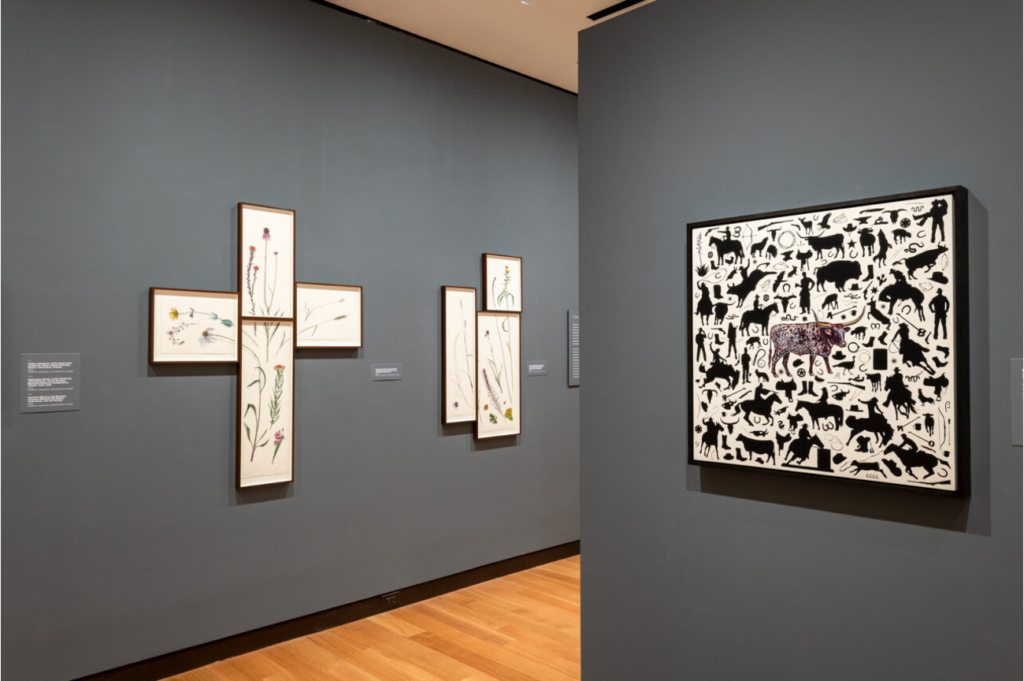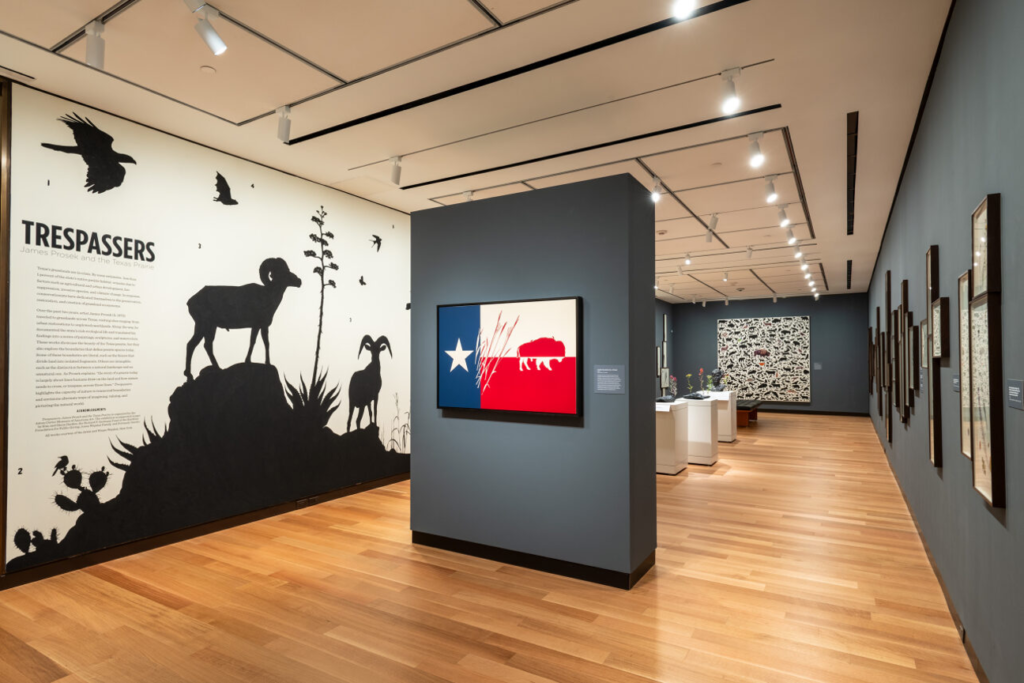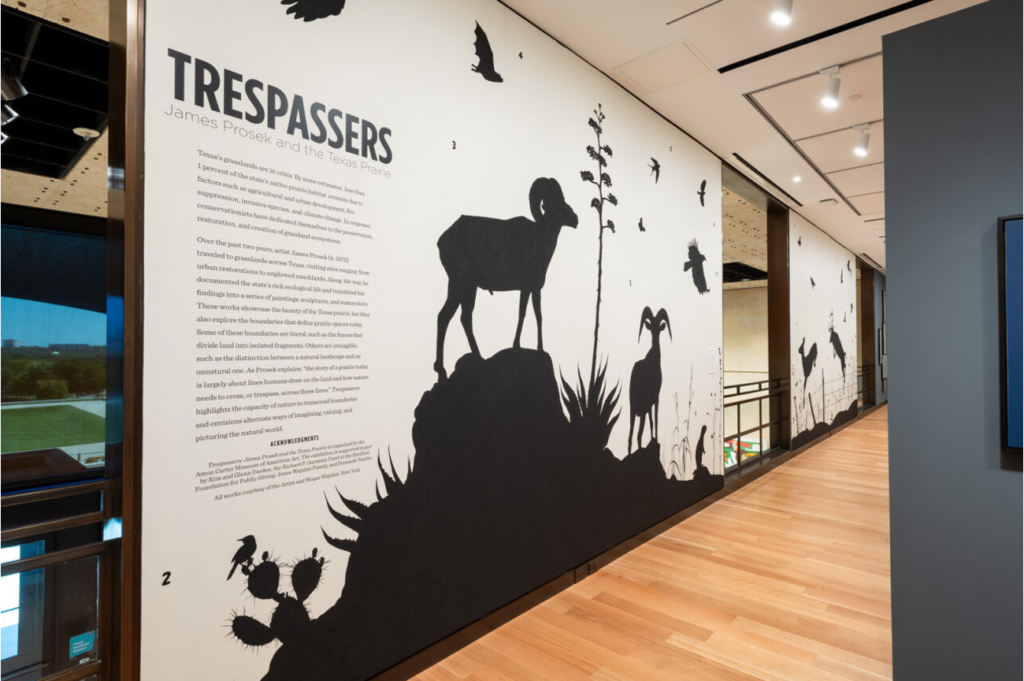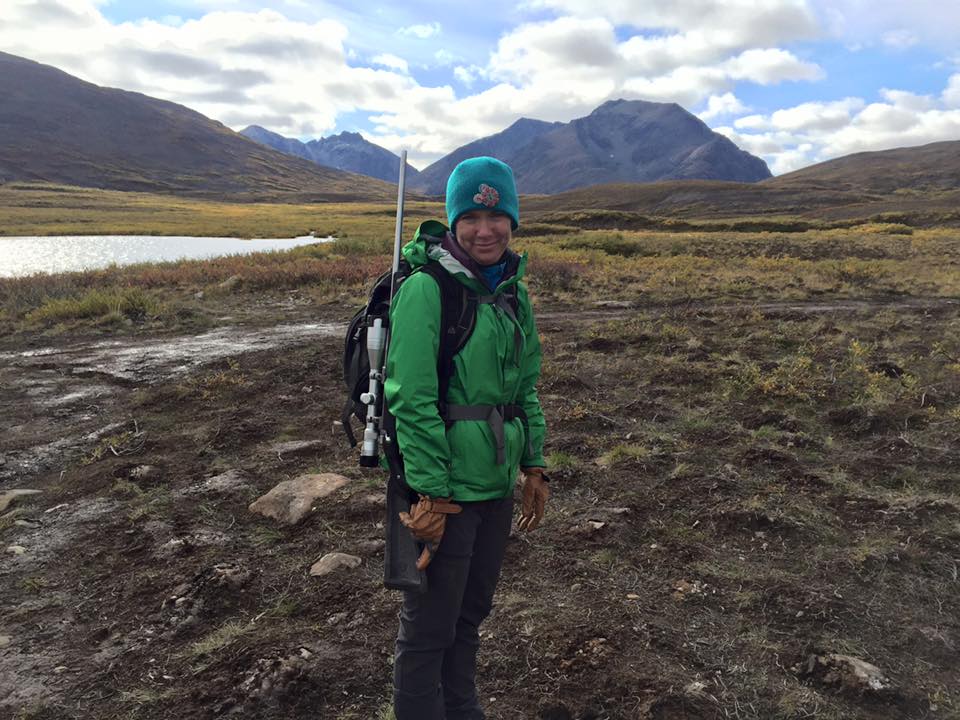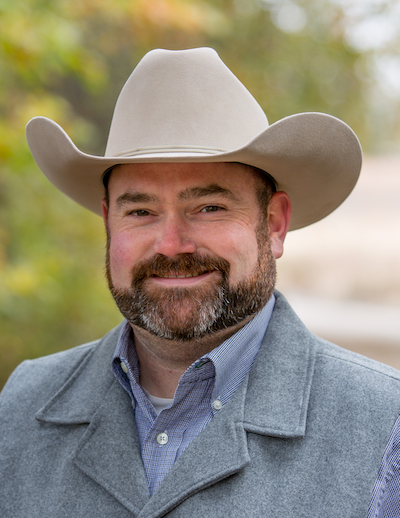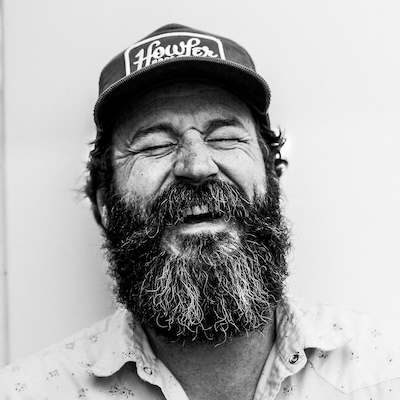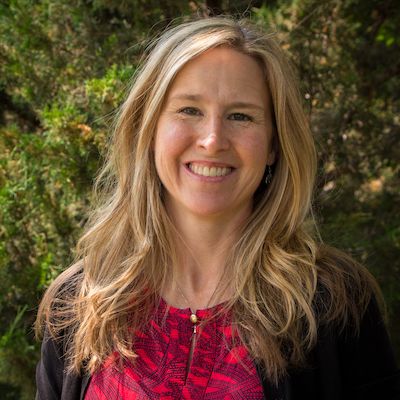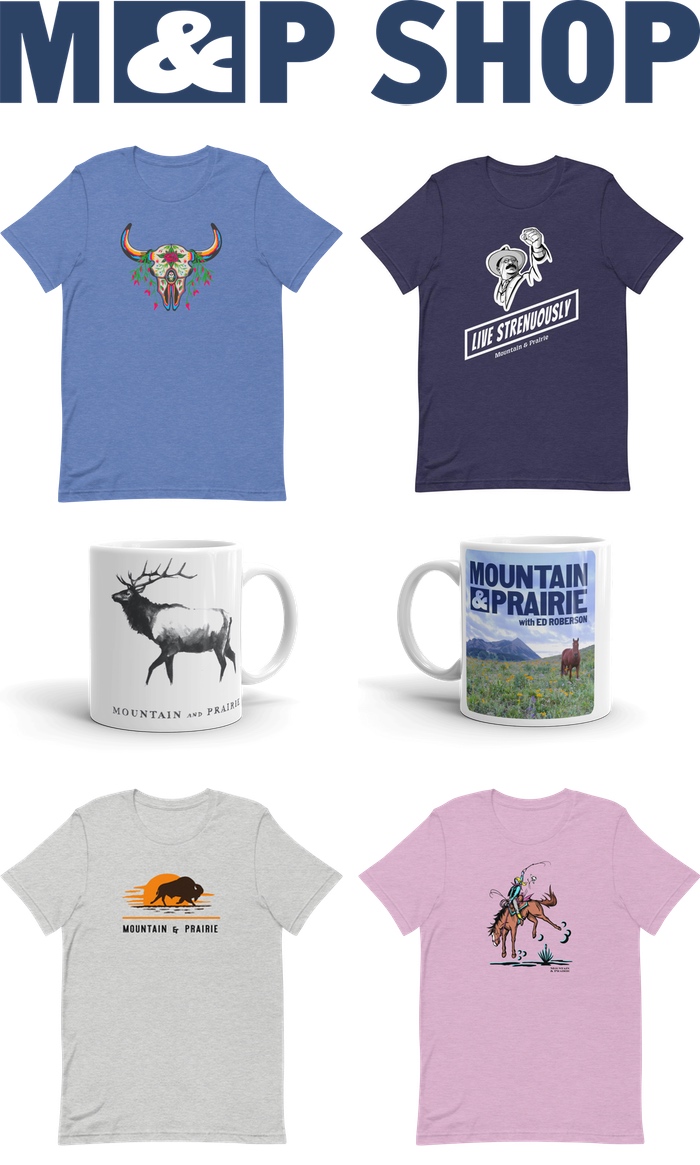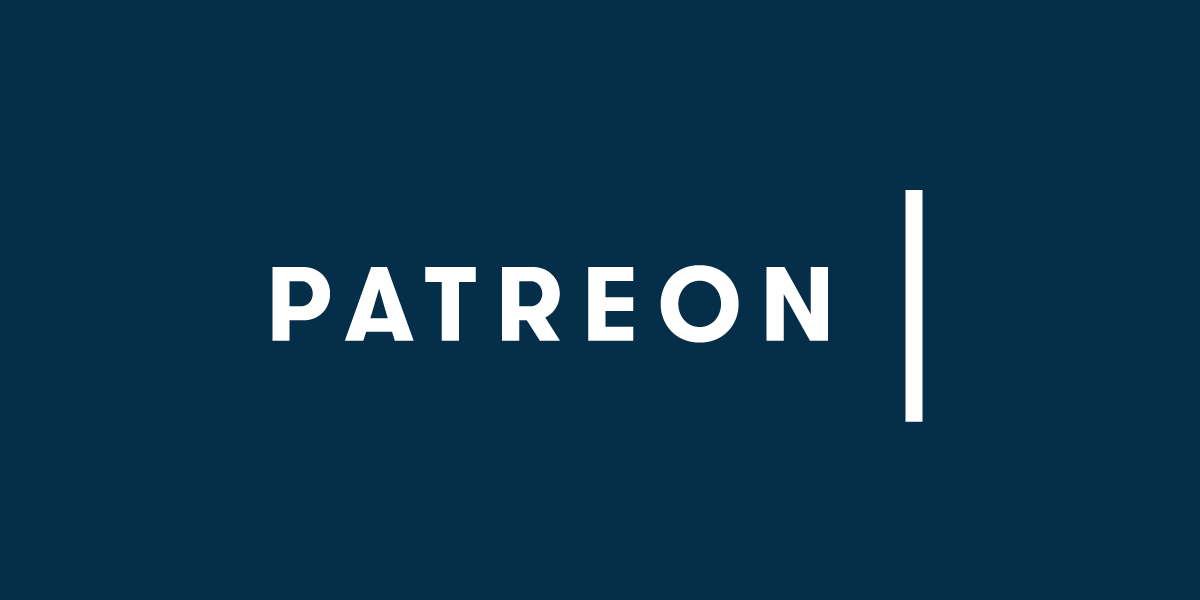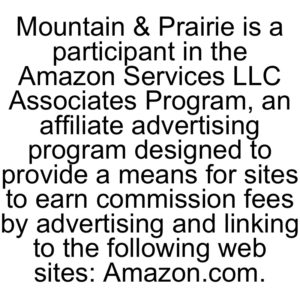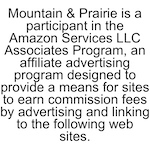Curt Meine – Aldo Leopold’s Life, Work, and Enduring Legacy

Curt Meine is a Senior Fellow at The Aldo Leopold Foundation and one of the world’s foremost experts on the life, work, and legacy of conservation icon Aldo Leopold. Curt is the author of the biography Aldo Leopold: His Life and Work, and he also works as a conservation biologist, a professor, a senior fellow with the Center for Humans and Nature, and much more.
Since the very beginning of Mountain & Prairie, Aldo Leopold has been one of the most referenced, admired, and influential conservation thinkers whose name and ideas have been referenced over and over on the podcast. Whether I’m talking to people in agriculture or entertainment, writing or athletics, history or politics, there always seems to be a thread of thinking that connects many Mountain and Prairie guests to the Land Ethic of Aldo Leopold.
So, I was long overdue in devoting an episode exclusively to Leopold, and I was thrilled to have the opportunity to chat with Curt, one of our most admired and trusted Leopold scholars. Whether you are brand new to the work of Leopold or you’ve read A Sand County Almanac a hundred times, I think you’ll learn a lot from this episode. Curt has a real gift for discussing the details of Leopold’s life in an amazingly engaging way, while also helping us to understand Leopold’s legacy in the context of the broad history of North American conservation.
We start the conversation with an overview of Leopold’s early years and upbringing, and his eventual enrollment in the Yale School of Forestry. We discuss Leopold’s formative years in the American Southwest, how his outside-the-box ideas about wildlife sometimes clashed with the status quo, and his eventual move back to Wisconsin. We talk a lot about Leopold’s personality and how it compares to other conservation icons, how his work was received both in his lifetime and after his death, his surprising challenges finding a publisher for A Sand County Almanac, and that book’s long-lasting influence. We also discuss criticisms of Leopold’s work, some of his ideas that may not hold up as well today as they did in their time, and Leopold’s abundant curiosity and willingness to change his mind. We also discuss books, the very important work of the Aldo Leopold Foundation, and much more.
Be sure to check out the episode notes for a full list of topics and links to everything. And also, I want to thank my friend, the great conservationist and all-around amazing human Doug Duren for so generously introducing me to the team at The Aldo Leopold Foundation and being such a steadfast champion of Leoplod’s legacy.
Thanks for listening, hope you enjoy.
—
Photos courtesy of Wikipedia and The Aldo Leopold Foundation
LISTEN & DOWNLOAD:
Apple Podcasts
Spotify
… or wherever you get your podcasts!
—
RESOURCES:
Topics Discussed:
- 3:45 – Aldo Leopold’s upbringing
- 11:15 – Leopold’s work in the Southwest
- 16:30 – How Leopold’s persona may or may not have helped (or harmed) him in his efforts to implement conservation
- 20:!5 – What brought Leopold back to his home state of Wisconsin
- 22:45 – How Leopold’s novel ideas for wildlife management were received by the Forest Service establishment
- 26:45 – How Leopold’s ideas influenced forestry and conservation thinking outside of the Forest Service, and whether or not this influenced FDR’s conservation work
- 32:45 – Whether or not Leopold ever lost his cool in his fight to change land stewardship thinking in the US
- 37:00 – Discussing A Sand County Almanac, and how long it took to be viewed as the influential work it is considered by many to be today
- 43:15 – Leopold’s passion for, and balance between, science and art
- 45:45 – Which of Leopold’s stances or ideas do not hold up today
- 50:45 – Leopold’s willingness to accept change and criticism, and its importance today
- 53:15 – An overview of the Aldo Leopold Foundation
- 57:45 – Curt’s book recommendations
- 1:01:30 – Curt’s parting words of wisdom
Information Referenced:
- Curt Meine
- Aldo Leopold – His Life & Work by Curt Meine
- Aldo Leopold Foundation
- Nick Offerman
- Sauk Tribe
- Meskwaki Tribe
- Apache-Sitgreaves National Forest
- Douglas Brinkley
- A Sand County Almanac by Aldo Leopold
- Silent Spring by Rachel Carson
- The Meadow by James Galvin
- Wendell Berry
- Gary Snyder
- Terry Tempest Williams
- Robin Wall Kimmerer
- The Center for Humans and Nature
- Beloved Beasts by Michelle Nijhuis
- Gary Paul Nabhan
- Braiding Sweetgrass by Robin Wall Kimmerer
- Gathering Moss by Robin Wall Kimmerer
Enjoy this episode? Then you might like these too:
- Nick Offerman – Empathy, Nuance, & Good Hard Work
- Douglas Brinkley – Exploring the Past to Find Inspiration for the Future
- Dr. Sara Dant Returns – “Losing Eden: An Environmental History of the American West”
- Doug Peacock – 50 Years of Fighting for the Grizzlies
- Hampton Sides – Live at the Aspen Institute
- David Gessner, Part 3 – A Confluence of Conservation Ideals
- Rebecca Clarren – “The Cost of Free Land”
Visit the podcast page for a full, searchable list of episodes
Janie & Louise Roberson – Chatting It Up With Their Old Man
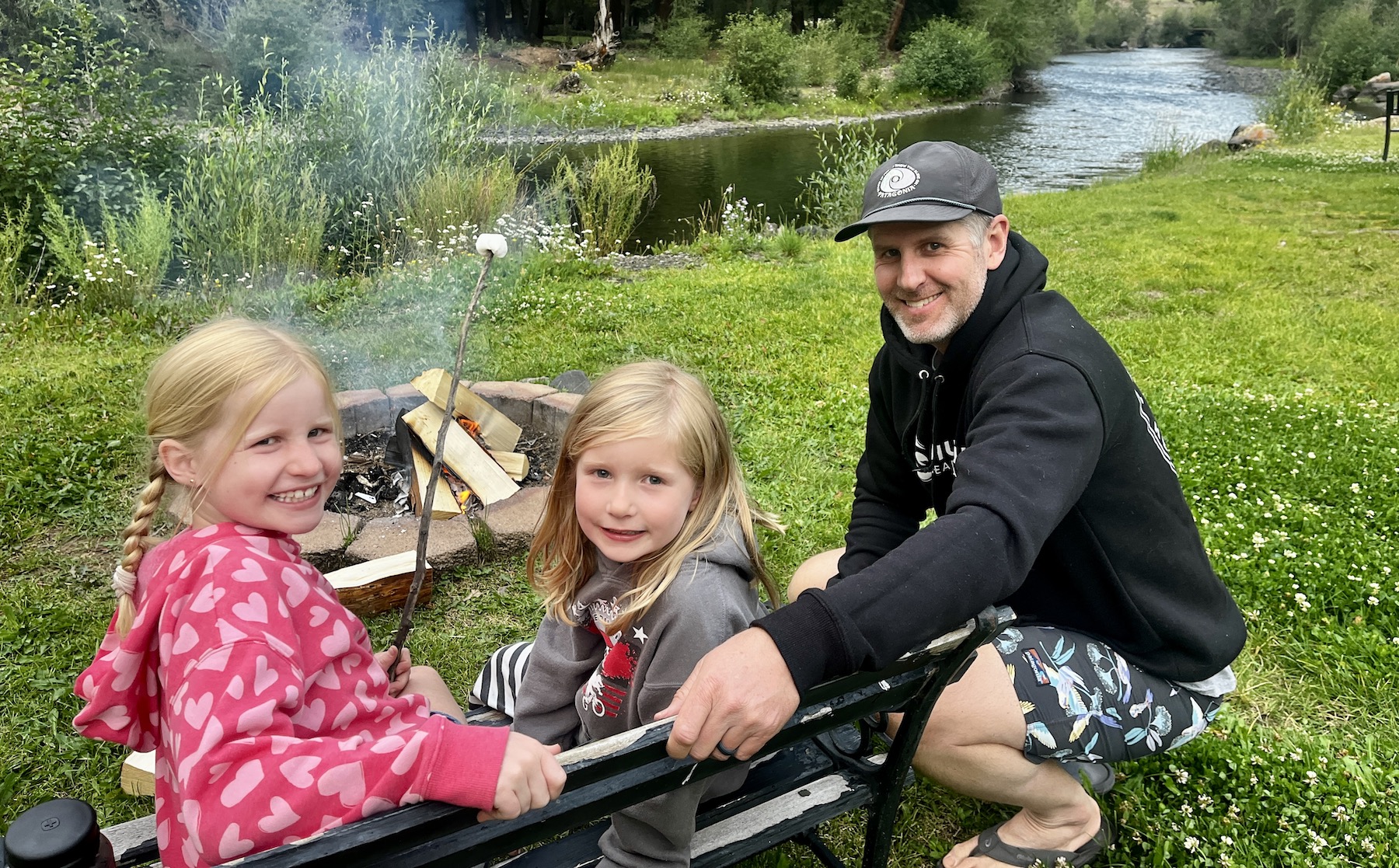
This is a completely different kind of episode, featuring a fun and at times crazy conversation with my two daughters, Janie and Louise.
Back in June, we were eating dinner when, out of the blue, both girls expressed an enthusiastic interest in being guests on the podcast. So the next day, we set up the podcast gear at our dining room table, sat down, and had what I thought was a funny conversation.
Both girls were surprisingly relaxed and acting pretty naturally despite having microphones jammed up in their faces, and I thought that the conversation highlighted their personalities, curiosities, and senses of humor. But I fully understand and admit that I am about as biased as any human can be when it comes to these two girls, so you can take my opinion with a grain of salt.
As you’ll hear, we jammed a lot of crazy topics into thirty minutes, including: camping, what makes for an ideal campground, their understanding of conservation, violin, rock climbing, jiu-jitsu, North Carolina versus the American West, the Biltmore House, silly 19th-century rules about girls wearing bathing suits, Costa Rica, Alcatraz, drunk people, earthquakes and tsunamis, our favorite secret spot in Colorado, favorite books, commentary on my choice of shirts and underwear, and more topics you probably never thought you’d hear on Mountain & Prairie. I also asked them each to prepare a question to ask me, and one of them involved the unexpected topic of me getting into a fight with a wild animal– a subject I’d never really considered in detail.
Anyway, I appreciate you humoring me with this episode. It was fun for the girls, fun for me, and my wife Kim and I will be happy to have this audio time capsule years from now when they are out of the house, living their own lives, and having their own adventures.
Next week, we’ll be back to the normal episodes featuring grown-ups. I’ve got a great line-up of conversations coming your way, including a deep dive into Aldo Leopold’s life and work, a conversation with a Canyonlands conservation/cowgirl/ranching living legend, and live interviews from the Old Salt Festival.
Thanks for listening, and hope you get a few chuckles from this conversation with Janie and Louise.
LISTEN & DOWNLOAD:
Apple Podcasts
Spotify
… or wherever you get your podcasts!
Looking for episodes that feature adults? Then check these out:
- Nick Offerman – Empathy, Nuance, & Good Hard Work
- Kristine Tompkins – Nothing to Lose
- Pete McBride Returns – Exploring & Documenting His Backyard River
- Douglas Brinkley – Exploring the Past to Find Inspiration for the Future
- Sandy Colhoun – Building Leaders Through Outdoor Education
- Kami Bakken – How to Build a Life and Career in the West’s Wide-Open Spaces
- Jenna Pollard – Timber Framing, Organic Farming, Community, and Purpose
Visit the podcast page for a full, searchable list of episodes
Nancy Smith & Austin Rempel – A Surprisingly Simple, Effective, and Scalable Approach to Riparian Restoration
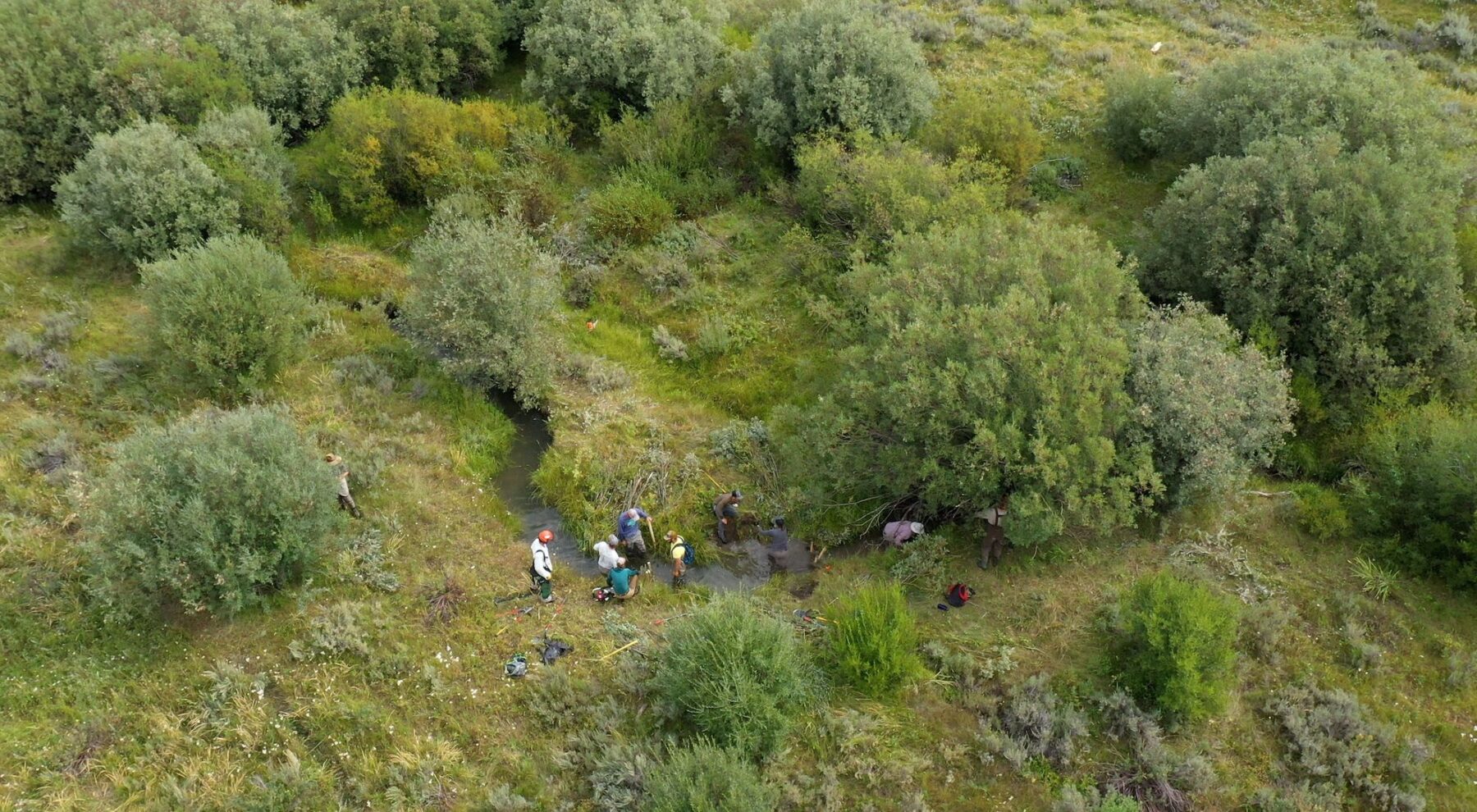
Nancy Smith is the Conservation Director for The Nature Conservancy’s Colorado River Program, and Austin Rempel is the Riparian Restoration Program Manager at The Nature Conservancy. Both Nancy and Austin are working on the front lines of some of the West’s most innovative water and habitat conservation projects– projects that benefit everything from groundwater supplies to wildlife habitat, climate resiliency to ecosystem health.
If you’ve listened to many of these TNC-focused episodes, then you’ll know that TNC works extensively throughout the Colorado River Basin on a wide range of conservation issues that affect people, wildlife, and landscapes. In this episode, we’re going to zoom in on one very specific, very simple, and very effective process that has the potential to have massive positive impacts on ecosystem health throughout the West.
The process is called “low-tech process-based restoration,” which is the practice of adding simple, low-cost structures made of natural materials like rocks, wood, and posts to simulate natural processes like beaver dams in streams and wetlands, kick-starting natural cycles of recovery. These structures require minimal permitting, can be built quickly by hand without heavy equipment, use locally sourced materials, and can be installed by local workers who do not need extensive training. The end result creates surprisingly effective outcomes that can be scaled quickly across vast stretches of the West.
We recorded this conversation the day after Colorado River Day, which was a fitting time to highlight such an important project and process. We started out by discussing how this project came to be, which involved a significant amount of funding from the Inflation Reduction Act. We discuss how rivers have historically looked in the West versus how they look now, as well as the ecological complexities of riverscapes and riparian corridors. We then dig into the details of “low-tech process-based restoration”– timelines, challenges, opportunities, partnerships, and measuring success. We also talk about beavers, shifting cultural norms around conservation, overlaps between forest and riparian restoration, favorite books, and much more.
As you’ll hear, Nancy and Austin provide such an excellent overview of several varieties of low-tech process-based restoration. But for those of you who want to dig deeper into details of the various processes and case studies, they’ve provided me with extensive additional resources that you can access in the episode notes. I’d also encourage you to check out the short film embedded on the episode’s webpage, which will give you a visual overview of the process and its results.
A big thanks to Nancy and Austin for the fun conversation, and thank you for listening.
Photos courtesy of The Nature Conservancy, header photo © Jeremy Roberts
LISTEN & DOWNLOAD:
Apple Podcasts
Spotify
…or wherever you get your podcasts!
EPISODE PARTNER:
This episode is brought to you in partnership with the Colorado chapter of The Nature Conservancy and TNC chapters throughout the Western United States. Guided by science and grounded by decades of collaborative partnerships, The Nature Conservancy has a long-standing legacy of achieving lasting results to create a world where nature and people thrive.
On the last Tuesday of every month throughout 2024, Mountain & Prairie will be delving into conversations with a wide range of The Nature Conservancy’s leaders, partners, collaborators, and stakeholders, highlighting the myriad of conservation challenges, opportunities, and solutions here in the American West and beyond. You can access all of the episodes here.
To learn more about The Nature Conservancy’s impactful work in the West and around the world, visit www.nature.org
RESOURCES:
Topics Discussed:
- 4:00 – Nancy’s intro
- 5:26 – Austin’s intro
- 7:15 – The impact of wet upland meadows on the Colorado River (Nancy)
- 10:00 – How the Inflation Reduction Act has funded TNC’s important partnership work (Nancy)
- 13:30 – Defining the low-tech, process-based, restoration (LTPBR) involved in this project (Austin)
- 16:30 – What meadows have historically looked like in the American West (Austin and Nancy)
- 21:00 – Describing more of the structures TNC uses in this work, like beaver dam analogs (Austin)
- 26:30 – What kind of land TNC does this restoration work on (Austin)
- 29:30 – How long this work takes (Austin and Nancy)
- 33:30 – What success will look like for this work (Nancy)
- 37:30 – How LTPBRs help empower crucial work by being simple
- 40:45 – What could make or break this project (Austin and Nancy)
- 44:00 – TNC’s ability to balance innovation with responsible stewardship of funding (Nancy)
- 46:30 – Overlaps between river and forest restoration (Austin)
- 50:30 – What would make a good staff member for this work
- 55:45 – Nancy’s book recommendations
- 57:00 – Austin’s book recommendations
- 59:18 – Nancy’s parting words of wisdom
- 1:00:10 – Austin’s parting words of wisdom
Information Referenced:
- Nancy Smith
- Austin Rempel
- Other approaches to low-tech process-based restoration
- Rob Addington
- Matt Cahill
- Inflation Reduction Act
- Trout Unlimited
- Wet meadow restoration work
- Examples of LTPBR structures
- A summary of LTPBR work on BLM land
- Beavers’ impacts on wildfire resilience (video)
- The Emerald Mile by Kevin Fedarko
- Water: A Natural History by Alice Outwater
- Eager by Ben Goldfarb
Enjoy this episode? Then you might like these too:
- Pete McBride Returns – Exploring & Documenting His Backyard River
- Mike DeHoff – Exploring the Colorado River’s Reemerging Rapids
- Lorelei Cloud – Solving Modern-Day Challenges with Ancient Tribal Wisdom
- Ivy Spohnholz – Climate Solutions, Sustainable Fisheries, and Resilient Communities
- Kristine Tompkins – Nothing to Lose
- Paige Lewis – Durable Conservation, Collective Action, and Strategic Thinking
- Rob Addington – A Deep Dive into Western Wildfires and Forest Health
- Carlos Fernández, Part 2 – Creating Conservation Opportunities During Uncertain Times
Visit the podcast page for a full list of episodes where you can filter episodes by topic and guests’ vocations.
Dr. Alan Townsend – Generosity & Curiosity in the Face of Tragedy
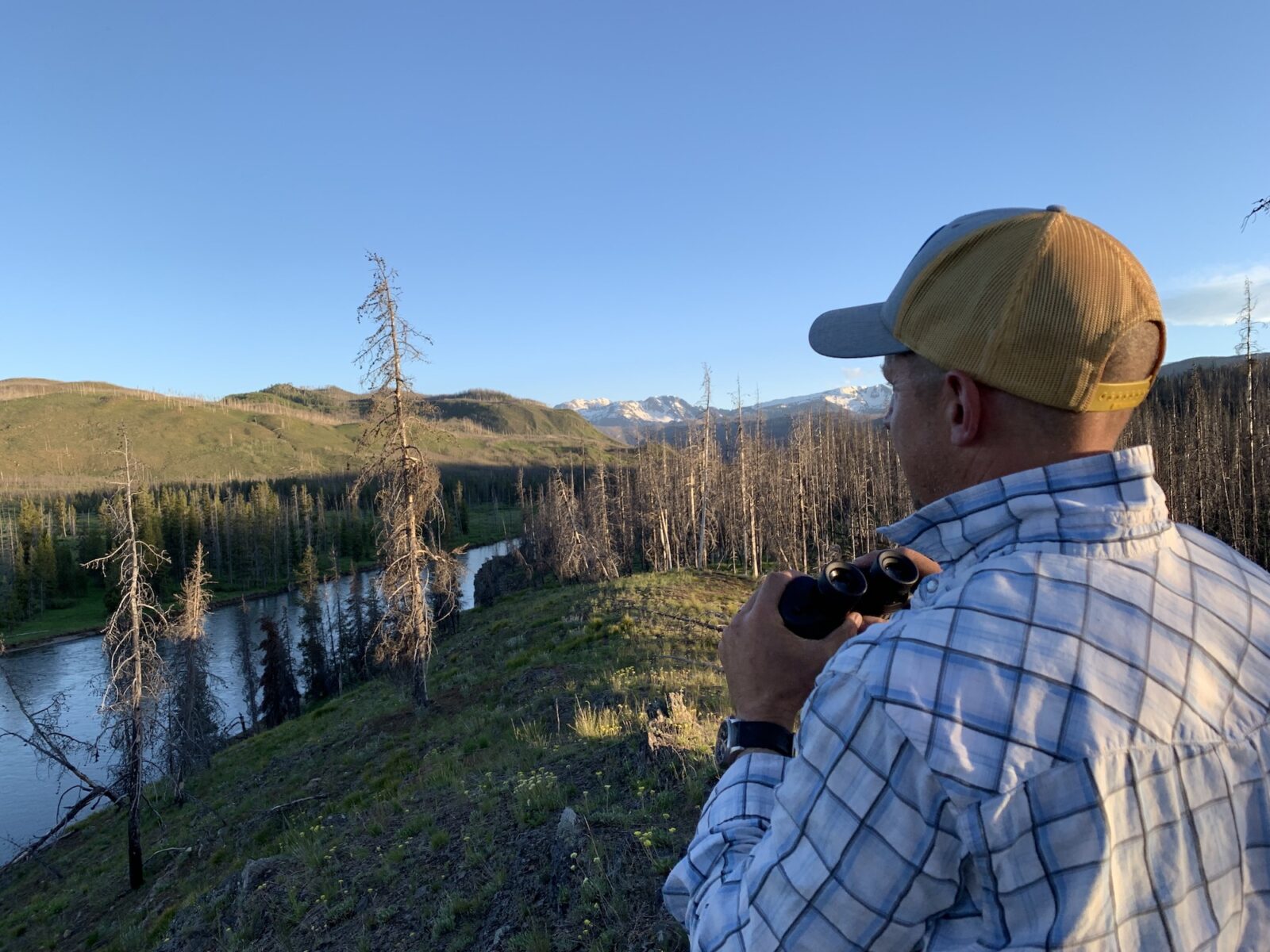
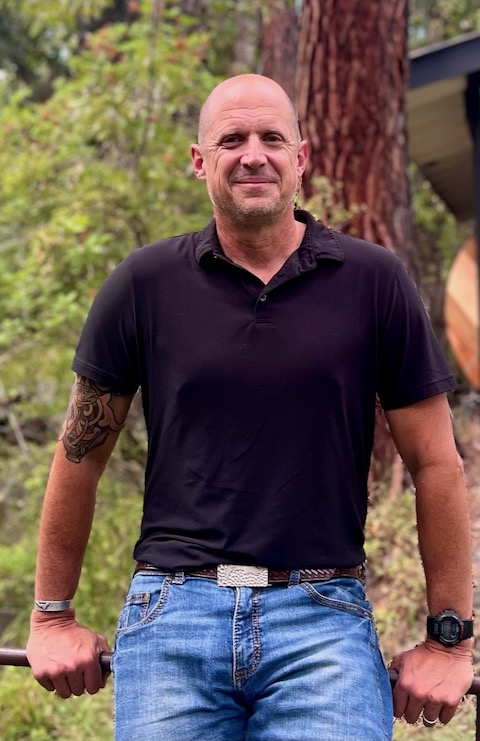
Dr. Alan Townsend is a scientist, author, and Dean of the Franke College of Forestry & Conservation at the University of Montana. His new book is titled This Ordinary Stardust: A Scientist’s Path from Grief to Wonder, and it’s an unbelievably powerful book. It’s the story of Alan’s family being rocked to the core by two unthinkable, back-to-back tragedies– his four-year-old daughter and wife both being diagnosed with brain tumors.
Alan is a highly trained, Ph.D.-level scientist who spent his entire career using cold hard facts, emotionless inquiry, and academic rigor to try and solve some of the world’s most pressing problems. Yet when faced with a father/husband’s worst nightmare, he was forced to accept that science alone was simply not enough to make it through the gauntlet. I was blown away by Alan’s insightfulness and vulnerability and how he managed to constructively meld science and spirituality to make sense of an unimaginable catastrophe.
Alan was born in Hawaii and grew up in Montana, where he spent much of his youth hunting, fishing, and exploring the West’s wide-open landscapes. His education and career in science allowed him to delve deeper into the natural world, giving him an even more intense respect and appreciation for the beautifully complex biological systems that make our world work. He’s worked in Amazonian forests and Costa Rican jungles, and he’s published more than 140 peer-reviewed articles. But, as you’ll hear in this conversation, Alan also embraces the more ethereal and unknown aspects of our existence, and he has a gift for discussing and writing about them in a very powerful and helpful manner.
We met up at Alan’s office at the University of Montana, and had a very meaningful conversation about grief, curiosity, generosity, open-mindedness, focus, and family. We discussed Alan’s upbringing in Montana, his path to becoming such a highly trained scientist, and his process of re-evaluating the limits and usefulness of science in the face of tragedy. We talked a lot about his late wife Diana and her unbelievable toughness and his daughter Neva, who thankfully beat the tumor and is now a happy and healthy young lady. We discussed the compassion and skill of medical professionals, Alan’s years-long process of writing the book, and the indispensable role of his agent and editor. Alan also offers some wise, hard-earned wisdom for anyone who may be going through their own set of challenges.
I loved this conversation, I loved the book, and I really appreciate Alan taking the time to talk with me. Be sure to click through the link in the notes to grab your own copy of This Ordinary Stardust. Enjoy!
—
Photos courtesy of Alan Townsend
LISTEN & DOWNLOAD:
Apple Podcasts
Spotify
… or wherever you get your podcasts!
—
RESOURCES:
Topics Discussed:
- 4:10 – An introduction to the power of Alan’s book
- 6:10 – The importance of focus in Alan’s book, and the strength of Alan’s wife and daughter
- 10:40 – Discussing Alan’s writing
- 13:40 – Alan’s birth and early childhood in Hawaii
- 15:30 – When science became a focus for Alan
- 17:00 – Alan’s reading choices
- 18:45 – When Alan found out his daughter Neva had a brain tumor
- 21:00 – How Alan got through this incredibly challenging period in his life
- 23:15 – The importance of routine for finding mental stability and peace in difficult times
- 25:15 – The power of curiosity in Alan and his wife, Diana’s, life after Diana was diagnosed with brain cancer
- 27:45 – The difference between people who are curious when it is easy to do so and those who remain curious when life becomes difficult
- 30:15 – Why Alan reevaluated his relationship with science, and how he challenges readers to do a similar reevaluation in his book
- 37:15 – How we share more than we don’t, regardless of political belief
- 39:15 – How Diana invited Michael Brown into their home to learn more about his work with FEMA, demonstrating the importance of respecting and learning from people with different opinions
- 45:00 – Unpacking the theme of generosity in Alan’s book
- 47:45 – How Alan handled vulnerability and the desire for this book to have impact
- 49:45 – Alan’s relationship with his agent and editor
- 52:15 – Discussing Doctor Henry Freedman
- 56:00 – Alan’s take on how doctors dealing with mortality are able to handle the difficulties of that subject on a daily basis
- 58:15 – Alan’s work right now
- 1:01:30 – The next 5-10 years for Alan
- 1:02:45 – Of generosity, curiosity, and the willingness to fail
- 1:03:45 – Alan’s book recommendations
- 1:08:00 – Alan’s parting words of wisdom
Information Referenced:
- This Ordinary Stardust by Alan Townsend
- Doctor Henry Friedman
- John Krakauer
- Underland by Robert MacFarlane
- The Overstory by Richard Powers
- Katherine Hayhoe
- Micheal Brown
- Jesse Helms
- Anna Sproul-Latimer
- Maddie Caldwell
- W.A. Franke College of Forestry and Conservation
- Yemi Mobolade
- Peter Heller
- Body of Water by Chris Dombroski
- True West by Betsy Gaines Quammen
- Whiskey When We’re Dry by John Larison
- A Responsibility to Awe by Rebecca Elson
- In Old Sky by Lauren Camp
Enjoy this episode? Then you might like these too:
- Nick Offerman – Empathy, Nuance, & Good Hard Work
- Chris Dombrowski, Part 2 – “The River You Touch”
- Rick Ridgeway – Purpose-Driven Adventurer
- Dr. Sara Dant Returns – “Losing Eden: An Environmental History of the American West”
- Doug Peacock – 50 Years of Fighting for the Grizzlies
- Anna Borgman – Obsession, Curiosity, and Purpose-Driven Work
- Douglas Brinkley – Exploring the Past to Find Inspiration for the Future
- Sandy Colhoun – Building Leaders Through Outdoor Education
Visit the podcast page for a full, searchable list of episodes
Pete McBride Returns – Exploring & Documenting His Backyard River
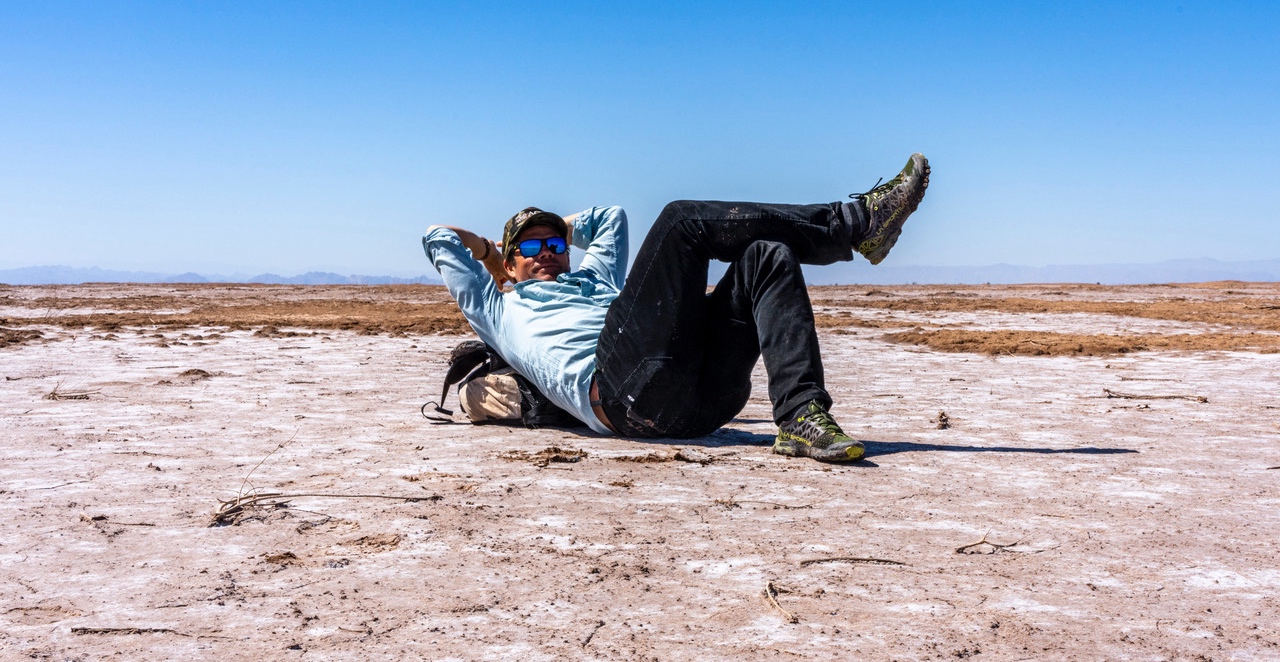
If you’re a longtime Mountain & Prairie listener, then you’ll definitely remember Pete McBride. He’s a renowned photographer, filmmaker, and author, and he’s joined me on the podcast twice before– once to discuss his epic hike of the length of the Grand Canyon, and then to chat about his global search for silence in a very loud world. I’m glad to say that he’s back again, and this time, we’re chatting about his backyard river– the mighty Colorado– and the challenges, opportunities, and realities facing the people and wildlife that depend on it.
Pete’s newest book is titled The Colorado River: Chasing Water, and it features Pete’s stunning photography and insightful essays, along with a foreword by Nick Paumgarten and an introduction by Kevin Fedarko. The book follows the Colorado River from its headwaters in the Rocky Mountains all the way down to the Colorado River Delta, where it peters out just before reaching the Gulf of California.
I’ve read a lot of books about the Colorado River and water in the West, but Chasing Water opened my eyes to a number of very specific and sometimes-maddening challenges facing the Colorado River Basin. The book delves into issues such as the unchecked exportation of water-intensive alfalfa to foreign countries, how dust leads to increased evaporation and water loss, as well as more optimistic topics, such as how Las Vegas has become an imperfect-yet-inspiring case study in responsible water conservation. But at its core, the book demonstrates Pete’s deep love and respect for the Colorado River, and showcases his two decades of dedication to telling the story of this world-famous waterway.
We met up at Pete’s house in Basalt, overlooking the Roaring Fork River, and talked about all things water and conservation. We started by talking about Pete’s father, and how his advice many years ago led Pete to shift his focus from global adventure photography to the Colorado River. We discussed the disconnect between people and their water sources, the challenge of using an over-appropriated water source to grow food for an entire country, Pete’s firsthand experience observing changes in the river and surrounding landscape, his work with Indigenous communities throughout the basin, and his preferences between photography, filmmaking, and writing. We also discuss some of his recent favorite books, and much, much more.
Be sure to check out the episode notes for a full list of everything we discussed and links to all of Pete’s books.
A big thanks to Pete for graciously letting me barge into his house and hassle him with questions yet again, and thank you for listening.
—
Photos courtesy of Pete McBride
LISTEN & DOWNLOAD:
Apple Podcasts
Spotify
… or wherever you get your podcasts!
—
RESOURCES:
Topics Discussed:
- 3:30 – All the places Pete has seen in the Colorado River watershed
- 6:30 – How Pete’s dad influenced Pete’s career
- 11:30 – The immense changes to the Colorado River over the course of Pete’s father’s lifetime
- 13:00 – Reconciling how much of the West’s water comes from the Colorado, and how few people know it
- 14:30 – Pete’s hope for his new book
- 18:00 – Pete’s style of writing for this visual book
- 21:00 – Discussing how much Colorado River water goes to cattle and cattle feed, and the water challenges that face agriculture
- 29:00 – The impact of dust on Rocky Mountain snow, and how that impacts the Colorado River
- 34:30 – Highlighting an unexpected water conservation success story: Las Vegas, and how southwestern cities can start conserving their water.
- 39:00 – How many times Colorado River water has been reused along its trek to Mexico, and discussing the state of the Colorado River Delta
- 44:45 – How Peter wants to divide his time between books and films, and a discussion about “earning” hope
- 53:00 – Pete’s work with Indigenous communities’ access to Colorado River Water
- 1:01:00 – Pete’s book recommendations
Information Referenced:
- Pete McBride
- Pete’s earlier Mountain & Prairie appearances
- The Colorado River: Chasing Water by Pete McBride
- Seeing Silence: The Beauty of the World’s Quietest Places by Pete McBride
- The Grand Canyon: Between River and Rim by Pete McBride
- Into the Grand Canyon documentary
- Hampton Sides
- Blood and Thunder by Hampton Sides
- The Wide, Wide Sea by Hampton Sides
- Taylor Hawes
- Maroon Bells
- Palo Verde Nuclear Generating Station
- Nick Paumgarten
- Kris Thompkins
- A Walk in the Park by Kevin Fedarko
- San Juan River
- Little Colorado River
- Havasupai Tribe
Enjoy this episode? Then you might like these too:
- Kristine Tompkins – Nothing to Lose
- Taylor Hawes – Innovative Conservation in the Colorado River Basin
- Lorelei Cloud – Solving Modern-Day Challenges with Ancient Tribal Wisdom
- Hampton Sides Returns: The Wild and Tragic Tale of Captain James Cook
- Nick Offerman – Empathy, Nuance, & Good Hard Work
- Rick Ridgeway – Purpose-Driven Adventurer
- Doug Peacock – 50 Years of Fighting for the Grizzlies
- Mike DeHoff – Exploring the Colorado River’s Reemerging Rapids
- Douglas Brinkley – Exploring the Past to Find Inspiration for the Future
- Sandy Colhoun – Building Leaders Through Outdoor Education
Visit the podcast page for a full, searchable list of episodes
Peter Gower & Chris Menges – Forward-Looking Approaches to the West’s Energy Transition
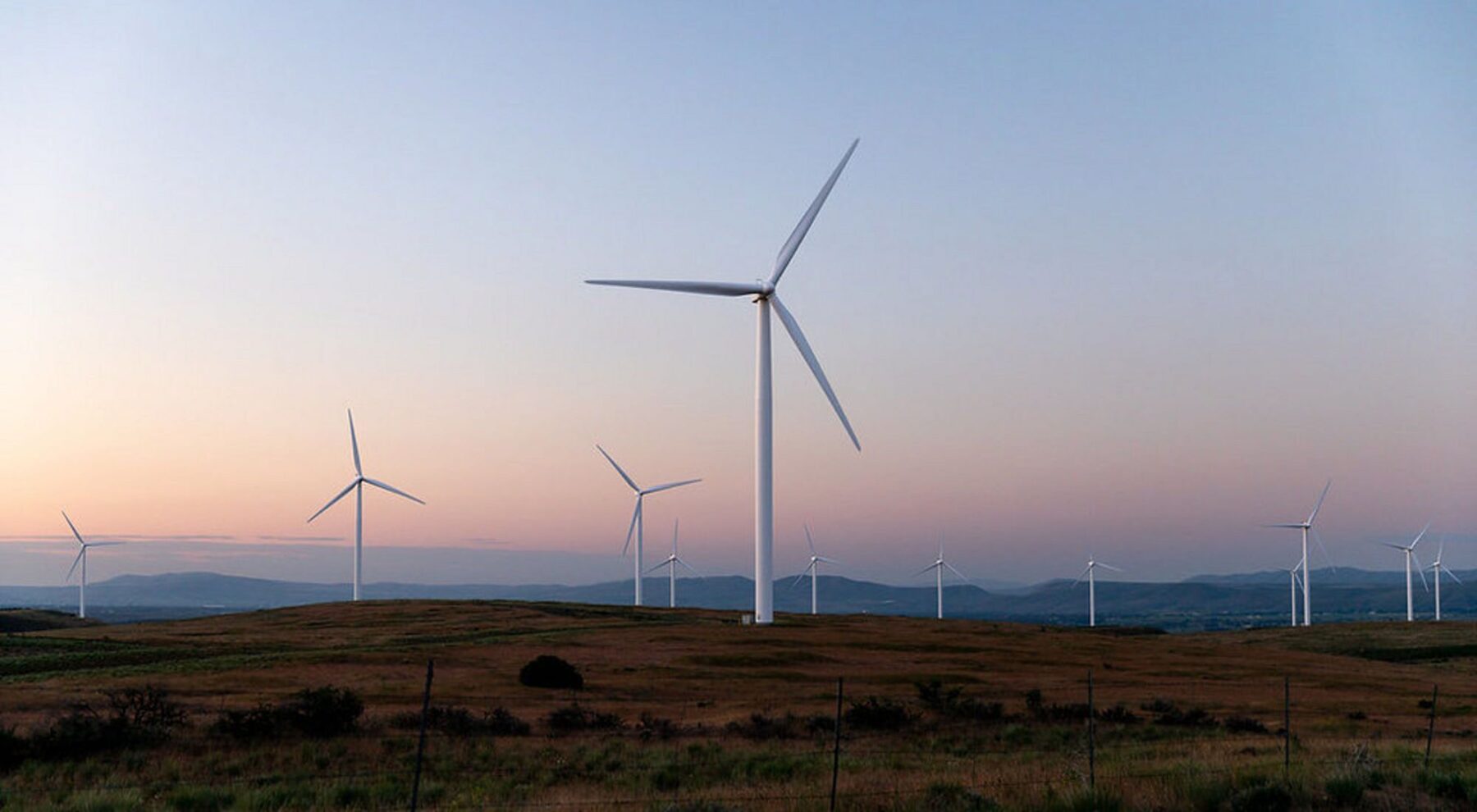
Peter Gower is the Nature Conservancy’s Climate and Renewable Energy Program Director for the Western United States and Canada Divisions, and Chris Menges is the Director of Climate Action for the Colorado Chapter of the Nature Conservancy. Both Peter and Chris are on the front lines of North America’s transition from fossil fuels to renewables, working to find solutions that protect and benefit working lands, natural landscapes, wildlife, and communities.
As you’ll hear in this episode, the transition from fossil fuels to renewables is an incredibly complex process, and Peter and Chris are highly skilled at breaking down the issues and explaining them in a substantive yet easy-to-understand manner. While the details of their work may be complicated, everything Peter and Chris do is built on the very simple foundation of strong relationships, partnerships, and trust, which has been the common theme of all of these TNC-focused episodes.
We connected virtually and had a great conversation about The Nature Conservancy’s work in the renewables space, exploring everything from TNC’s big-picture strategies in the American West, down to a few on-the-ground examples of successful initiatives and projects. We discussed how TNC is working with Western states to help them achieve their energy goals and some of the specific renewable work being done here in Colorado.
We also talked about the challenges of finding sites for renewable energy projects, how market incentives can be used to ensure siting that benefits both people and nature, and recently passed legislation in Colorado that addresses these issues. We chatted about TNC’s extensive research in the renewables space, including its Power of Place studies. As usual, we discuss their favorite books and some resources to learn more about the issues surrounding renewable energy.
Renewable energy has long been one of those topics that I have never been able to fully wrap my head around, but after this conversation, I felt that I had a solid foundation of knowledge– as well as the curiosity and desire to go out and learn more.
A huge thanks to Peter and Chris for devoting the time to have this extremely educational conversation, and thank you for listening.
Photos courtesy of The Nature Conservancy
LISTEN & DOWNLOAD:
Apple Podcasts
Spotify
…or wherever you get your podcasts!
EPISODE PARTNER:
This episode is brought to you in partnership with the Colorado chapter of The Nature Conservancy and TNC chapters throughout the Western United States. Guided by science and grounded by decades of collaborative partnerships, The Nature Conservancy has a long-standing legacy of achieving lasting results to create a world where nature and people thrive.
On the last Tuesday of every month throughout 2024, Mountain & Prairie will be delving into conversations with a wide range of The Nature Conservancy’s leaders, partners, collaborators, and stakeholders, highlighting the myriad of conservation challenges, opportunities, and solutions here in the American West and beyond. You can access all of the episodes here.
To learn more about The Nature Conservancy’s impactful work in the West and around the world, visit www.nature.org
RESOURCES:
Topics Discussed:
- 3:20 – The state of renewables in the West (Peter)
- 8:05 – Chris’s renewable work on the ground in CO with TNC (Chris)
- 12:35- Challenges and opportunities associated with finding physical sites for renewable projects (Chris)
- 15:50 – Examples of market incentives that Chris thinks would help develop renewable sites to the benefit of as many interests as possible (Chris and Peter)
- 22:20 – Discussing the Power of Place studies (Peter)
- 26:35 – Other major challenges to implementing more renewable energy solutions (Peter)
- 33:05 – Discussing the Connected West study, to be released soon (Peter)
- 36:20 – Building relationships with businesses and large entities (Peter)
- 39:05 – Discussing Colorado SB24-212 (Chris)
- 47:35 – Developing renewable energy sites on “brownfields” (Peter)
- 51:05 – Where to learn more about renewable energy (Peter and Chris)
Information Referenced:
- Peter Gower
- Chris Menges
- TNC’s energy work
- Bill Ritter
- Site Renewables Right tool
- Power of Place West Report
- GridLab
- Gridworks
- Matt Moorhead
- CO SB24-212
- Brunot Agreement Area
- Renewable energy development on “brownfields”
- The EPA’s Repowering Program
- TNC’s Starfire Project
- BrightNight
- Rivian
- A Short History of Nearly Everything by Bill Bryson
- Collapse by Jared Diamond
- The Ezra Klein Show
- Political Climate Podcast
Enjoy this episode? Then you might like these too:
- Lorelei Cloud – Solving Modern-Day Challenges with Ancient Tribal Wisdom
- Carrie Segil & Duncan Gilchrist – Catalyzing Conservation in Colorado and Beyond
- Ivy Spohnholz – Climate Solutions, Sustainable Fisheries, and Resilient Communities
- Kristine Tompkins – Nothing to Lose
- Rob Addington – A Deep Dive into Western Wildfires and Forest Health
- Carlos Fernández, Part 2 – Creating Conservation Opportunities During Uncertain Times
Visit the podcast page for a full list of episodes where you can filter episodes by topic and guests’ vocations.
Beatriz Soto – Bridging Cultural Divides & Building Equitable Communities
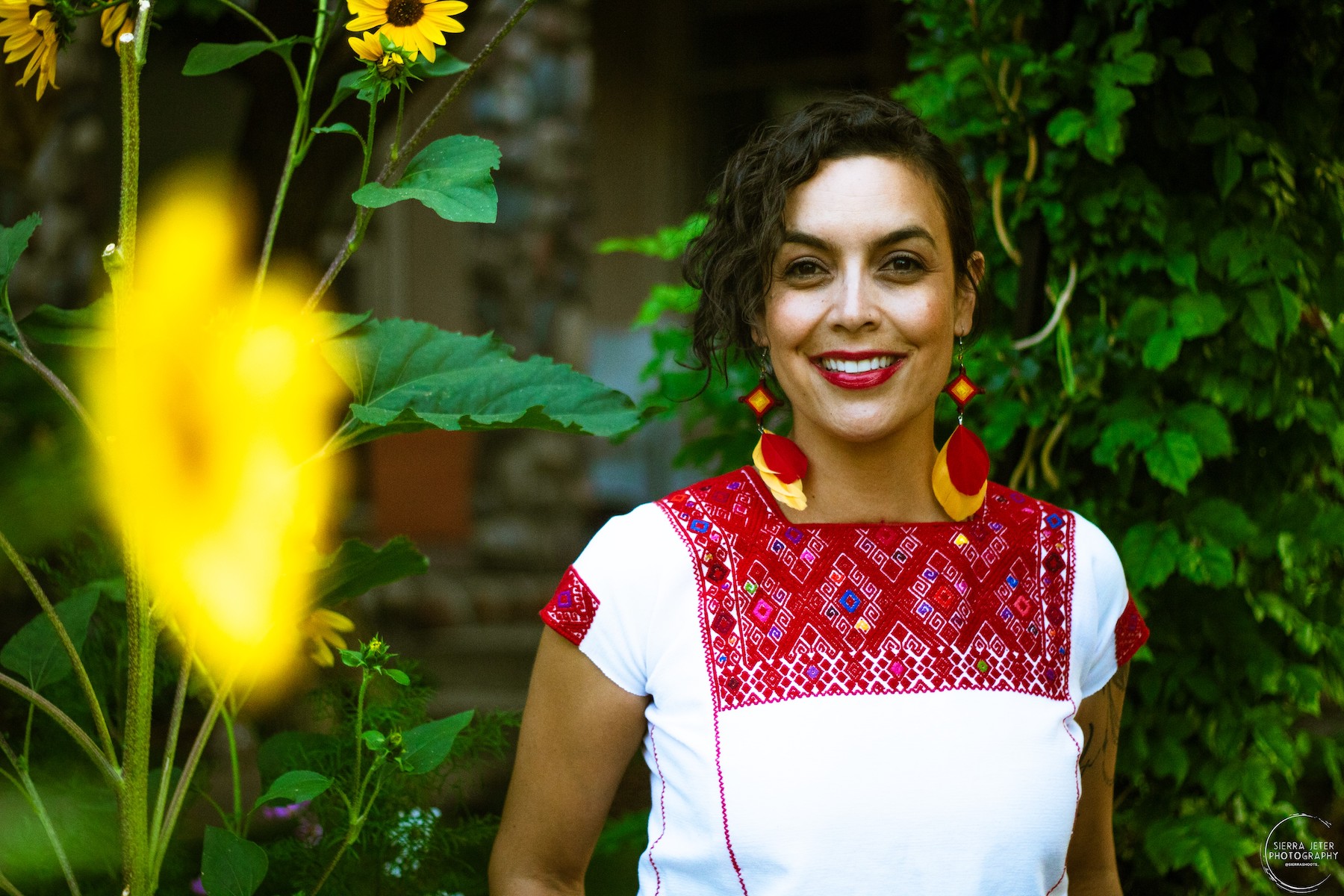
Beatriz Soto is the Director of Protégete, a statewide program from Conservation Colorado, whose mission is to elevate Latino-driven solutions to protect our lands, water, air, and fight for environmental and climate justice. Prior to joining Conservation Colorado, she held a number of leadership and founding positions with conservation-focused organizations here in Colorado. At her core, Beatriz is a gifted and highly effective leader, one who combines her professional expertise with her unique personal story to act as a cultural bridge and give voices to both underrepresented communities and the threatened lands and waters of the West.
Beatriz is originally from Chihuahua, Mexico, and she spent her childhood and youth in a bicultural setting between Mexico and the United States. She graduated from Colorado’s Basalt High School, and then went on to study architecture back in Chihuahua City, Mexico. For nearly 20 years, she applied her talents in architecture and design to a wide range of projects, from Net-Zero affordable housing projects to high-performance strawbale homes and everything in between, in locations ranging from the Pacific Coast of Mexico to Colorado’s Roaring Fork Valley. But as you’ll hear in the conversation, she eventually realized that she wanted to work more directly on issues including conservation and community vitality, so she pivoted and began her new career as a conservation leader in Colorado.
Beatriz and I connected virtually and had an inspirational and instructive conversation about her amazing life story and her present-day conservation work. We talked about her bicultural upbringing between Mexico and the US, and the realities of growing up as an undocumented child. We discussed her family’s emphasis on service and community, and how those values have expressed themselves throughout her career. We talk about the uncertainty that accompanied her transition from a career in architecture to a career in conservation and advocacy, and why she decided to apply her talents to the mission of Conservation Colorado. We discuss the mind-boggling process of becoming an American citizen, how she builds trust with community stakeholders, her favorite books, and much more. Be sure to check out the episode notes for a full list of everything we covered.
A huge thank you to Beatriz for taking the time to share her wisdom, and thank you for listening.
Photos courtesy of Beatriz Soto.
LISTEN & DOWNLOAD:
Apple Podcasts
Spotify
…or wherever you get your podcasts!
EPISODE PARTNER:
This episode is brought to you in partnership with the Mighty Arrow Family Foundation.
To whom much is given, much is expected. This value guides the philosophy behind the Mighty Arrow Family Foundation today.
Committed to its cause and infused with an entrepreneurial spirit, Mighty Arrow aims to invest in solutions that take action on climate change to build a more vibrant future, repair relationships from farm to market to table, heal our connection to the lands and waters we call home, and demand a more just and equitable society.
To learn more about Mighty Arrow’s forward-thinking, optimistic, and visionary work here in the American West and beyond, please visit www.mightyarrow.org.
RESOURCES:
Topics Discussed:
- 3:30 – Beatriz’s childhood
- 5:30- What brought Beatriz and her family from Mexico to the US
- 8:30 – Reflecting on adaptation within Beatriz’s very mobile childhood
- 11:30 – Whether or not looking back on the US from Mexico changed Beatriz’s outlook on the US
- 14:00 – Beatriz’s experience growing up undocumented, and how that affected her upbringing
- 17:45 – Where Beatriz’s commitment to service comes from
- 22:45 – The importance of community
- 24:15 – Beatriz’s goals in college
- 26:30 – Beatriz’s work in design and architecture
- 33:00 – Beatriz’s shift away from design and architecture, and the fear that comes with transitions like that
- 36:30 – How long it took Beatriz to feel like it was the right move to shift from professional architecture to conservation work
- 39:30 – When Conservation Colorado came into Beatriz’s world
- 43:15 – Beatriz’s day-to-day work with Conservation Colorado
- 48:30 – Whether or not leaders and stakeholders are happy to hear from Beatriz and her team
- 51:15 – How Beatriz handles rejections from potential partners
- 53:30 – Discussing the Colorado Latino Justice Handbook
- 1:00:00 – What is next for Beatriz
- 1:02:45 – How Beatriz became a documented American
- 1:04:30 – Discussing how to simplify an overcomplicated immigration process
- 1:08:45 – Beatriz’s book recommendations
- 1:11:15 – Beatriz’s parting words of wisdom
Information Referenced:
- Beatriz Soto
- Conservation Colorado
- Protégete
- Roaring Fork Valley
- The Wilderness Workshop
- Garfield County
- 501(c)(3) vs 501(c)(4)
- Colorado Latino Climate Justice Policy Handbook
- DACA
- Braiding Sweetgrass by Robin Wall Kimmerer
- An Indigenous Peoples’ History of the United States by Roxanne Dunbar-Ortiz
- Billionaire Wilderness by Justin Farrell
- Black Earth Wisdom by Leah Penniman
- Emergent Strategy by adrienne maree brown
Enjoy this episode? Then you might like these too:
- Rebecca Clarren – “The Cost of Free Land”
- Kristine Tompkins – Nothing to Lose
- Corissa Busse – Tribal-Led Buffalo Restoration in the American West and Beyond
- Chris Hawkins – Using Nature to Build Healthier & More Equitable Communities
- Mike DeHoff – Exploring the Colorado River’s Reemerging Rapids
- Lorelei Cloud – Solving Modern-Day Challenges with Ancient Tribal Wisdom
- Equitable Access to the Outdoors in Texas
- Betsy Gaines Quammen – A Fascinating History of Public Lands in the West
Visit the podcast page for a full list of episodes where you can filter episodes by topic and guests’ vocations.
“Good Fire, Bad Fire” – A Film and Discussion about Forest Health
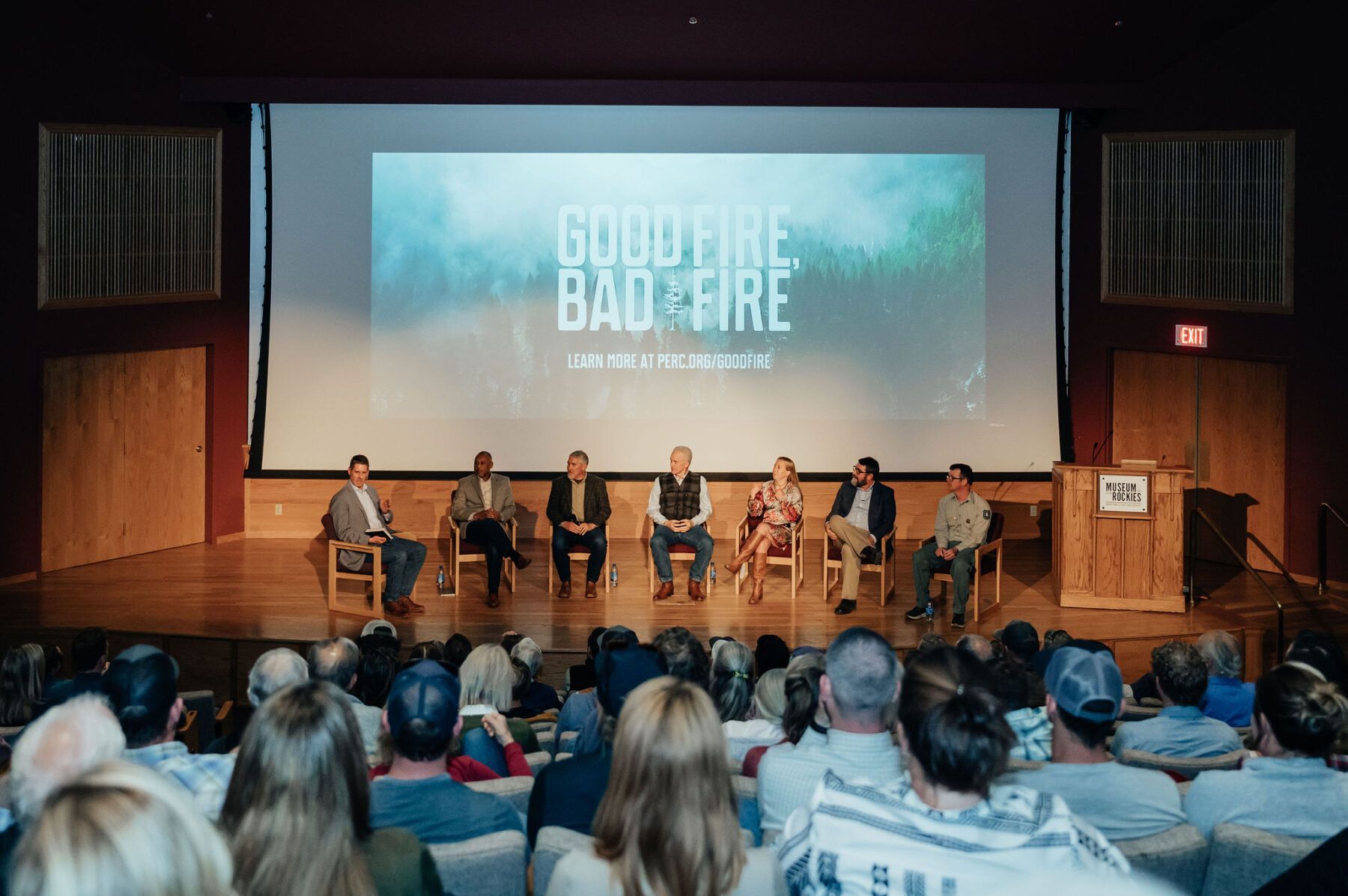
This is a special episode recorded live in Bozeman at the premiere of the important new short film titled Good Fire, Bad Fire: Inside the Race to Restore America’s Forests.
On the evening of May 16, 2024, around 200 folks gathered at Bozeman’s Museum of the Rockies to watch the 15-minute film, which captures the breathtaking beauty of our nation’s forests and delves into the urgent crisis threatening their existence. Following the screening, I moderated a panel discussion featuring an extremely impressive line-up of some of the nation’s leading conservationists and forest-health experts. The on-stage conversation gave us the opportunity to dig deeper into some of the issues raised by the film, and glean valuable insights into the importance of responsible forest management from ecological, recreational, economic, and policy perspectives.
Good Fire, Bad Fire was directed by filmmaker Eric Ian, and produced by the team at the Property and Environment Research Center, better known as PERC, who also hosted the event. The panelists you’ll hear in this episode are:
- Brian Ferebee, Chief Executive of Intergovernmental Relations for the U.S. Forest Service
- Randy Newberg, renowned conservationist and Host of Fresh Tracks with Randy Newberg and Hunt Talk Radio
- Morgan Varner, Director of Fire Research at Tall Timbers
- Corey Lewellen, District Ranger for the Bozeman Ranger District
- Hannah Downey, Policy Director at PERC
- Brian Yablonski, CEO of PERC (and a past Mountain & Prairie podcast guest)
I could’ve spoken with each of these experts individually for several hours, but having them all share a stage and combine their wide range of expertise into a single conversation was a powerfully educational experience.
While you can listen to this episode on its own, I would strongly encourage you to first spend 15 minutes watching Good Fire, Bad Fire as a primer.
I’d also encourage you to check out the episode notes below for a full list of all of the topics we discussed, which included everything from a history of fire as a resource management tool to the Forest Service’s evolving approach to wildfires and forest health. We talked about forest health’s impact on hunting and fishing, the pros and cons of policies such as the ESA and NEPA, on-the-ground success stories, optimistic good news about the future of forest health, and much more. There were tons of resources mentioned, all of which are listed and linked below.
A huge thanks to Brian Yablonski and the team at PERC for creating such an important film and for inviting me to participate in such an enlightening conversation. I hope you enjoy the film as much as I did, and I hope that this discussion provides some new insights into the all-important issue of forest health in the American West.
PHOTO GALLERY
All photos courtesy of PERC
LISTEN & DOWNLOAD:
Apple Podcasts
Spotify
… or wherever you get your podcasts!
—
RESOURCES:
Topics Discussed:
- 3:15 – Introductions
- 6:15 – Where the USFS stands right now on its approach to wildfire and forest health (Brian F)
- 8:45 – A hunter and public lands advocate’s perspective on the state of the forests (Randy)
- 10:30 – A brief history of how fire became a resource management tool in the US and before the US (Morgan)
- 13:45 – Discussing obstacles to the forest management work described in Good Fire, Bad Fire (Corey)
- 18:00 – How we can streamline large federal processes like the ESA and NEPA (Hannah)
- 21:00 – Why PERC became involved in this forestry work (Brian Y)
- 23:15 – What is preventing ideal progress on forest management in Montana (Brian F)
- 27:30 – How Randy would recommend hunters and anglers take action and advocate for forest health
- 31:00 – Discussing how lessons in forest management from the Southeast can impact forestry in MT (Morgan)
- 35:15 – On-the-ground success stories in forest management (Corey)
- 39:45 – An example of fire outpacing procedure, and the impacts that can have (Hannah)
- 41:15 – How discussions of conservation and forestry are received by elected officials (Hannah)
- 43:00 – Predictions for the next five years of forest management (Morgan and Randy)
- 47:15 – Brian Y’s optimistic take on the state of forest stewardship
Information Referenced:
- Brian Ferebee
- Morgan Varner
- Randy Newberg
- Corey Lewellen
- Hannah Downy
- Brian Yablonski
- PERC
- Greater Yellowstone Coalition
- Rocky Mountain Elk Foundation
- Good Fire, Bad Fire
- Spotted Owl
- Eric Ian
- Tall Timbers Research Station
- Bobwhite Quail
- Denver Water
- Silverthorne, CO
- Kristine Thompkins
- Washburn Fire
- Mariposa Grove
- National Wild Turkey Federation
- Pheasants Forever
- Good Neighbor Authority
Enjoy this episode? Then you might like these too:
- Live from Maxwell Alexander Gallery
- Nick Offerman – Empathy, Nuance, & Good Hard Work
- David James Duncan – Live at the Old Salt Festival
- Live with the Cowboy Artists of America
- Beau Alexander – Paying Homage to the Past, While Focusing on the Future
- Frances Ashforth – Art, Water, and Wide-Open Spaces
- Kelsey Johnson – Chasing Her Artistic Ambitions
Visit the podcast page for a full, searchable list of episodes
SHED SESSION – Everything I Know About Starting a Podcast
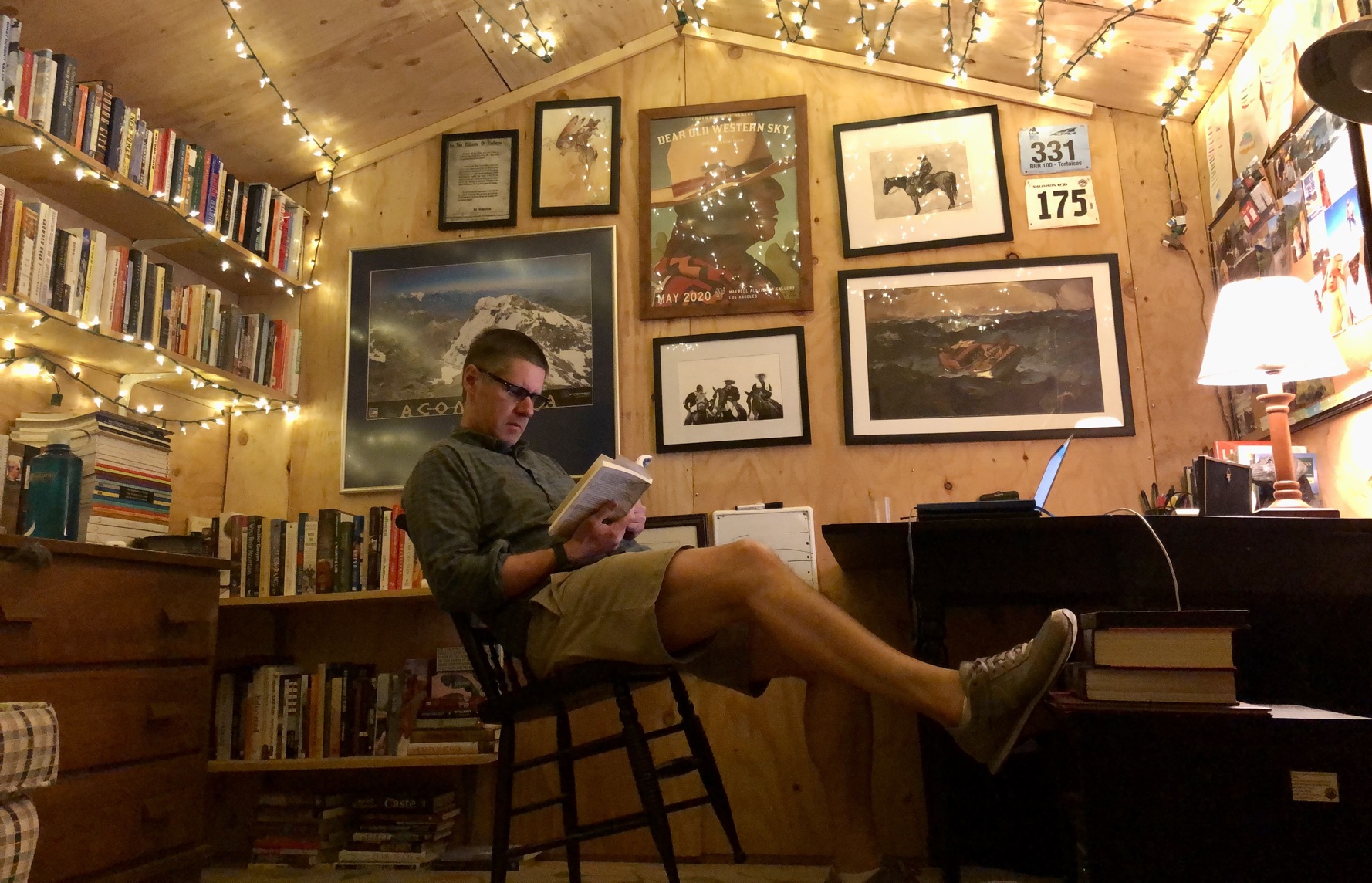
This is a special Shed Session episode, normally published exclusively for Mountain & Prairie Patreon supporters. In it, I answer the most common question I receive, which is some variation of:
“How do I start a podcast?”
In this episode, I answer that question in excruciating detail, laying out everything I know about it, based on my own bumbling, meandering, eight-year journey through Podcastlandia.
I hope this episode will provide a little bit of actionable guidance that will allow you to put your own unique ideas into the world.
To listen to all past, present, and future Patreon-exclusive episodes, you can sign up at www.mountainandprairie.com/patreon. Memberships start at as little as $2 per month.
Back to the regular episodes next week!!
LISTEN & DOWNLOAD:
Apple Podcasts
Spotify
… or wherever you get your podcasts!
—
RESOURCES:
Topics Discussed:
- 2:15 – Intro
- 6:55 – Disclaimers
- 10:00 – How and why I started Mountain & Prairie
- 22:13 – Intentions
- 28:12 – Getting started + endurance
- 39:25 – Finding your voice, authenticity, and enthusiasm
- 52:55 – Finding your audience
- 1:03:09 – Interview techniques
- 1:08:48 – Finding guests
- 1:11:40 – Dealing with negative feedback
- 1:15:14 – Equipment and editing
- 1:21:38 – Money (least important!)
- 1:25:54 – Further reading
Information Referenced:
- Ed’s 2024 Freeflow Course on the Rogue River
- Seth Godin Books: Purple Cow, Tribes, This is Marketing, The Practice
- Steven Pressfield Books: The War of Art, Nobody Wants to Read Your Sh!t
- Originals by Adam Grant
- 1000 True Fans by Kevin Kelly
- Conan interviewing Jack White
- Spreadsheet with all my podcast equipment
To listen to all past, present, and future Patreon-exclusive episodes, you can sign up at www.mountainandprairie.com/patreon. Memberships start at as little as $2 per month.
Dan Stellar – Bolstering Biodiversity in Arizona and Beyond
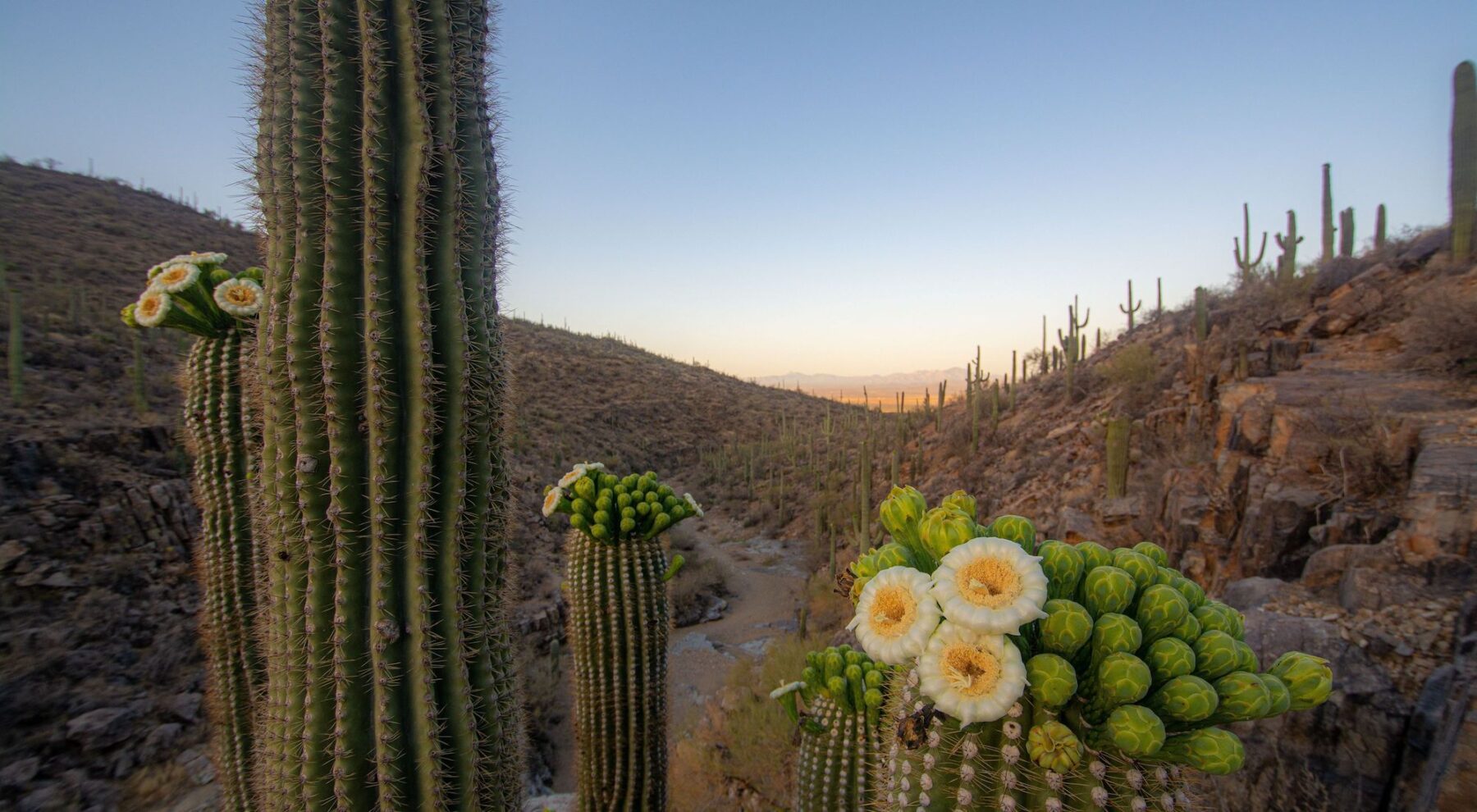
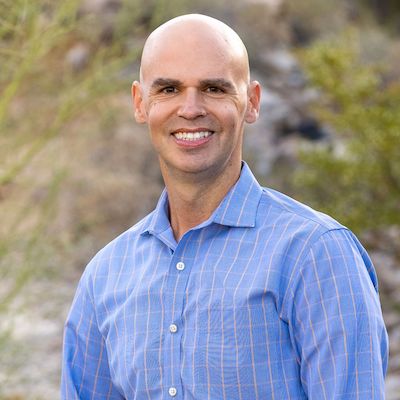
Dan Stellar is the State Director for the Arizona Chapter of The Nature Conservancy, where he leads the organization’s efforts across a wide range of cutting-edge initiatives, including forest health, water conservation, resilient cities, healthy grasslands, and more. Arizona is one of the nation’s largest and most biodiverse states, which creates a host of extremely unique conservation challenges and opportunities– both in its arid, wide-open landscapes and densely populated urban centers. As you’ll hear, Dan and his team are implementing conservation solutions that not only benefit people and nature specifically in Arizona, but they are also creating actionable conservation frameworks that can be applied all over the American West.
Dan was born and raised on the East Coast, and he has spent his career in the non-profit sector, applying his talents to important issues both domestically and abroad. He began his tenure at TNC Arizona in 2016, when he assumed the role of Deputy State Director. He quickly fell in love with Arizona and TNC’s critical work in the state, and, in 2020, he assumed the role of State Director. Dan is also a committed endurance athlete, and he’s run a mind-blowing number of marathons and half-marathons. And on top of all of that, he’s a dedicated father, husband, and family man.
Dan and I share so many common interests in conservation, endurance sports, and family, so I was super excited to have the opportunity to learn more about the specifics of his work and his fascinating personal and professional journey. We started the conversation with an overview of what makes Arizona such a unique place from a conservation perspective, then we dug into the details of TNC’s work in forest heath, rivers, aquifers, outdoor recreation, and resilient cities. We talked about some of the lessons he learned from traveling and working internationally, why he chooses to push himself so hard athletically, and how he goes about building such strong relationships with stakeholders, partner organizations, and his TNC team members. Dan is also a voracious reader, so we obviously chatted about books, and he wrapped up the conversation with very wise parting words.
I felt like I’d met a real kindred spirit in Dan, and I greatly appreciate everything that he and his team are doing to make Arizona—and the West—a better place. I hope you enjoy this conversation as much as I did.
Photos courtesy of The Nature Conservancy: Header image by Ian Adrian/TNC Photo Contest 2022; headshot by Mark Skalny.
LISTEN & DOWNLOAD:
Apple Podcasts
Spotify
…or wherever you get your podcasts!
EPISODE PARTNER:
This episode is brought to you in partnership with the Colorado chapter of The Nature Conservancy and TNC chapters throughout the Western United States. Guided by science and grounded by decades of collaborative partnerships, The Nature Conservancy has a long-standing legacy of achieving lasting results to create a world where nature and people thrive.
On the last Tuesday of every month throughout 2024, Mountain & Prairie will be delving into conversations with a wide range of The Nature Conservancy’s leaders, partners, collaborators, and stakeholders, highlighting the myriad of conservation challenges, opportunities, and solutions here in the American West and beyond. You can access all of the episodes here.
To learn more about The Nature Conservancy’s impactful work in the West and around the world, visit www.nature.org
RESOURCES:
Topics Discussed:
- 3:30 – Setting the scene for conservation work in Arizona
- 8:45 – Forest health work in Arizona
- 15:00 – Aligning profit motives with forest health goals
- 22:00 – Whether or not there are down-sides to forest thinning
- 25:15 – Discussing the Verde River
- 31:15 – Discussing the Big Chino Aquifer
- 35:00 – Collaborating with the Trust for Public Land to build a new park in Arizona
- 39:45 – TNC’s work with cities in Arizona
- 46:00 – Dan’s passion for running, and his attraction to doing hard things
- 50:15 – How Dan fits running into his schedule
- 52:00 – How Dan became interested in conservation
- 57:30 – Dan’s lessons from traveling
- 1:00:00 – Dan’s book recommendations
- 1:04:30 – Dan’s parting words of wisdom
Information Referenced:
- Dan Stellar
- Article about Dan
- The Nature Conservancy in Arizona
- Rob Addington
- Verde River
- Taylor Hawes
- Yavapai-Apache Nation
- Big Chino Aquifer
- RCPP Grant
- Del Rio Springs
- Chris Hawkins
- Paige Lewis
- Endurance by Alfred Lansing
- American Icon by Bryce G. Hoffman
- Alan Mulally
- Radical Candor by Kim Scott
- The Imposter Cure by Dr. Jessamy Hibberd
- Lonesome Dove by Larry McMurtry
- Van Jones
Enjoy this episode? Then you might like these too:
- Lorelei Cloud – Solving Modern-Day Challenges with Ancient Tribal Wisdom
- Sarah King – Collaborative Conservation in the American Southwest
- William deBuys – Sage of the Southwest
- Daniela Ibarra-Howell – Healing the Land Holistically
- Shane Doyle – Reverence for the Past, Hope for the Future
- Dr. Katharine Hayhoe – Effecting Change Through Authentic Conversation
- Rob Addington – A Deep Dive into Western Wildfires and Forest Health
- Chad Ellis – On Leadership, Building Relationships, and Working for the Greater Good
Visit the podcast page for a full list of episodes where you can filter episodes by topic and guests’ vocations.
Sandy Colhoun – Building Leaders Through Outdoor Education
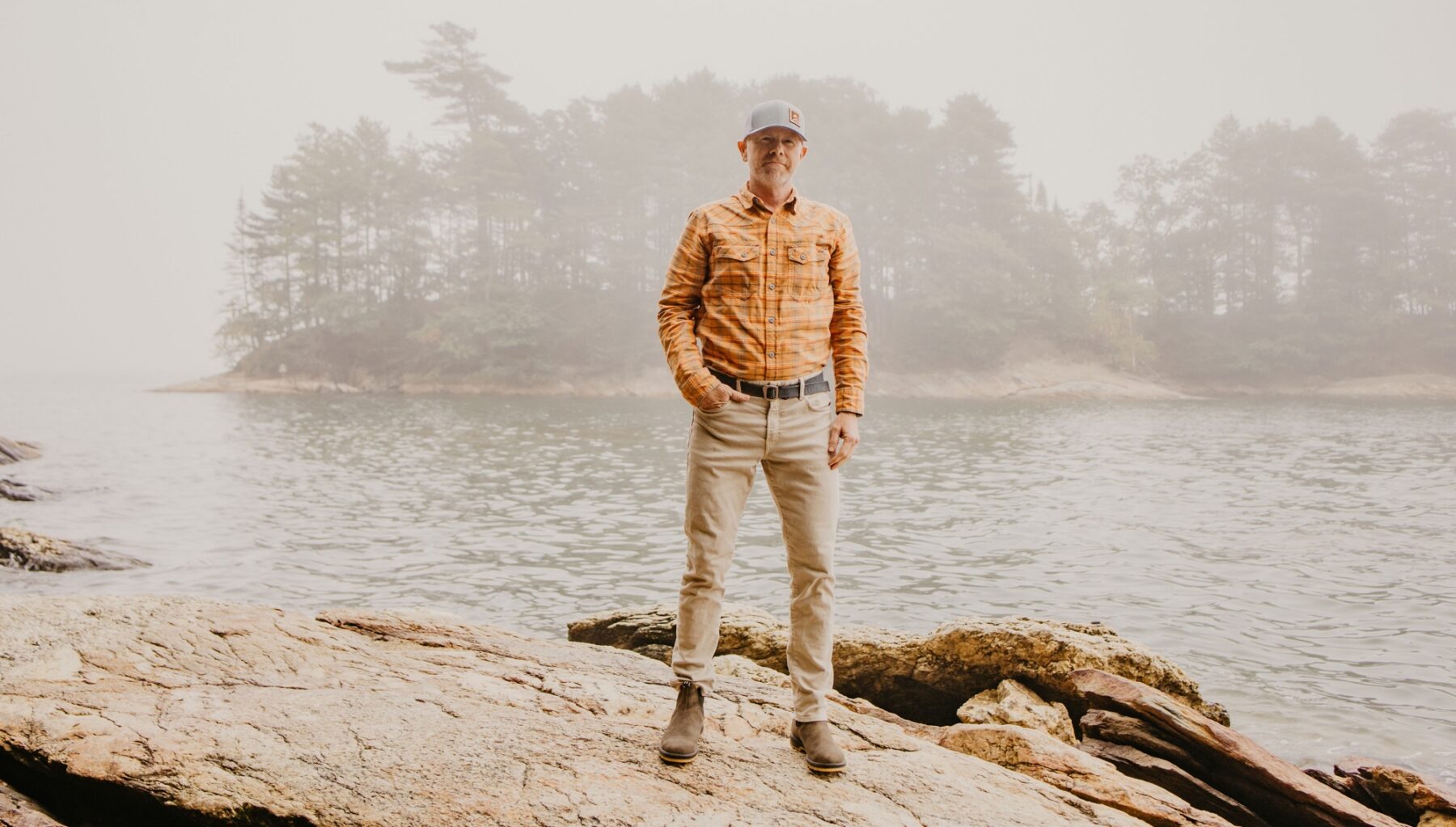
Sandy Colhoun is the President of the National Outdoor Leadership School, also known as NOLS.
Founded in 1965 by legendary mountaineer Paul Petzolt, NOLS is widely considered to be the world’s premier wilderness school, and its mission is “to be the leading source and teacher of wilderness skills and leadership that serve people and the environment.” NOLS operates in many of the world’s wildest outdoor classrooms, and it provides the highest quality instruction in many outdoor skills, including wilderness travel, mountaineering, rock climbing, sea kayaking, and more. But perhaps most importantly, through these outdoor adventures, NOLS students learn the foundational and all-important life skills of leadership, teamwork, humility, and responsibility.
Sandy was named the seventh President of NOLS in October of 2023, after serving as the interim President and, before that, as a member of the NOLS Board of Trustees. Prior to his work with NOLS, he had spent much of his career in the worlds of education and journalism, most notably leading a $750 million fundraising campaign at Colby College in Maine. Sandy is also a proud graduate of a NOLS Wind River Mountaineering course, and he’s no stranger to hardcore outdoor adventures– he worked as a ski patroller in Park City, climbed in Alaska, Nepal, and Bolivia, and cycled up and over the Himalayas from Tibet to Nepal. As you’ll hear in our conversation, he’s focused, driven, and lots of fun, and he’s s fully committed to leading NOLS into the future.
I’m a proud graduate of a 1999 semester-long NOLS course, which was hands-down one of the most formative and valuable experiences of my entire life. Yes, I learned plenty of outdoor skills that have served me well for nearly 25 years now, but the most important lessons were those that taught me the value of good exhibition behavior, being comfortable in uncomfortable situations, and keeping a positive attitude when life gets difficult. If not for that semester, I highly doubt I would’ve ever moved out west, worked in conservation, or started this podcast. So, I’m obviously a superfan of all things NOLS.
I was so excited to chat with Sandy, and we covered a lot in our hour-long conversation. We discussed the history of NOLS, what separates NOLS from other wilderness schools, risk management, exhibition behavior, expanding one’s comfort zone, a description of the ideal NOLS student, Sandy’s own leadership style, his vision for the future of NOLS, how he will measure success, leaders that Sandy admires, favorite books, and much more. Be sure to check out the episode notes for links to everything we discuss.
A huge thank you to Sandy for being so generous with his time and for everything he and the entire team at NOLS do to make the world a better place. Thanks for listening, and I hope you enjoy!
—
All photos by Ruby Jean Photography and courtesy of NOLS
LISTEN & DOWNLOAD:
Apple Podcasts
Spotify
… or wherever you get your podcasts!
—
RESOURCES:
Topics Discussed:
- 4:00 – A brief history of NOLS
- 8:15 – What sets NOLS apart from other outdoor schools
- 10:30 – Discussing NOLS’ partnerships
- 13:00 – How NOLS manages risk
- 16:30 – The talent of NOLS instructors
- 19:00 – What “expedition behavior” is
- 22:15 – How NOLS recruits students in a world that prioritizes job opportunities and career advancement
- 24:45 – How NOLS expands one’s comfort zone
- 28:45 – The ideal NOLS student
- 30:15 – Determining the next chapter of NOLS in the early 2020s
- 33:30 – Sandy’s career pre-NOLS
- 37:00 – Sandy’s leadership style
- 42:30 – How Sandy got his mind around the task of taking the helm at NOLS
- 46:00 – Measuring future success at NOLS
- 49:00 – Leaders that Sandy admires
- 52:15 – Sandy’s book recommendations
- 58:15 – Sandy’s parting words of wisdom, and how you can support NOLS
Information Referenced:
- Sandy Colhoun
- NOLS
- Paul Petzoldt
- Morehead-Cain Foundation
- Wilderness Risk Management Conference
- Freeflow Institute
- Colby College
- It’s Your Ship by Captain D. Michael Abrashoff
- Jocko Willink
- Good to Great by Jim Collins
- Three Peaks Ranch
- Ian Symmonds
- General George Brown
- Jay Stroud
- Tabor Academy
- Jimmy Chin
- Stuart Harris
- The Snow Leopard by Peter Matthiessen
- 100 Years of Solitude by Gabrielle Garcia Marquez
- Start with Why by Simon Sinek
- Good to Great by Jim Collins
- Tribe by Sebastian Junger
- Wendell Berry
Enjoy this episode? Then you might like these too:
- Kristine Tompkins – Nothing to Lose
- Nick Offerman – Empathy, Nuance, & Good Hard Work
- Rick Ridgeway – Purpose-Driven Adventurer
- Doug Peacock – 50 Years of Fighting for the Grizzlies
- Kami Bakken – How to Build a Life and Career in the West’s Wide-Open Spaces
- Mike DeHoff – Exploring the Colorado River’s Reemerging Rapids
- Corissa Busse – Tribal-Led Buffalo Restoration in the American West and Beyond
- David Gessner Returns – “A Traveler’s Guide to the End of the World”
- Chandra Brown, Part 2 – Teaching & Learning in the West’s Wildest Landscapes
- Mike Foote – Perfection is in the Process
- Douglas Brinkley – Exploring the Past to Find Inspiration for the Future
Visit the podcast page for a full, searchable list of episodes
Kami Bakken – How to Build a Life and Career in the West’s Wide-Open Spaces
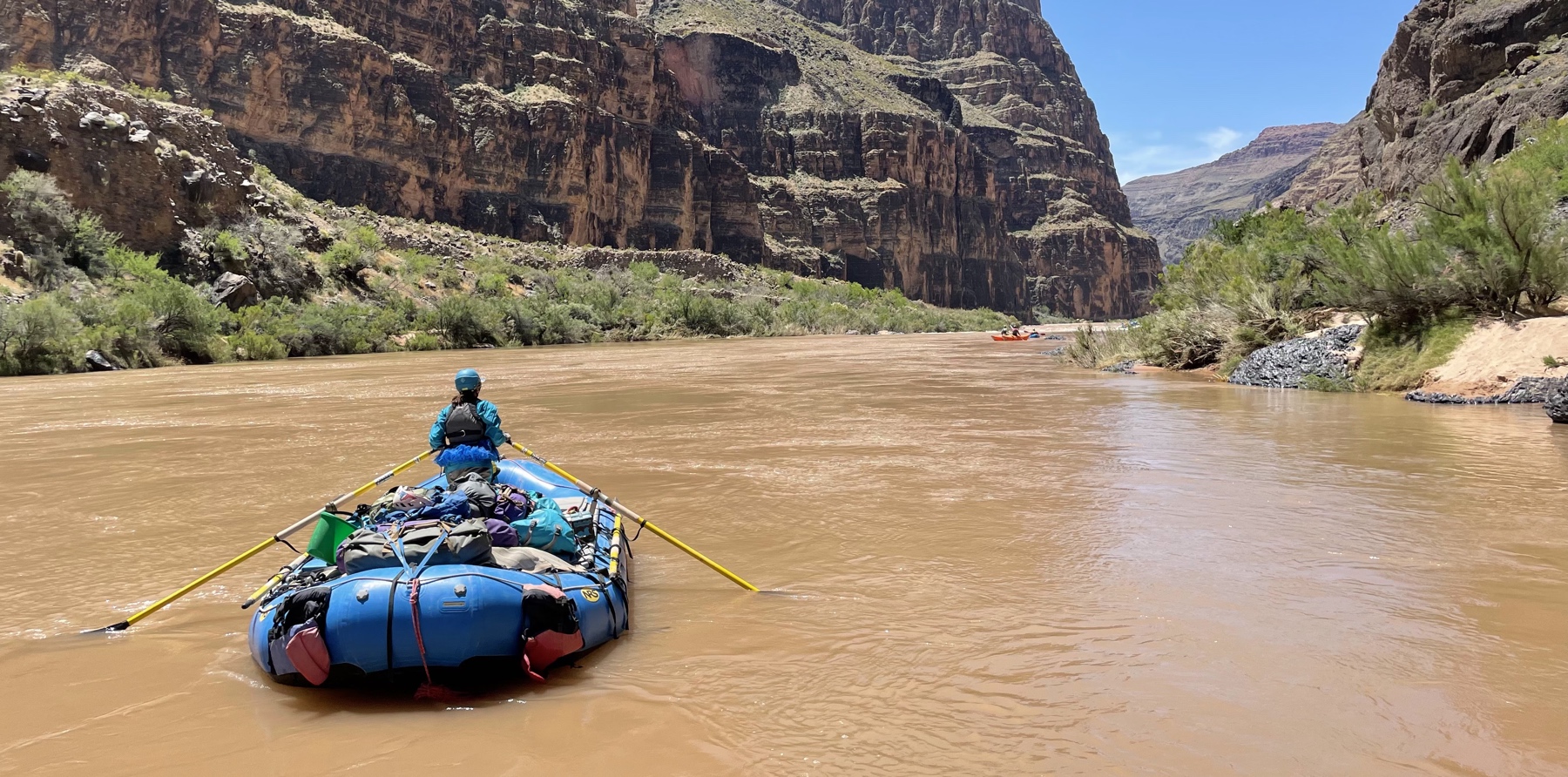
Kami Bakken is a river guide and outdoor advocate, and she currently serves as the Director of the Freeflow Foundation and Director of Ambassador and Grant Programs for Rivers for Change. A native of Minnesota, Kami headed West for college at Colorado State University, where she earned a degree in Human Dimensions of Natural Resources. Since graduating in 2018, she has been fully focused on helping others explore and appreciate the mountains and rivers of the American West, while also advocating for their protection and conservation.
Kami and I met in 2023 when she was the facilitator on my Green River Freeflow Institute workshop through Dinosaur National Monument and the Gates of Lodore. During our weeks of preparation for the course and our five days on the river, I was so impressed by her expertise in outdoor education and river travel and, perhaps more importantly, by her ability to connect with a wide range of people in a sometimes-intense wilderness setting. She’s humble yet confident, earnest yet hilarious, and I credit her with so much of the success of that workshop.
When I was in my late 20s and deep in a traditional career in the real estate business, I dreamed of having a life and career like Kami’s– one that combined adventure and wide-open spaces with purpose-driven work. So I wanted to chat with her in depth to learn more about how she has made it all happen. If, like I was, you are interested in learning the realities of following a non-traditional but deeply fulfilling career in the outdoors, then you’ll definitely learn a lot from Kami.
We met up a few weeks ago at my house in the Springs and had a wide-ranging and funny conversation about her life, career, adventures, and crazy misadventures. We talked about what drew her to Colorado for college, and some of the challenges of adjusting to such a new place and environment where she didn’t know anyone. We discussed some of her wild experiences traveling in the West and internationally– including a few run-ins with cult-like groups– and how she took the leap to become a sea kayaking guide and eventually a western river guide. We talk a lot about her commitment to pushing outside of her comfort zone, overcoming fear and discomfort, and why she’s drawn to conservation work. We also discuss the financial realities of seasonal work, how her non-profit work compliments her guiding work, her career plans for the future, and her roles with the Freeflow Institute and Foundation.
And it’s worth noting that Kami and I will be heading out on the river again this summer for another Freeflow workshop, this time on Oregon’s Wild & Scenic Rogue River– August 15th through 20th. As of this recording, there are still a few spots left, so you can follow the link to learn more about the workshop and apply. As of this moment, you can use the secret code “ED200” to get $200 off of the tuition.
A huge thanks to Kami for agreeing to let me ask her a bunch of weird questions and, most importantly, for all of her leadership and support on our river trips. Enjoy!
—
All photos courtesy of Kami Bakken
LISTEN & DOWNLOAD:
Apple Podcasts
Spotify
… or wherever you get your podcasts!
—
RESOURCES:
Topics Discussed:
- 4:00 – Where Kami is from
- 5:00 – Why Kami went to Colorado State, and how her family felt about that decision
- 9:00 – How her early experience in Colorado led her to WWOOF (and apparently a couple of cults)
- 15:30 – Kami’s return to CSU, and her entry into the world of outdoor recreation
- 19:30 – Kami’s travel adventures post-graduation
- 22:00 – Kami’s time with Protect Our Winters
- 24:15 – Kami’s transition to professional guiding
- 27:45 – Where Kami’s desire for connection and impact led her career next
- 31:45 – What Kami’s friends from college were doing while she was raft guiding, and whether or not she has ever questioned her career path
- 33:30 – Exploring the difference between contentment and happiness, and some more details about the outdoor education and rafting nonprofit that Kami worked for
- 37:15 – Kami’s transition to the Freeflow Foundation
- 44:00 – Discussing the Freeflow Foundation
- 45:45 – Balancing safety with growth driven by risk
- 50:00 – The trip that Ed and Kami did together on the Green River
- 54:45 – What makes for a good outdoor guide, and what makes for a bad one
- 59:00 – Who Kami admires
- 1:03:00 – Kami’s next steps
- 1:05:45 – What worries Kami
- 1:09:00 – Kami’s book recommendations
- 1:10:30 – Kami’s advice for those who want to try a new lifestyle or career
Information Referenced:
- Kami on Instagram and LinkedIn
- Freeflow Institute
- Freeflow Foundation
- Ed’s upcoming 2024 Freeflow Program on the Rogue River
- Randolph, MN
- WWOOF
- Jenna Pollard
- Jesus Ranch by Tenacious D
- Protect Our Winters
- Channel Islands
- Kristine Tompkins
- Tribe by Sebastian Junger
- Canyonlands Field Institute
- Chandra Brown
- Chris La Tray
- David James Duncan
- American Whitewater
- American Rivers
- American Prairie
- NRS
- Dinosaur River Expeditions
- Oma plata
- Kate Bollen
- Lindsay Bourgoine
- Canyons River Company
- Brook Hess
- Katie Lee
- Secret Knowledge of Water by Craig Childs
- The BFG by Roald Dahl
- The Desert Oracle by Ken Layne
Enjoy this episode? Then you might like these too:
- Chandra Brown, Part 2 – Teaching & Learning in the West’s Wildest Landscapes
- Mike DeHoff – Exploring the Colorado River’s Reemerging Rapids
- Kristine Tompkins – Nothing to Lose
- Dr. Sara Dant Returns – “Losing Eden: An Environmental History of the American West”
- Anna Borgman – Obsession, Curiosity, and Purpose-Driven Work
- Christy Sing Robertson – On Grit, Hard Work, & Going All In
- Kathie Sever – Chainstitching, Craftsmanship, and Cosmic Western Wear
- Amber Smith – Creating Connection & Community
Visit the podcast page for a full, searchable list of episodes
Hampton Sides Returns: The Wild and Tragic Tale of Captain James Cook
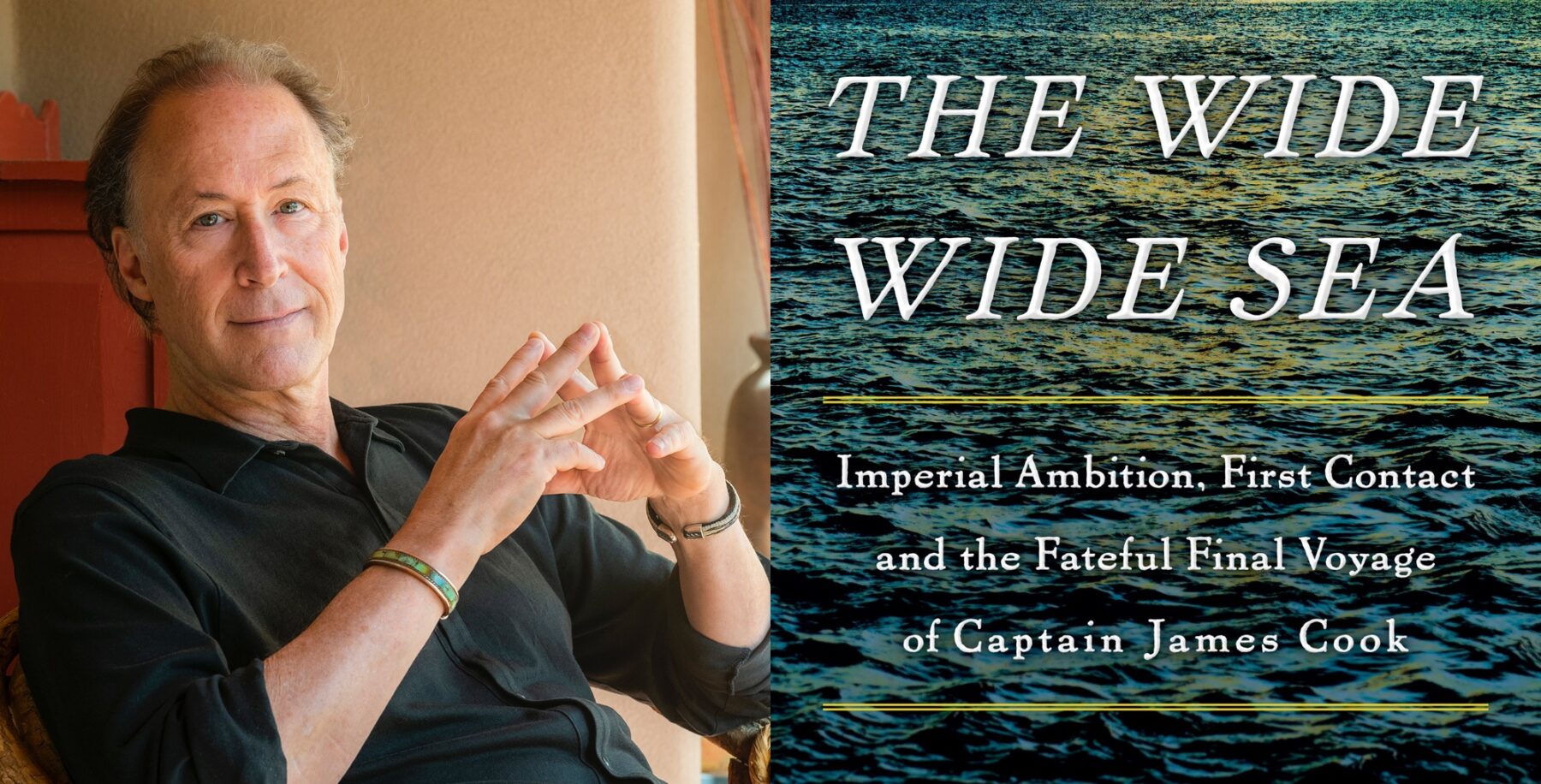
Hampton Sides is a Santa Fe-based historian and bestselling author who has written many books that are favorites of Mountain & Prairie listeners, including Blood and Thunder, On Desperate Ground, and Ghost Soldiers. His newest book is The Wide Wide Sea: Imperial Ambition, First Contact and the Fateful Final Voyage of Captain James Cook, which is available now and sitting high on the New York Times bestseller list. If you’re a longtime Mountain & Prairie listener, then I’m sure you’re glad to see that Hampton has joined me for yet another podcast conversation.
Much of Captain Cook’s epic third voyage takes place far from the mountains and prairies of the American West, in tropical paradises including Tahiti and Hawaii. But what you may not realize, is that a big portion of his final voyage was spent exploring and mapping the west coast of North America, from the rocky shores of present-day Oregon and Washington, all the way up to Alaska. While I was somewhat familiar with Cook and his explorations, I didn’t fully understand or appreciate the mind-blowing scale of his journeys or his impact on world history.
As is the case with all of Hampton’s books, he melds together deep and extensive research with thrilling storytelling to make the process of understanding history as entertaining as it is educational. While Cook is obviously a central figure in The Wide Wide Sea, the book also profiles numerous fascinating Polynesian and Indigenous historical figures, including the Tahitian man named Mai, whom Hampton and I discussed at length in our September 2021 episode. If you haven’t already listened to that episode, I’d encourage you to do so when you’re done with this one.
Hampton and I met up here in Colorado Springs, one of many stops on his book tour for The Wide Wide Sea. As usual, we had a fun and at times very funny conversation about history, his research and writing process, and all things Captain Cook. We started out discussing why Hampton is drawn to write about controversial historical figures, and we talked at length about how he combined historical accounts from Europeans with those from the Indigenous communities that Cook visited. We talked about the mystery of Cook’s dramatic personality change, how Cook’s arrival disrupted the equilibrium of Polynesian cultures, Cook’s leadership style both before and after his personality change, how Hampton organized such massive amounts of research, and how and why he works so hard to get his books into the world. He also gives a sneak peek into his next book, which will based here in Colorado and explores one of the West’s most notorious massacres.
A huge thank you to Hampton for taking time out of his busy schedule to chat with me again, and thank you for listening. Enjoy!
—
All photos courtesy of Hampton Sides
LISTEN & DOWNLOAD:
Apple Podcasts
Spotify
… or wherever you get your podcasts!
—
RESOURCES:
Topics Discussed:
- 7:00 – Why write about Captain Cook
- 10:45 – Captain Cook, pre-1776
- 16:45 – Cook’s ship
- 21:15 – Exploring Cook’s mental health
- 25:30 – Exploring humans’ predisposition towards greed
- 29:30 – The importance of doing boots-on-the-ground research for history
- 32:00 – How Cook kept scurvy at bay
- 34:30 – Hampton’s biggest unexpected discovery while writing The Wide Wide Sea
- 38:00 – Whether or not Hampton experienced apprehensions about telling the story of a complicated person like Cook
- 42:00 – Discussing the circumstances that led to Cook’s death
- 45:45 – Discussing some of Cook’s personality traits and cultural differences between Cook and the Māori
- 49:30 – How Hampton organizes his quotes for writing
- 53:45 – How Hampton actually sells his books
- 58:00 – Hampton’s plans for the future
Information Referenced:
- The Wide Wide Sea by Hampton Sides
- Hampton’s episode discussing Mai
- Hampton’s second M&P episode
- Hampton and Ed live at the Aspen Institute
- Captain James Cook
- Blood and Thunder by Hampton Sides
- Joseph Banks
- Sciatica
- Kerguelen Islands
- Ghost Soldiers by Hampton Sides
- Ernest Shackelton
- The Wager by David Grann
- John Milton Chivington
- The Sand Creek Massacre
- Silas Soule
Enjoy this episode? Then you might like these too:
- Douglas Brinkley – Exploring the Past to Find Inspiration for the Future
- John Vaillant – A Riveting Exploration of Fire
- Dr. Sara Dant Returns – “Losing Eden: An Environmental History of the American West”
- Peter Stark – Tales of Adventure, Exploration, & Epic Battles
- Pete McBride, Part 2: In Search of Silence
- Kristine Tompkins – Nothing to Lose
- Doug Peacock – 50 Years of Fighting for the Grizzlies
- Dr. Katharine Hayhoe – Effecting Change Through Authentic Conversation
Visit the podcast page for a full, searchable list of episodes
Celene Hawkins & Izabella Ruffino – Tribal Partnerships, Indigenous Voices, Cutting-Edge Conservation
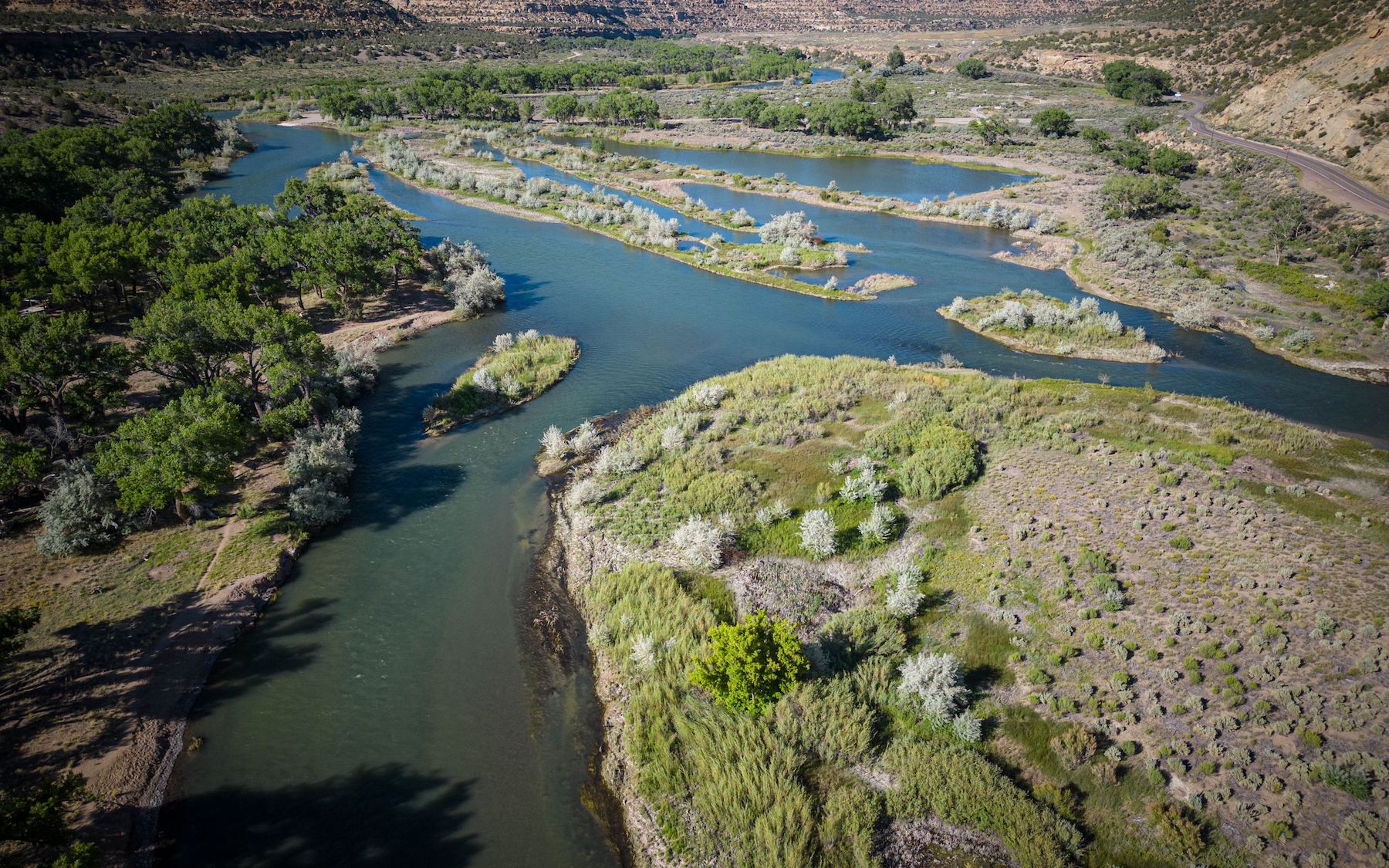
Celene Hawkins is the Colorado River Tribal Water Partnerships Program Director for the Nature Conservancy, and Izabella Ruffino is the Tribal and Indigenous Engagement Program Manager for the Colorado Chapter of the Nature Conservancy. Both Celene and Izabella use their skills to advance and support tribal-led land and water conservation work throughout the American West.
Most of Celene’s work is centered around the Colorado River Basin, and she has played an integral role in many cutting-edge water conservation projects that have sought out Tribal voices and Indigenous perspectives to create some of the West’s most effective and equitable solutions to complex water challenges. Perhaps most notably, she worked with the Jicarilla Apache Nation, the New Mexico Interstate Stream Commission, and her colleagues at TNC to create a first-of-its-kind water agreement that was a true win-win for nature and people.
Izabella’s work builds on TNC’s strong foundation of partnerships with Tribal Nations for land and water issues, and she is also focused on expanding Tribal and Indigenous engagement into all aspects of TNC’s wide-ranging conservation work. Additionally, she is responsible for internal efforts to fortify organizational cultural awareness and humility within TNC’s Colorado Chapter. As you’ll hear, Izabella is doing everything from leading internal educational initiatives to working with wide-ranging stakeholder groups on projects such as determining the best uses for TNC-owned land and preserves.
In this episode, we dig into the details of many of their specific projects and initiatives, but we also talk more broadly about the importance of seeking out Indigenous perspectives to help guide TNC’s critical conservation work worldwide. They both offer plentiful resources– online courses, books, podcasts, essays, and more– that will help me (and you, the listener!) better understand the importance of bringing together diverse perspectives to guide the next chapter of conversation work in the West and beyond.
Celene and Izabella mention so many excellent books, people, and resources, so don’t forget to check out the episode notes for links to everything. A big thanks to them both for such a fun, inspiring, and educational conversation. I hope you enjoy!
Photos courtesy of The Nature Conservancy: Header © Roberto Rosales; headshots from Celene and Izabella.
LISTEN & DOWNLOAD:
Apple Podcasts
Spotify
…or wherever you get your podcasts!
EPISODE PARTNER:
This episode is brought to you in partnership with the Colorado chapter of The Nature Conservancy and TNC chapters throughout the Western United States. Guided by science and grounded by decades of collaborative partnerships, The Nature Conservancy has a long-standing legacy of achieving lasting results to create a world where nature and people thrive.
On the last Tuesday of every month throughout 2024, Mountain & Prairie will be delving into conversations with a wide range of The Nature Conservancy’s leaders, partners, collaborators, and stakeholders, highlighting the myriad of conservation challenges, opportunities, and solutions here in the American West and beyond. You can access all of the episodes here.
To learn more about The Nature Conservancy’s impactful work in the West and around the world, visit www.nature.org
RESOURCES:
Topics Discussed:
- 3:30 – Introductions
- 8:30 – The win-win partnership between the Jicarilla Apache Nation, the New Mexico Interstate Stream Commission, and TNC
- 14:00- Challenges and opportunities related to putting together the partnership deal
- 19:00 – Benefits to all parties as a result of the deal
- 21:30 – Positive ripple effects resulting from the partnership
- 24:15 – TNC’s strategies for managing its preserves, including the Medano Zapata Ranch
- 29:15- The process of gathering Indigenous and local perspectives
- 32:00 – Strategies, tactics, and frameworks for building cross-cultural relationships
- 36:30 – Balancing the time it takes to build solid relationships with the reality that “time is of the essence”
- 40:30 – Upcoming exciting projects
- 44:30 – Resources for further learning
- 50:30 – Why they each chose to apply their talents, skills, and careers to the cause of conservation
- 55:30 – Heroes and mentors
- 1:05:00 – Favorite books
- 1:11:00 – Parting words of wisdom
Information Referenced:
- Celene Hawkins
- Izabella Ruffino
- Taylor Hawes episode
- A Win-Win-Win Solution for the Colorado River
- Jicarilla Apache Nation
- Strategic Water Reserve tool
- Medano Zapata Ranch
- Keystone Policy Center
- Voice, Choice, and Action Framework
- Water and Tribes Initiative
- Indian Country 101 training
- Whitener Group
- All My Relations podcast
- Inhabitants film
- Turtle Talk
- This Land podcast
- The Serviceberry by Robin Wall Kimmerer
- Quincy Library Group
- Braiding Sweetgrass by Robin Wall Kimmerer
- Charles Wilkinson
- Sara Krakoff
- Ten Tribes Partnership
- Regina Lopez Whiteskunk
- Lorelei Cloud
- Colorado Water Conservation Board
- Return the National Parks to the Tribes by David Treuer
- Omnivore’s Dilemma by Michael Pollen
- This is Your Mind on Plants by Michael Pollen
- The Secret Network of Nature by Peter Wohlleben
- The Hidden Life of Trees by Peter Wohlleben
- An Indigenous Peoples’ History of the United States by Roxanne Dunbar-Ortiz
- As Long as the Grass Grows by Dina Gilio-Whitaker
- Fresh Banana Leaves by Jessica Hernandez
- The Monkey Wrench Gang by Edward Abbey
- Doug Peacock
Enjoy this episode? Then you might like these too:
- Rebecca Clarren – “The Cost of Free Land”
- Lorelei Cloud – Solving Modern-Day Challenges with Ancient Tribal Wisdom
- Doug Peacock – 50 Years of Fighting for the Grizzlies
- Equitable Access to the Outdoors in Texas
- Douglas Brinkley – Exploring the Past to Find Inspiration for the Future
- Shane Doyle – Reverence for the Past, Hope for the Future
- Dr. Sara Dant Returns – “Losing Eden: An Environmental History of the American West”
Visit the podcast page for a full list of episodes where you can filter episodes by topic and guests’ vocations.
Kristine Tompkins – Nothing to Lose
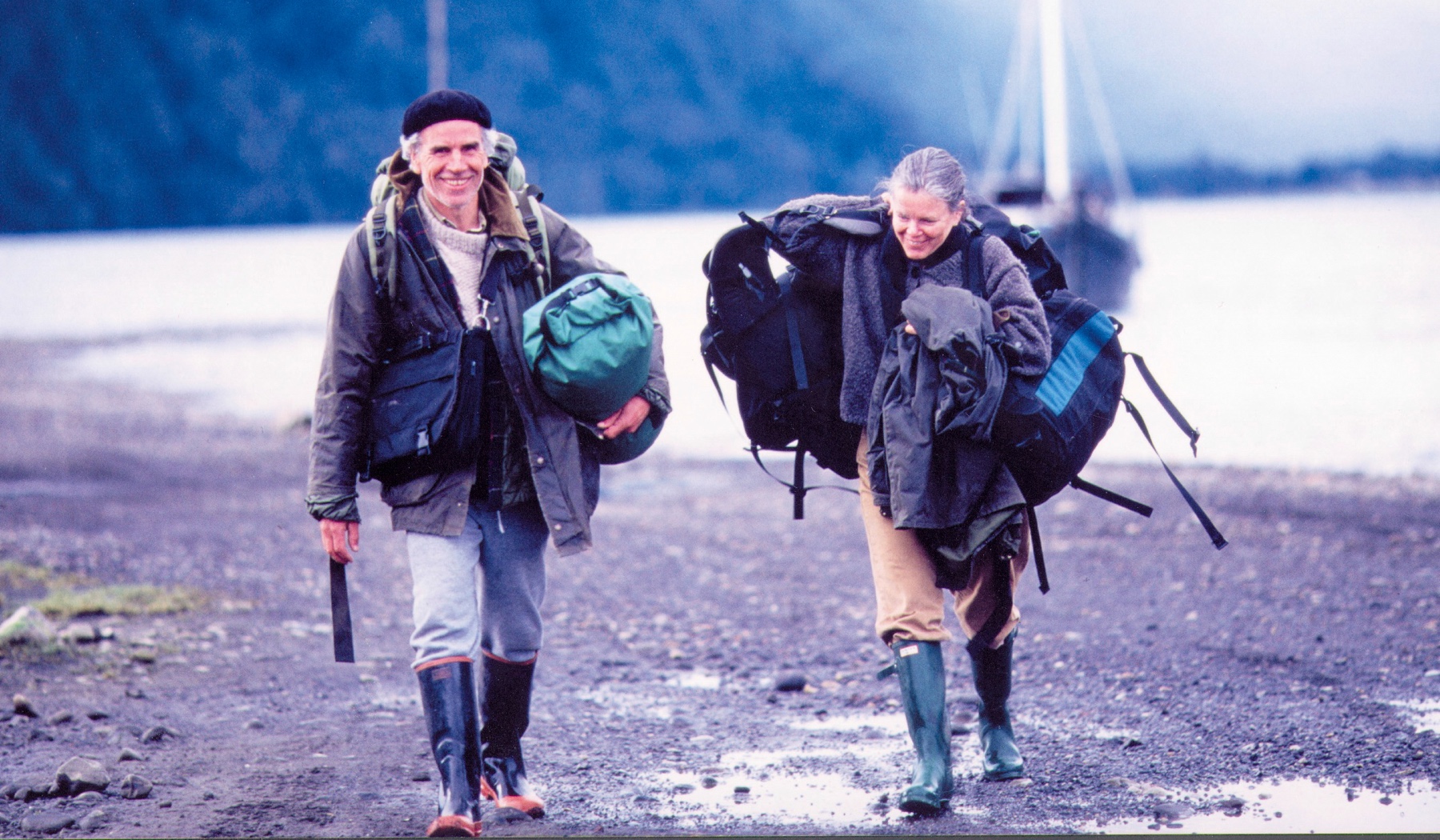
Kristine Tompkins is an iconic conservationist, the president and co-founder of Tompkins Conservation, and the former CEO of Patagonia. For three decades, she has committed to protecting and restoring wild beauty and biodiversity by creating national parks, restoring wildlife, inspiring activism, and fostering economic vitality through conservation.
Kristine and her late husband Douglas Tompkins have protected approximately 14.8 million acres of parklands in Chile and Argentina through Tompkins Conservation and its partners, making them among the most successful national park-oriented philanthropists in history. To give you a frame of reference for exactly how much land 14.8 million acres is, Yellowstone National Park is just over 2.2 million acres– so the scale and scope of Tompkins Conservation’s impact is truly mind-blowing.
Kristine’s amazing life story was beautifully told in the 2023 feature-length documentary Wild Life, which I highly recommend and can be streamed on Disney+. She was also awarded the Carnegie Medal of Philanthropy, and she recently gave her second TED talk, which will be released in the coming weeks. She’s been featured by pretty much every media outlet you could imagine, so I was honored that she took time out of her very full schedule to chat with me.
Tompkins Conservation has published multiple books about its groundbreaking conservation work in South America. The most recent book is titled Patagonia National Park Chile, which tells the story of the park’s transformation from a former sheep ranch into one of the crown jewels of Chile’s National Park system. Featuring stunning photography by Linde Waidhofer and essays by Kristine, the former President of Chile Michelle Bachelet, Yvon Chouinard, and many others, the coffee-table style book is equal parts inspiring and educational. It’s the kind of book that you’d proudly display on your shelf and find yourself revisiting for years to come.
I met up with Kristine at her California home, and we had a fun and fascinating conversation about everything from the book to leadership to the growth and evolution of Tompkins Conservation. We discussed optimism and pessimism, the difference between contentment and happiness, the importance of having a relentless work ethic, living an extreme life, and operating as if you have nothing to lose. We also talked in detail about the challenges of creating Patagonia National Park, balancing rewilding efforts with the need for economic vitality, and how the conservation lessons learned in South America can be applied to conservation efforts here in the American West. There are even a few brief appearances by her two very sweet pups who sat with us during our conversation, so all of you dog lovers will surely enjoy hearing from them.
Patagonia National Park Chile is available right now at Patagonia.com and available for pre-order wherever you get your books. Follow the links in the episode notes to learn more.
A huge thank you to Kristine for inviting me into her home and being so gracious and generous with her time. And another huge thanks to the teams at Tompkins Conservation and Patagonia Books for the opportunity. Thanks so much for listening, and I hope you enjoy.
—
All photos courtesy of Patagonia. Header photo credit: Nicolas Piwonka; Headshot photo credit: Adam Amengual
LISTEN & DOWNLOAD:
Apple Podcasts
Spotify
… or wherever you get your podcasts!
—
RESOURCES:
Topics Discussed:
- 3:40 – Why Kris keeps coming back to books
- 7:30 – Who is Arnie Næss
- 13:45 – Discussing leadership, giving credit, and other behaviors key to Kris’s success
- 18:40 – Happiness vs contentment
- 21:30 – Discussing Valle Chacabuco
- 25:45 – Establishing local buy-in as a conservation entity not local to Chile
- 30:30 – How the Tompkins managed livestock on the Valle Chacabuco
- 32:15 – The speed at which settlers spread to Chile
- 34:15 – Whether Kris is an optimist or pessimist
- 36:00 – Who in the new generation gives Kris hope, and what Kris thinks about “hope”
- 40:45 – Kris’s view on taking action
- 44:30 – How Kris prioritizes her efforts
- 49:45 – What Kris has learned in South America that is applicable to the North American West
- 52:15 – Business’s impact on Kris and Doug’s conservation work ethic
- 53:45 – Kris’s favorite failure and lessons learned
- 59:45 – Kris’s life of extremes and passion for service
- 1:05:45 – Kris’s book recommendations
- 1:15:45 – The land trust movement in the US, and the American grasslands
Information Referenced:
- Kristine Tompkins
- Tompkins Conservation
- Rewilding Chile
- Rewilding Argentina
- Douglas Tompkins
- Patagonia National Park
- Vincent Stanley
- The new book, Patagonia National Park
- Arne Næss
- Spinozism
- The Wolf in the Parlor by Jon Franklin
- Sigmund Kvaløy Setreng
- Yvon Chouinard
- Valle Chacabuco
- The Nature Conservancy
- Tierra del Fuego
- Doug Peacock
- Greta Thunberg
- Tapir
- Pete McBride
- Hampton Sides
- Endurance by Alfred Lansing
- James Baldwin
- Genghis Khan
- Napoleon Bonaparte
- The Sea People by Christina Thompson
- The Wager by David Grann
- Sir Francis Drake
- Strait of Magellan
- Douglas Brinkley
- Silent Spring Revolution by Douglas Brinkley
- James Prosek
- Carlos Fernandez
Enjoy this episode? Then you might like these too:
- Nick Offerman – Empathy, Nuance, & Good Hard Work
- Doug Peacock – 50 Years of Fighting for the Grizzlies
- Anna Borgman – Obsession, Curiosity, and Purpose-Driven Work
- Rick Ridgeway – Purpose-Driven Adventurer
- Vincent Stanley – Lessons Learned from Patagonia’s First Fifty Years
- Dylan Tomine – Protecting What He Loves
- Pete McBride, Part 2: In Search of Silence
- Corissa Busse – Tribal-Led Buffalo Restoration in the American West and Beyond
- Jenna Pollard – Timber Framing, Organic Farming, Community, and Purpose
Visit the podcast page for a full, searchable list of episodes
Logan Maxwell Hagege Returns – On Taking Action & Finding Balance
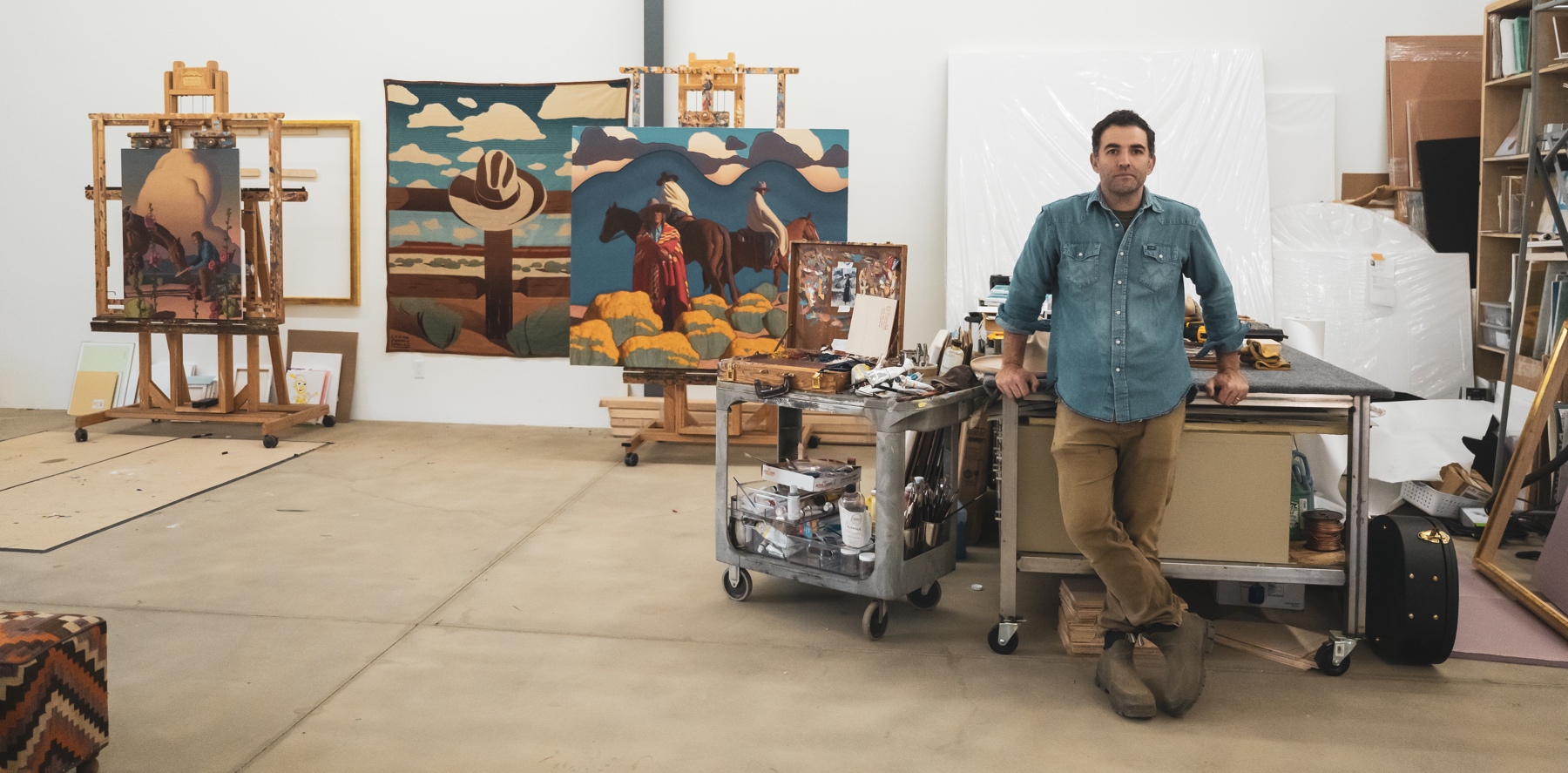
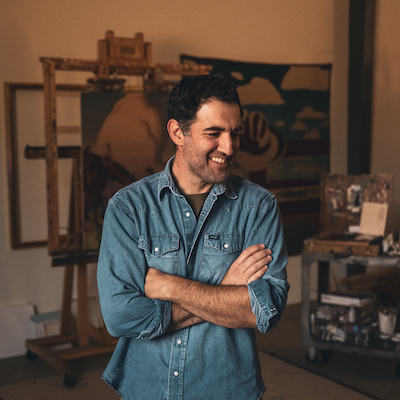
Photo credit: Dylan Gordon
Logan Maxwell Hagege is an Ojai, CA-based contemporary artist with modern visions of the American West. Logan is no stranger to longtime Mountain & Prairie listeners—he first joined me on the podcast back in 2019, and he made another appearance in 2022 alongside several other renowned Western artists in an episode recorded live at Maxwell Alexander Gallery’s 10th-anniversary exhibition. In this episode, I reconnected with Logan at his Ojai studio, and we caught up on a long list of fascinating topics, including his upcoming exhibition at the Gerald Peters Gallery in New York City titled Flowers Will Grow.
Since our first podcast conversation, Logan’s artistic career has continued to skyrocket, and his work has earned the acclaim of a growing number of collectors, critics, and journalists. Most recently, his painting titled “Time and Space” won Best in Show at the Autry’s Masters of the American West show. He’s also been featured in all corners of the Western art world, including a recent spread in Western Art and Architecture and collaborations with well-known brands such as Stetson and Pendleton. But perhaps most impressively, he’s accomplished all of this success while being a deeply committed husband and father of two young children.
As you’ll hear in this conversation, Logan works extremely hard and is fully committed to exploring new realms of his artistic interests, but he brings balance and calmness to what could easily become an all-consuming obsession. I caught Logan just as he was wrapping up all the final details for his upcoming show, and we had a fun discussion about a wide range of topics, including: The intensity of preparing for a show, accepting the judgment that comes with showing art, his practice of constant doodling, how living in Ojai has changed his approach, the importance of self-talk, Georgia O’Keefe, the idea that perfection is boring, the need for action, and much more. Check out the episode notes for a full list of topics discussed and links to everything.
And if you happen to be in New York, the Flowers Will Grow exhibition will open with a reception with Logan on Thursday evening, April 18, 2024, and will be on display through May 23rd.
A huge thanks to Logan for letting me barge into his studio during such a busy time and a huge thanks to you for listening. Enjoy!
All photos by Dylan Gordon
LISTEN & DOWNLOAD:
Apple Podcasts
Spotify
… or wherever you get your podcasts!
—
RESOURCES:
Topics Discussed:
- 2:45 – What the hell is happening in Logan’s studio, and his upcoming show in New York
- 5:15 – Why Logan is working with a gallery outside of Maxwell Alexander
- 7:30 – Whether Logan was nervous the last time he showed his art in New York
- 9:00 – The impact of being able to show more examples of an artist’s work
- 11:15 – How periods of intensity and external pressure have shaped Logan’s work
- 12:45 – How Logan’s art has changed since his 2018 show
- 14:30 – What a Logan’s process looks like when there isn’t external pressure from deadlines
- 17:45 – Logan’s doodling process
- 19:45 – The need for action
- 23:30 – How Logan deals with the fact that unique art will be judged
- 27:45 – Discussing perfection and how boring it is
- 28:45 – Who Logan admires
- 31:15 – Discussing Georgia O’Keefe
- 32:45 – Discussing Logan’s life in Ojai
- 40:00 – The importance of retreat for Logan’s art
- 42:00 – The impact of self-talk
- 44:30 – Discussing the new gallery
- 47:45 – Logan’s book and artist recommendations
Information Referenced:
- Logan Maxwell Hagege
- Logan’s first M&P episode
- Live at Maxwell Alexander Gallery
- Hollyhocks
- Maxwell-Alexander Gallery
- Gerald Peters Gallery
- Briscoe Western Art Museum
- Prix de West
- Masters of the American West, Autry Museum
- Georgia O’Keeffe
- Glenn Dean
- Norman Rockwell
- Ojai, CA
- Rick Ridgeway
- Tribe by Sebastian Junger
- Jocko Willink
- David McCullough
- Tim Lawson
Enjoy this episode? Then you might like these too:
- Nick Offerman – Empathy, Nuance, & Good Hard Work
- Live at the Amon Carter Museum – In Conversation with James Prosek and Spencer Wigmore
- Frances Ashforth – Art, Water, and Wide-Open Spaces
- David James Duncan – Live at the Old Salt Festival
- Kathie Sever – Chainstitching, Craftsmanship, and Cosmic Western Wear
- Beau Alexander – Paying Homage to the Past, While Focusing on the Future
- Douglas Brinkley – Exploring the Past to Find Inspiration for the Future
- Chris Burkard, Part 2 – Seeking Beauty Through Adventure
Visit the podcast page for a full, searchable list of episodes
Dr. Emily Howe – The Interconnectedness of Mountains, Forests, Rivers, and Estuaries
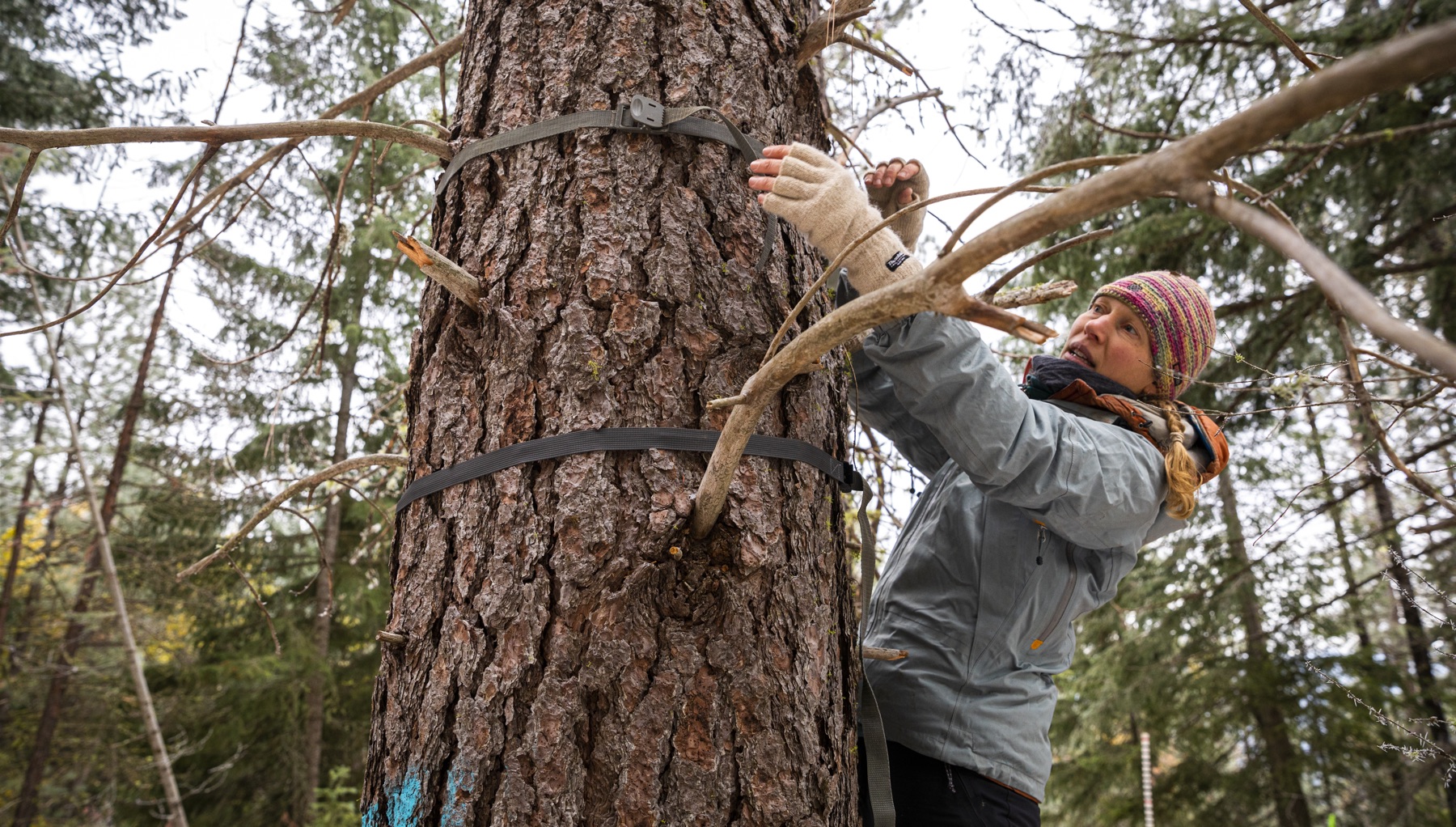
Dr. Emily Howe is an aquatic ecologist with the Washington state chapter of The Nature Conservancy, and she holds a Ph.D. from the School of Aquatic and Fishery Sciences at the University of Washington. Her work integrates across ecosystem boundaries, investigating how landscape configuration and management shape cross-boundary relationships for food webs, organisms, and ecosystem processes.
At the Nature Conservancy, Emily’s projects stretch from the high peaks of the North Cascades all the way down to the estuary of Port Susan Bay, and her work highlights the interconnectedness of everything from snowpack to salmon populations, forest management to marsh grass health. Much of Emily’s work focuses on understanding liminal spaces– areas in nature where boundaries blend together and where the interactions between ecosystems can be fluid and dynamic.
Since the earliest days of European settlement, this area has been subject to a wide variety of threats to the overall ecosystem—aggressive logging, wildfire suppression, attempts to engineer order into the ever-changing estuaries, and more. And with the intensification of climate change, snowfall and its resulting snowpack have decreased, which only exacerbates the negative effects and threats to the ecosystem.
But thanks to Emily and her team of stakeholders and partners, there are many, many reasons to be optimistic about the future. Combining cutting-edge science with Indigenous knowledge, Emily and TNC are making great progress toward finding solutions that can help with everything from increasing the depth and duration of snowpack in the Cascades to restoring all-important salmon habitat, and much much more.
If you’re a fan of ecology and are interested in how Indigenous wisdom can bolster our 21st-century scientific knowledge, then you’ll love this episode. We start our conversation at sea level, discussing the magic of the tidal ecosystems, then work our way up the into mountains, eventually discussing all things snowpack and forest health. We talk about TNC’s partnership with the Stilliguamish Tribe, how forest gaps can affect snowpack, snow droughts and El Nino, collaboration with federal agencies, and rising sea levels in the Northwest. Emily also talks about her career path to becoming a scientist and she offers up some excellent book recommendations.
I love the Pacific Northwest, so I greatly appreciate everything that Emily and her partners are doing to keep this region of the West so wild, special, and healthy. I hope you enjoy.
Photos courtesy of The Nature Conservancy and the University of Washington’s Snow Project.
LISTEN & DOWNLOAD:
Apple Podcasts
Spotify
…or wherever you get your podcasts!
EPISODE PARTNER:
This episode is brought to you in partnership with the Colorado chapter of The Nature Conservancy and TNC chapters throughout the Western United States. Guided by science and grounded by decades of collaborative partnerships, The Nature Conservancy has a long-standing legacy of achieving lasting results to create a world where nature and people thrive.
On the last Tuesday of every month throughout 2024, Mountain & Prairie will be delving into conversations with a wide range of The Nature Conservancy’s leaders, partners, collaborators, and stakeholders, highlighting the myriad of conservation challenges, opportunities, and solutions here in the American West and beyond. You can access all of the episodes here.
To learn more about The Nature Conservancy’s impactful work in the West and around the world, visit www.nature.org
RESOURCES:
Topics Discussed:
- 3:45 – Discussing the history Port Susan Bay Preserve
- 8:15 – The colonial reasons for the “straightening out” of the complex Stille River System
- 11:15 – Why TNC became interested in Port Susan Bay
- 13:15 – Emily’s focus on the Port Susan Bay Preserve
- 17:15 – Emily’s partnership with Tribal entities around Port Susan Bay Preserve
- 21:45 – Where and how TNC partners with the federal government on its work on the coast
- 26:15 – Goals for the Port Susan Bay Preserve
- 32:30 – How fast the sea level is rising in the Port Susan Bay Preserve
- 34:15 – The 2015 Pacific Northwest snow drought
- 38:15 – Emily’s involvement in higher elevation forest management and how it can impact snowpack and water resources
- 45:00 – Putting Emily’s work above to practice
- 52:30 – Emily’s personal journey to this work
- 56:30 – Emily’s book recommendations
- 1:02:00 – Emily’s parting words of wisdom
Information Referenced:
- TNC Washington
- Port Susan Bay Preserve
- Salish Sea
- Stillaguamish River
- Glacier Peak
- Diatoms
- Macoma
- Snoqualmie Tribe
- Tulalip Tribes
- Dr. Susan Dickerson-Lange
- Tapash Sustainable Forest Collaborative
- Yakama Nation
- Yakima, WA
- The Big Burn by Timothy Egan
- The Timber Wars
- Demon Copperhead by Barbara Kingsolver
- Braiding Sweetgrass by Robin Wall Kimmerer
- Leah Palmer’s blog post
Enjoy this episode? Then you might like these too:
- Paige Lewis – Durable Conservation, Collective Action, and Strategic Thinking
- Jenna Pollard – Timber Framing, Organic Farming, Community, and Purpose
- Matt Cahill – A Deep Dive into the Sagebrush Sea
- Lorelei Cloud – Solving Modern-Day Challenges with Ancient Tribal Wisdom
- Cole Mannix – Building Community through Land Stewardship and Local Food
Visit the podcast page for a full list of episodes where you can filter episodes by topic and guests’ vocations.
Sterling Drake – Roots Music, Ranching, and Giving Back
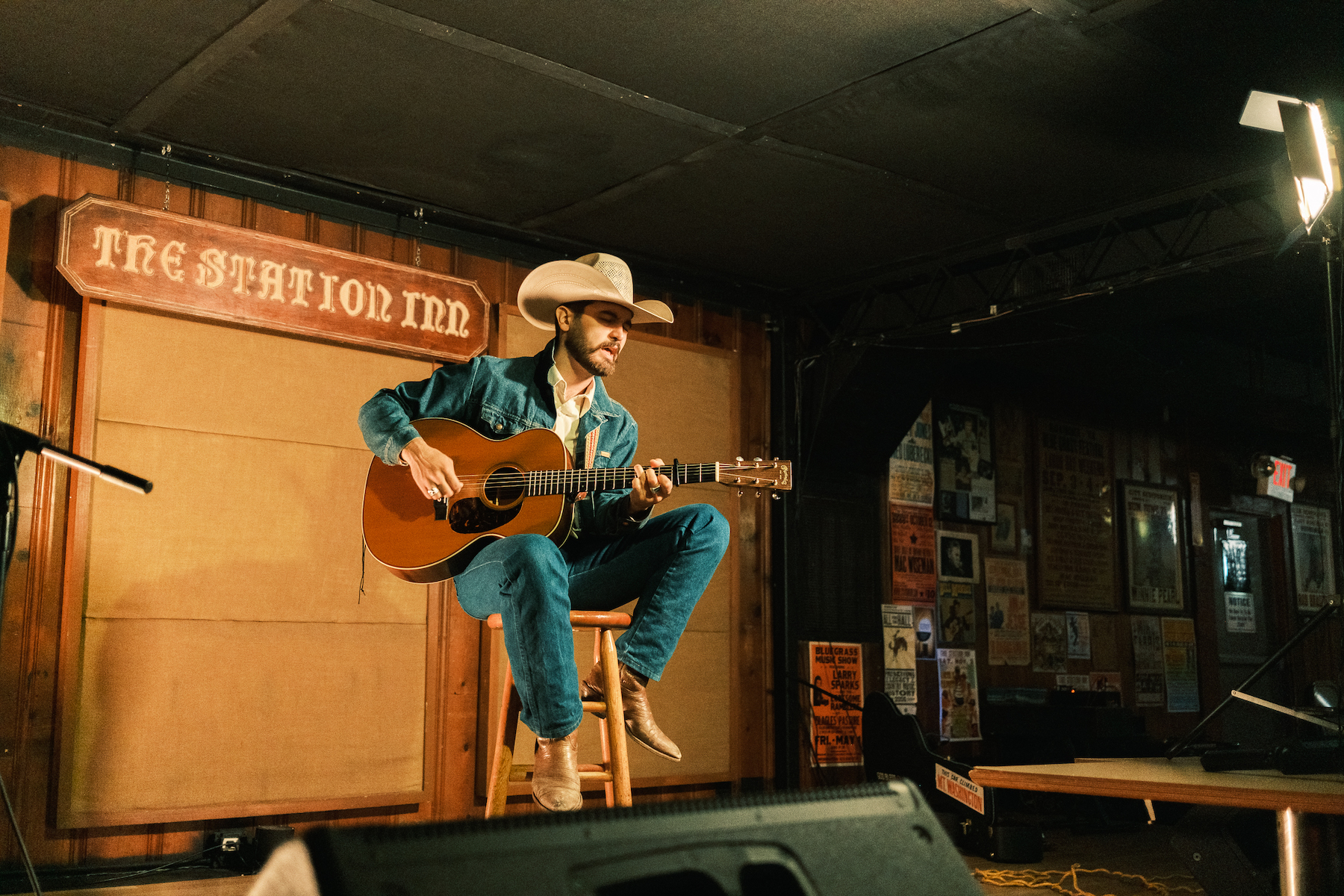
Sterling Drake is an award-winning musician whose soulful tunes reflect his deep love of the landscapes, people, and culture of the American West. The media outlet Lonesome Highway probably best described Sterling’s music by calling it a “perfect fusion of western swing, honky-tonk heartache, and dance hall treasures.” But you can’t really confine Sterling’s music to a single, overarching category– his influences range from country to folk to blues [and more], and he’s toured everywhere from rural Montana to the swamps of South Florida to the music epicenter of Nashville, Tennesse. And it’s those wide-ranging experiences and influences that make him such a fascinating and thoughtful character and such a fun person to talk with.
Sterling’s family has roots in the southeastern U.S., and he was born and raised in Florida. Music was always a big part of his life, but his early interests revolved around the hardcore music scene and his love of drumming. Soon after graduating high school, he decided to head out west, where he began a long stretch of working on various ranches in several different states. Over time, his musical focus shifted from the hardcore world into the roots genre, and he began to capture the attention of audiences at bars, rodeos, and everywhere in between. Today, Sterling is a full-time touring musician, and as I record this, he is preparing for his first European tour. In my mind, Sterling is a perfect example of how a person can successfully meld passion, curiosity, hard work, and respect to create an entirely unique brand of art that resonates with a large, thoughtful audience.
I met Sterling last summer at the 2023 Old Salt Festival in Helmville, Montana, and I was instantly struck by his thoughtfulness, sense of humor, and his desire to contribute to the culture of the American West. So I was glad to finally connect with him for a podcast episode and have an in-depth conversation about his artistic journey. We started out talking about his upbringing in Florida and why he eventually decided to head west. We discuss his time working on ranches, lessons learned from living and working in Nashville, and why he continues to be drawn to Montana. We discuss his most recent EP titled Jereco Sessions, and why he decided to donate all of the proceeds of that project to the nonprofit Western Landowners Alliance. We also discuss Willie Nelson, books, martial arts, straight-edge culture, travel, and much, much more.
If you want to see Sterling perform in person and have a chance to hang out with him, I’d encourage you to come to this summer’s Old Salt Festival, which is taking place June 21-23 in Helmville, Montana. Both Sterling and I will be there, and we’re both looking forward to what is guaranteed to be an amazing weekend.
Thanks for listening, hope you enjoy!
Photos courtesy of Sterling Drake
LISTEN & DOWNLOAD:
Apple Podcasts
Spotify
… or wherever you get your podcasts!
—
RESOURCES:
Topics Discussed:
- 5:00 – Sterling’s first memory of music
- 7:45 – Reflecting on Sterling’s childhood in Florida
- 11:00 – How Sterling became interested in the West, and further discussing Sterling’s upbringing
- 14:30 – Sterling’s time in Utah
- 17:30 – Where Sterling’s work ethic comes from
- 20:00 – How music played into Sterling’s early years out West
- 22:00 – A brief discussion of martial arts and its impact on Sterling’s life
- 25:45 – Sterling’s shift into country music
- 28:15 – When Sterling’s country career started to take off
- 33:15 – Sterling’s insider take on the Nashville music industry
- 40:45 – How Sterling became involved with WLA
- 44:15 – Discussing Sterling’s recent/upcoming album cover
- 45:15 – Sterling’s upcoming European tour
- 46:45 – Looking forward to Old Salt Festival
- 52:30 – Where Sterling may eventually choose to settle down
- 54:00 – Sterling’s advice to early career professionals and aspiring artists
- 1:00:30 – Sterling’s book recommendations
- 1:03:45 – Sterling’s parting words of wisdom
Information Referenced:
- Sterling Drake
- Old Salt Festival
- Western Landowners Alliance
- Beau Alexander and Logan Maxwell Hagege
- Cole Mannix
- Lesli Allison
- Jess Mudgett
- Chris Burkard
- Kaleo
- Bob Marshall Wilderness
- Ovando, MT
- Helmville, MT
- Nick Offerman
- It’s a Long Story by Willie Nelson
- The Lost Cowboy by J.B. Zielke
- Dusty Vaquero YouTube Channel
Enjoy this episode? Then you might like these too:
- David James Duncan – Live at the Old Salt Festival
- Nick Offerman – Empathy, Nuance, & Good Hard Work
- Kathie Sever – Chainstitching, Craftsmanship, and Cosmic Western Wear
- Amber Smith – Creating Connection & Community
- Rick Ridgeway – Purpose-Driven Adventurer
- Nickolas Butler – The Craft of Creativity
- Rick Wittenbraker – Humility, Generosity, and Building One-of-a-Kind Brands
Visit the podcast page for a full, searchable list of episodes
Kevin Krasnow – Keeping Jackson Hole Wild and Beautiful
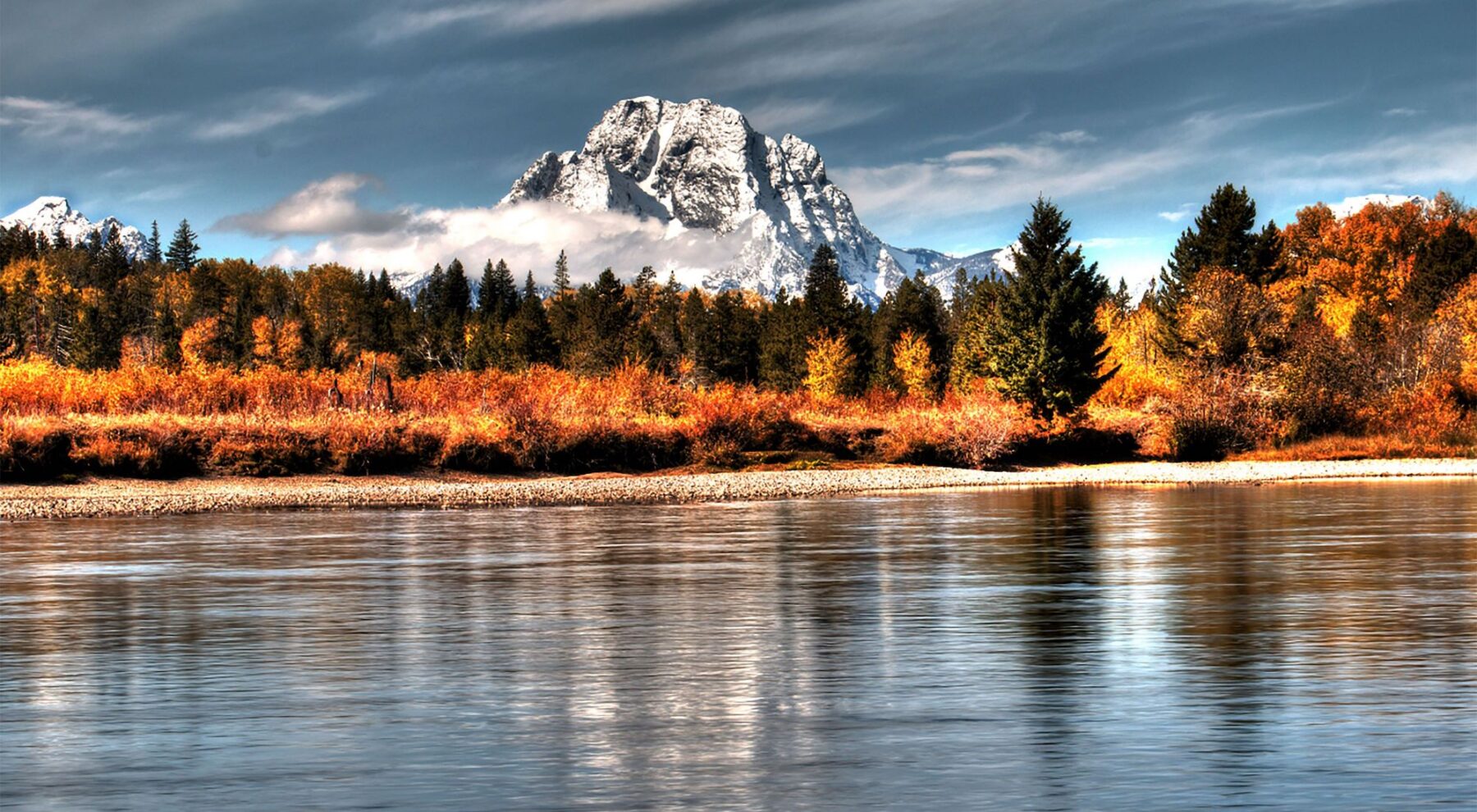
Kevin Krasnow is the Conservation Director at the Jackson Hole Conservation Alliance, a long-standing, highly effective organization whose mission is to “protect the wildlife, wild places, and community character of Jackson Hole.” For more than four decades, the Jackson Hole Conservation Alliance has been a staunch advocate for keeping Jackson Hole wild and beautiful, and it has proven to be a nimble and creative protector of the legendary Wyoming valley. The organization has served as a watchdog against poorly planned development, a champion for public land, a community voice that holds elected officials accountable, and much more.
Kevin brings a fascinating and diverse professional background to his work at the Jackson Hole Conservation Alliance– he’s worked as an Outward Bound instructor, a high school teacher, a college professor, and, most notably, he earned a Ph.D. in Environmental Science, Policy, and Management from the University of California Berkley. Prior to joining the team at the Jackson Hole Conservation Alliance, he worked for ten years at the Teton Science Schools in Jackson. As you’ll hear in our conversation, Kevin is a high-level expert in forest and wildfire ecology, and he speaks eloquently about the role of wildfires in the Greater Yellowstone Ecosystem and beyond.
When I first headed out West from North Carolina nearly twenty years ago, I moved to Jackson Hole— and I will always have a tender spot in my heart for that particular area. So I was thrilled to have the opportunity to connect with Kevin and talk about all things related to ecology, wildlife, fire, and conversation in Jackson Hole. We started with a deep dive into Aspen trees, and why they are such an important and unique part of the Greater Yellowstone Ecosystem. We discussed the Yellowstone Fire of 1988 and how that disaster shaped forest management in the future. We discussed the unprecedented development pressure in and around Jackson, how Kevin and his organization collaborate with a wide range of conservation partners, his professional journey from indirect to direct conservation work, and how his career as an educator informs his work today.
If you’ve ever spent time in the Tetons, Yellowstone, or the Greater Yellowstone Ecosystem, then you’re going to learn a lot from Kevin. Please check out the notes below for a full list of everything we discuss, and I hope you enjoy!
Header photo courtesy of TNC: “Reflective Waters on Jackson Lake.” © Andrew Underwood; Headshot courtesy of Kevin Krasnow
LISTEN & DOWNLOAD:
Apple Podcasts
Spotify
…or wherever you get your podcasts!
EPISODE PARTNER:
This episode is brought to you in partnership with the Colorado chapter of The Nature Conservancy and TNC chapters throughout the Western United States. Guided by science and grounded by decades of collaborative partnerships, The Nature Conservancy has a long-standing legacy of achieving lasting results to create a world where nature and people thrive.
On the last Tuesday of every month throughout 2024, Mountain & Prairie will be delving into conversations with a wide range of The Nature Conservancy’s leaders, partners, collaborators, and stakeholders, highlighting the myriad of conservation challenges, opportunities, and solutions here in the American West and beyond. You can access all of the episodes here.
To learn more about The Nature Conservancy’s impactful work in the West and around the world, visit www.nature.org
RESOURCES:
Topics Discussed:
- 3:30 – Discussing Aspen trees and how they captured Kevin’s attention
- 9:30 – Threats to Aspen populations
- 13:30 – Looking at the Yellowstone Fire of 1988
- 24:00 – How significantly forestry and attitudes toward fire have changed after the Yellowstone Fire of 1988
- 28:30 – What brought Kevin to the Jackson Hole Conservation Alliance
- 31:00 – Whether or not COVID has impacted the urgency of JHCA’s work
- 35:15 – What specific problems Kevin works on at JHCA
- 39:15 – How Kevin and JHCA have collaborated with The Nature Conservancy
- 43:00 – Kevin’s switch from “indirect” conservation to “direct”
- 45:00 – When the outdoors became a part of Kevin’s life
- 47:15 – Kevin’s early career in experiential education, and how it benefits his career now
- 52:30 – Kevin’s words for a young person looking for career advice
- 55:00 – Kevin’s book recommendations
- 58:15 – Kevin’s parting words of wisdom, and how folks can support JHCA
Information Referenced:
- Kevin Krasnow
- Pando Aspen Stand
- Pine beetle
- Yellowstone fires of 1988
- Ponderosa Pine
- The Big Burn by Timothy Egan
- Fire Weather by John Vaillant
- John Vaillant
- Jackson Hole Conservation Alliance
- The Nature Conservancy, Idaho
- The Nature Conservancy, Wyoming
- Teton Area Wildfire Protection Coalition
- Outward Bound
- Braiding Sweetgrass by Robin Wall Kimmerer
- When Things Fall Apart by Pema Chodron
Enjoy this episode? Then you might like these too:
- Doug Peacock – 50 Years of Fighting for the Grizzlies
- Rob Addington – A Deep Dive into Western Wildfires and Forest Health
- John Vaillant – A Riveting Exploration of Fire
- Christian Beckwith, Part 2 – The Fascinating History of the 10th Mountain Division
- Dr. Katharine Hayhoe – Effecting Change Through Authentic Conversation
- 50 Years of the Endangered Species Act – Live in Austin
Visit the podcast page for a full list of episodes where you can filter episodes by topic and guests’ vocations.
Mike DeHoff – Exploring the Colorado River’s Reemerging Rapids
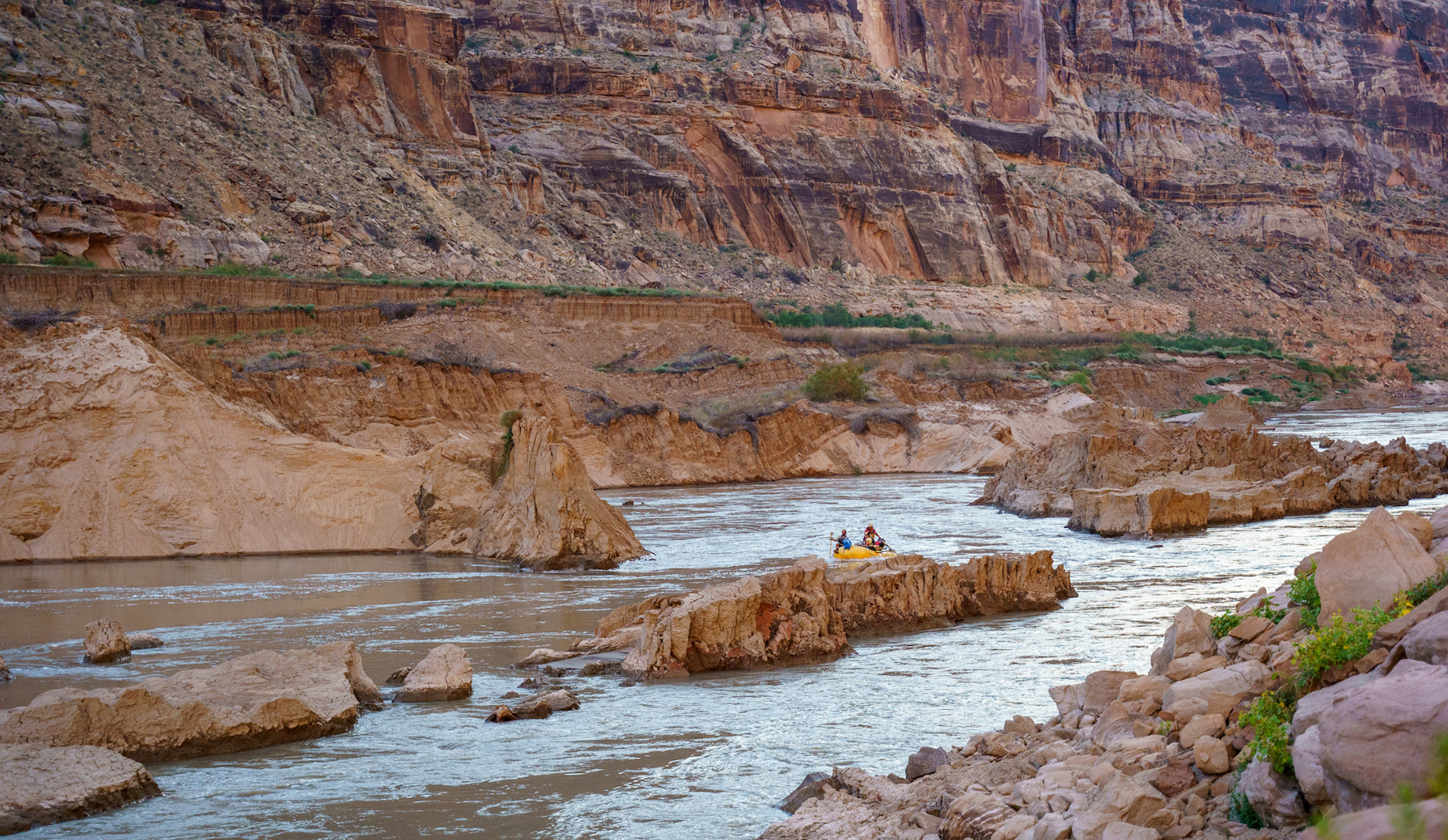
Mike DeHoff is the Principal Investigator at Returning Rapids Project, a one-of-a-kind initiative that is documenting the recovery of the Colorado River in Cataract Canyon, upper Glen Canyon, and along the San Juan. Back in 1963, the construction of Glen Canyon Dam created Lake Powell, which submerged many of the area’s canyons– turning what were once wild stretches of the Colorado into flat water. Today, the southwest’s ongoing historic drought has caused Lake Powell’s water levels to to drop significantly, revealing historic rapids, recently hidden geologic features, and riparian ecosystems that had been deep underwater for nearly fifty years.
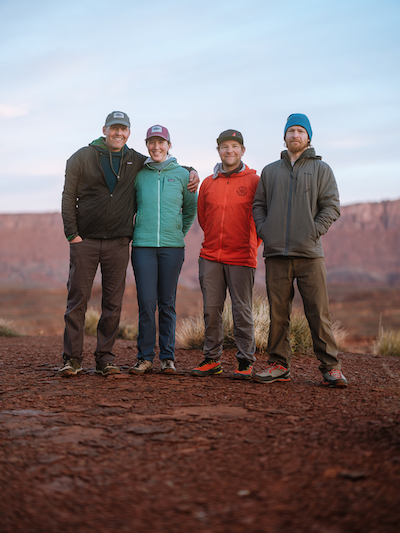
Returning Rapids began as a personal project for Mike and three of his river-loving friends– Meg Flynn, Peter Lefebvre, and Chris Benson. They began to notice changes in the river created by Lake Powell’s receding waters and started documenting those changes and using historic photographs and documents to better understand the reemerging landscape. Over the years, their work caught the attention of universities, academics, scientists, and government agencies, all of whom were fascinated by what was being discovered deep in those canyons. Fast forward to today, and their work is not only enabling cutting-edge research but also capturing the attention of bigtime media outlets, including a recent feature in Rolling Stone.
Mike connected with me virtually from his home base in Moab, Utah, and we had a fascinating discussion about the Colorado River, Lake Powell, and the history of the Returning Rapids project. We started out with a brief history lesson on the drought’s effect on the Colorado River, then we dug into issues such as the mind-blowing amount of sediment created by Glen Canyon Dam. We discussed when Mike and his partners realized that their personal project was capturing the attention of the public, the challenges of garnering attention for lesser-known places like Cataract Canyon, and the idea of combining Lake Powell and Lake Mead. We also talk a lot about Mike’s personal journey with this project, and how his willingness to follow his curiosity, partner with very smart people, take risks, and work extremely hard has had a significant scientific impact. We also discuss books, his mentors, his desire to learn from everyone he meets, and much more.
A huge thanks to Mike, Meg, Peter, and Chris for their important work, and for providing such a solid example for all of us who feel drawn to make a difference here in the American West. You can support Returning Rapids
Header photo by Travis Custer, photo of Mike and Meg by Elliot Ross, team photo by Cody Cobb
LISTEN & DOWNLOAD:
Apple Podcasts
Spotify
…or wherever you get your podcasts!
EPISODE PARTNER:
This episode is brought to you in partnership with the Mighty Arrow Family Foundation.
To whom much is given, much is expected. This value guides the philosophy behind the Mighty Arrow Family Foundation today.
Committed to its cause and infused with an entrepreneurial spirit, Mighty Arrow aims to invest in solutions that take action on climate change to build a more vibrant future, repair relationships from farm to market to table, heal our connection to the lands and waters we call home, and demand a more just and equitable society.
To learn more about Mighty Arrow’s forward-thinking, optimistic, and visionary work here in the American West and beyond, please visit www.mightyarrow.org.
RESOURCES:
Topics Discussed:
- 3:30 – The drought of the early 2000s and how it started a 20+ year journey for Mike
- 16:30 – How an entire land mass of Colorado River sediment can be created with no one claiming management or responsibility of it
- 21:30 – When Mike’s project shifted from a personal interest to an interest of the public
- 26:15 – The surprising rate that Lake Powell and Cataract Canyon are capable of recovering
- 34:30 – How Mike garners attention for lesser-known but important places like Cataract Canyon
- 37:15 – Discussing the idea of combining Lake Powell and Lake Meade
- 44:15 – Mike’s advice for people wanting to do something similar to he and his team
- 47:30 – Mike’s powerful appreciation for the people he meets, and his mentors and heroes
- 50:30 – Mike’s book recommendations
- 53:45 – Mike’s parting words of wisdom
Information Referenced:
- The Returning Rapids Project
- The Returning Rapids Project: Good News From the Beleaguered Colorado River
- Cataract Canyon
- Peter Lefebvre
- Meg Flynn
- Les Jones
- Mike DeHoff’s online presentation
- Encounters With Archdruid by John McPhee
- David Brower
- Floyd Dominy
- Chris Benson
- Scott Hynek
- Cari Johnson
- Mighty Arrow Family Foundation
- The Interim Guidelines
- Where the Water Goes by David Owen
- Brenda Bowen
- 1491 by Charles C. Mann
- Deadrun by Dan Schultz
- Desert Notes and River Notes by Barry Lopez
Enjoy this episode? Then you might like these too:
- Pete McBride, Part 2: In Search of Silence
- Chris Burkard, Part 2 – Seeking Beauty Through Adventure
- Taylor Hawes – Innovative Conservation in the Colorado River Basin
- Chandra Brown, Part 2 – Teaching & Learning in the West’s Wildest Landscapes
- Lorelei Cloud – Solving Modern-Day Challenges with Ancient Tribal Wisdom
- Doug Peacock – 50 Years of Fighting for the Grizzlies
- Dylan Tomine – Protecting What He Loves
Visit the podcast page for a full list of episodes where you can filter episodes by topic and guests’ vocations.
SHED SESSION: Seven Must-Read Books That You May Not Know About

An excerpt from my most recent Shed Session episode, highlighting seven of my favorite books that you may have never heard of.
To listen to the full episode and all future Shed Sessions, become a Patreon supporter.
Live at the Amon Carter Museum – In Conversation with James Prosek and Spencer Wigmore
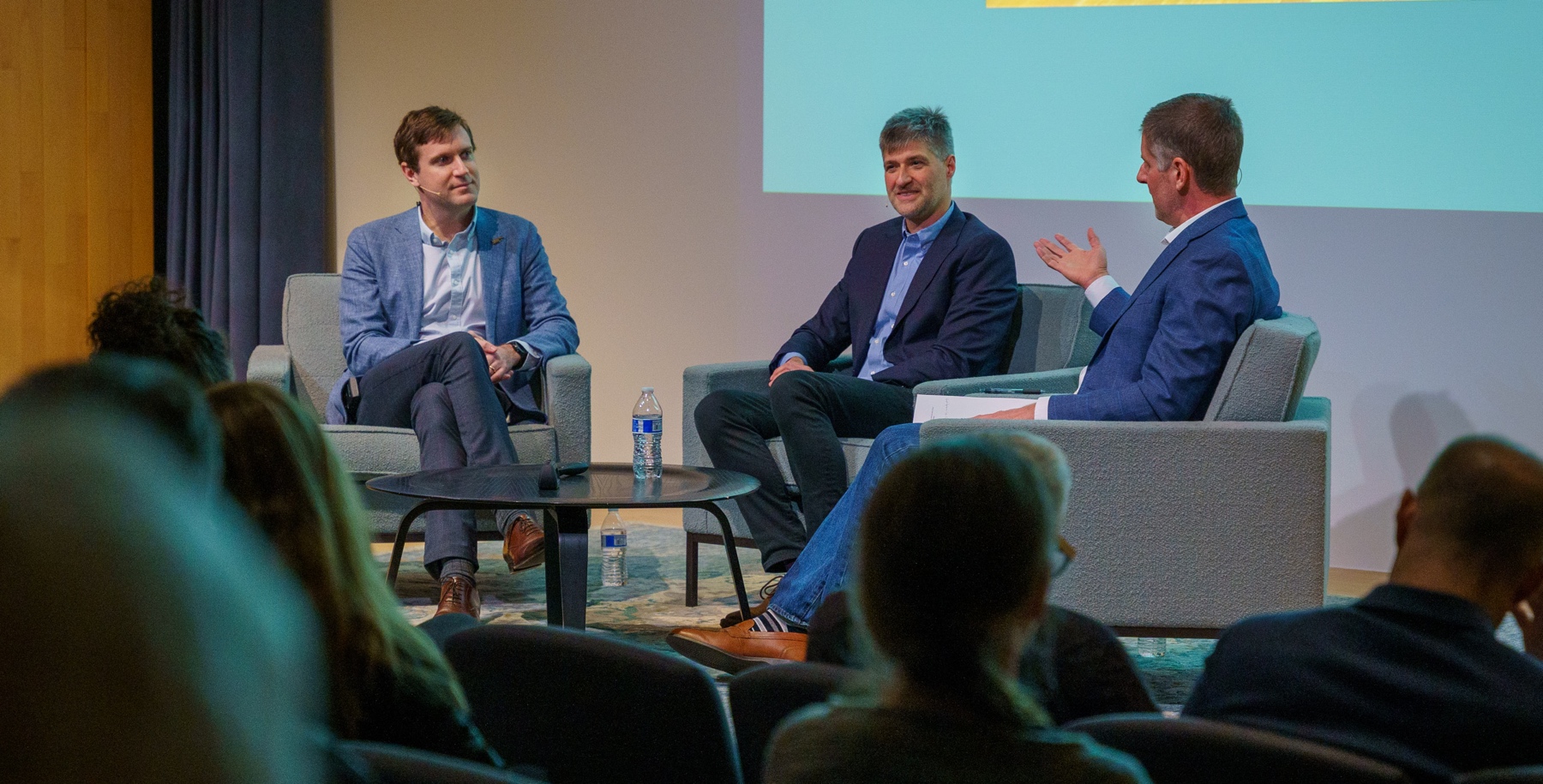
This is a special live episode that was recorded at the Amon Carter Museum of American Art in Fort Worth, Texas. The event was centered around the museum’s ongoing exhibition titled Trespassers: James Prosek and the Texas Prairie, and the episode features a fascinating on-stage conversation with artist and past podcast guest James Prosek and art curator Spencer Wigmore.
Trespassers is an exhibit about grasslands– specifically, James examines how we think about and define America’s imperiled prairie ecosystem. Over the course of more than two years, James traveled throughout Texas and the Southern Plains, visiting private ranches and urban restoration sites, and he was often accompanied by some of Texas’s most well-renowned grasslands experts. He investigated ideas around how our man-made boundaries and concepts attempt to define grasslands, and how grasslands often do not conform to our desires to control them. He examines ideas around fire, species classification, conservation, and natural history, and the end result is a collection of more than twenty mind-blowing paintings and sculptures.
As the curator for this exhibit, Spencer played a very unique role throughout the entire project– he was the one who initially approached James with the idea, he accompanied James on many of his grasslands road trips, and he even arranged the exhibit in its stunning space within the museum. So I loved learning about the collaboration between artist and curator, how they complimented each other’s personalities, and how they ultimately worked together to bring this spectacular collection of meaningful art into the world.
As you probably remember from my first podcast conversation with James, he’s a deep thinker who has spent his entire career digging into the nuances of our natural world. And Spencer’s depth of understanding of art history and the artistic process– as well as his ability to communicate his knowledge in a fun and engaging way– is second to none. So I know you’ll enjoy this conversation that covers everything from broad, big-picture ideas around the philosophies of defining species, all the way down to the details of how James created such intricate, delicate sculptures. Be sure to check out the episode notes below for a full list of everything we discussed.
The episode starts with a kind introduction from The Carter’s Manager of Adult Programming, Madeleine Fitzgerald and then James, Spencer, and I begin our conversation. I hope you enjoy!
Photos of Trespassers:
All photos courtesy of The Amon Carter Museum of American Art
LISTEN & DOWNLOAD:
Apple Podcasts
Spotify
… or wherever you get your podcasts!
—
RESOURCES:
Topics Discussed:
- 3:00 – Welcome statements
- 10:45 – How the Trespassers exhibition came about in Spencer’s mind, and how it landed for James
- 19:15 – Comparing American grasslands to the Great Pyramids
- 23:45 – James’ painting process
- 29:15 – Spencer’s role as curator
- 34:00 – Discussing the work Fort Worth Composition No. 1
- 37:45 – Discussing James’ interest in silhouettes
- 42:30 – James’ use of bronze to depict burn logs
- 47:00 – James’ clay flowers
- 50:15 – The biggest surprise in this project for Spencer
- 54:00 -What James has learned about grasslands since finishing the project
- 1:01:15 – James’ read on the state of western grasslands conservation
- 1:06:15 – James’ book recommendations
- 1:09:30 – How Spencer sets up the gallery space
- 1:14:00 – Audience questions begin
- 1:14:45 – Spencer’s and James’ relationship to Fort Worth, and whether or not they found remnant prairies there
- 1:20:00 – Where Spencer and James feel the anti-fire bias came from?
- 1:23:30 – Inquiring about the significance of a Rio Grande Cutthroat Trout in one of James’ works
- 1:26:15 – Whether or not James or Spencer did some fly fishing as a part of their research for this project
Information Referenced:
- Amon Carter Museum of American Art
- Spencer Wigmore
- James Prosek
- Trespassers exhibition
- Big Bluestem
- Fire in America by Stephen Pyne
- Heath Hens
- Pliny the Elder
- Prairie Time by Matt White
- Changes in the Land by William Cronon
- Forgotten Fires by Omer C. Stewart
- Jaime Gonzales, when featured in M&P epsisode
- The Big Burn by Timothy Egan
- Trout by James Kersec
Enjoy this episode? Then you might like these too:
- Live from Maxwell Alexander Gallery
- Nick Offerman – Empathy, Nuance, & Good Hard Work
- David James Duncan – Live at the Old Salt Festival
- Live with the Cowboy Artists of America
- Beau Alexander – Paying Homage to the Past, While Focusing on the Future
- Frances Ashforth – Art, Water, and Wide-Open Spaces
- Kelsey Johnson – Chasing Her Artistic Ambitions
Visit the podcast page for a full, searchable list of episodes
Ivy Spohnholz – Climate Solutions, Sustainable Fisheries, and Resilient Communities

Ivy Spohnholz is the Alaska State Director at The Nature Conservancy, where she leads the organization’s critical work around climate solutions, sustainable fisheries, and resilient communities. Given its size, location, climate, demographics, and economics, Alaska presents a very unique blend of conservation challenges– challenges that can directly affect massive, landscape-scale ecosystems and the communities within them. We’ve rarely, if ever, dug into the details of conservation in Alaska on this podcast, so I was thrilled to have Ivy join me for such an in-depth conversation.
Ivy was born in a dry log cabin in the remote Wrangell Mountains, in what is now Wrangell-St. Elias National Park and Preserve. Her entire career has revolved around public service– she’s held leadership roles at the Salvation Army, University of Alaska Anchorage, Alaska Conservation Foundation, and Abused Women’s Aid in Crisis. She also served for more than six years in the Alaska House of Representatives, where she honed her skills as a pragmatic and effective problem solver. In the fall of 2022, she took the reins as TNC’s Alaska State Director and has been applying her skills as a leader and problem solver toward Alaska’s distinctive conservation challenges.
I’ve been lucky enough to visit Alaska on two separate occasions, and I’ve had some of the most formative experiences of my life in the Alaska Range. The size and scale of the mountains, valleys, and wildlife are so staggering that it’s impossible to visit Alaska without gaining a deep respect for both the landscapes and the people who live there. So, I was excited to have the opportunity to chat with Ivy about her adventurous upbringing in Alaska and her service-oriented career. We talk in detail about her unexpected entrance into politics and how she quickly learned to lead and navigate the law-making process as an elected official. We discuss TNC’s focus areas in Alaska, and we talk a lot about Bristol Bay and its ecological and economic significance in the world. As you’ve probably come to expect, we talk about the all-important power of relationships, and we also discuss the need to be practical and optimistic.
A big thank you to Ivy for taking the time to talk with me– I greatly appreciate all of the important work being done by TNC Alaska. Enjoy!
Header photo by Matthew Waliszek, hunting photo by Troy Bowler
LISTEN & DOWNLOAD:
Apple Podcasts
Spotify
…or wherever you get your podcasts!
EPISODE PARTNER:
This episode is brought to you in partnership with the Colorado chapter of The Nature Conservancy and TNC chapters throughout the Western United States. Guided by science and grounded by decades of collaborative partnerships, The Nature Conservancy has a long-standing legacy of achieving lasting results to create a world where nature and people thrive.
On the last Tuesday of every month throughout 2024, Mountain & Prairie will be delving into conversations with a wide range of The Nature Conservancy’s leaders, partners, collaborators, and stakeholders, highlighting the myriad of conservation challenges, opportunities, and solutions here in the American West and beyond. You can access all of the episodes here.
To learn more about The Nature Conservancy’s impactful work in the West and around the world, visit www.nature.org
RESOURCES:
Topics Discussed:
- 3:30 – Ivy’s birth in a dry log cabin in the Wrangell Mountains
- 7:15 – Ivy’s childhood
- 10:15 – When Ivy left Alaska, and what brought her back
- 12:00 – How serving others became a core part of Ivy
- 17:00 – When Ivy became an elected official
- 24:00 – Discussing the political landscape of Alaska
- 28:15 – How Ivy became involved with TNC
- 34:45 – Discussing TNC’s work in Alaska
- 41:00 – How Ivy balances working urgently with the often slower pace of building relationships
- 46:30 – The importance of Bristol Bay
- 52:00 – Potential future threats to Bristol Bay
- 57:00 – The biggest surprise for Ivy in her work with TNC
- 59:30 – Discussing “practical optimism”
- 1:01:30 – Ivy’s book recommendations
- 1:03:45 – Ivy’s parting words of wisdom
Information Referenced:
- Ivy Sponholtz
- The Alaska Chapter of The Nature Conservancy
- Wrangell Mountains
- Nabesna, AK
- Wrangell-Saint Elias National Park and Preserve
- Anchorage, AK
- Talkeetna, AK
- The Timber Wars
- Bristol Bay
- United Tribes of Bristol Bay
- Pebble Mine
- Katharine Hayhoe
- Saving Us by Katherine Hayhoe
- Strangers In Their Own Land by Arlie Russell Hochschild
- How to Know a Person by David Brooks
- Good to Great by Jim Collins
- The Second Mountain by David Brooks
Enjoy this episode? Then you might like these too:
- Dr. Sara Dant Returns – “Losing Eden: An Environmental History of the American West”
- Jenna Pollard – Timber Framing, Organic Farming, Community, and Purpose
- Corissa Busse – Tribal-Led Buffalo Restoration in the American West and Beyond
- Vincent Stanley – Lessons Learned from Patagonia’s First Fifty Years
- Doug Peacock – 50 Years of Fighting for the Grizzlies
- Chandra Brown, Part 2 – Teaching & Learning in the West’s Wildest Landscapes
- Cole Mannix – Building Community through Land Stewardship and Local Food
Visit the podcast page for a full list of episodes where you can filter episodes by topic and guests’ vocations.
Chad Ellis – On Leadership, Building Relationships, and Working for the Greater Good
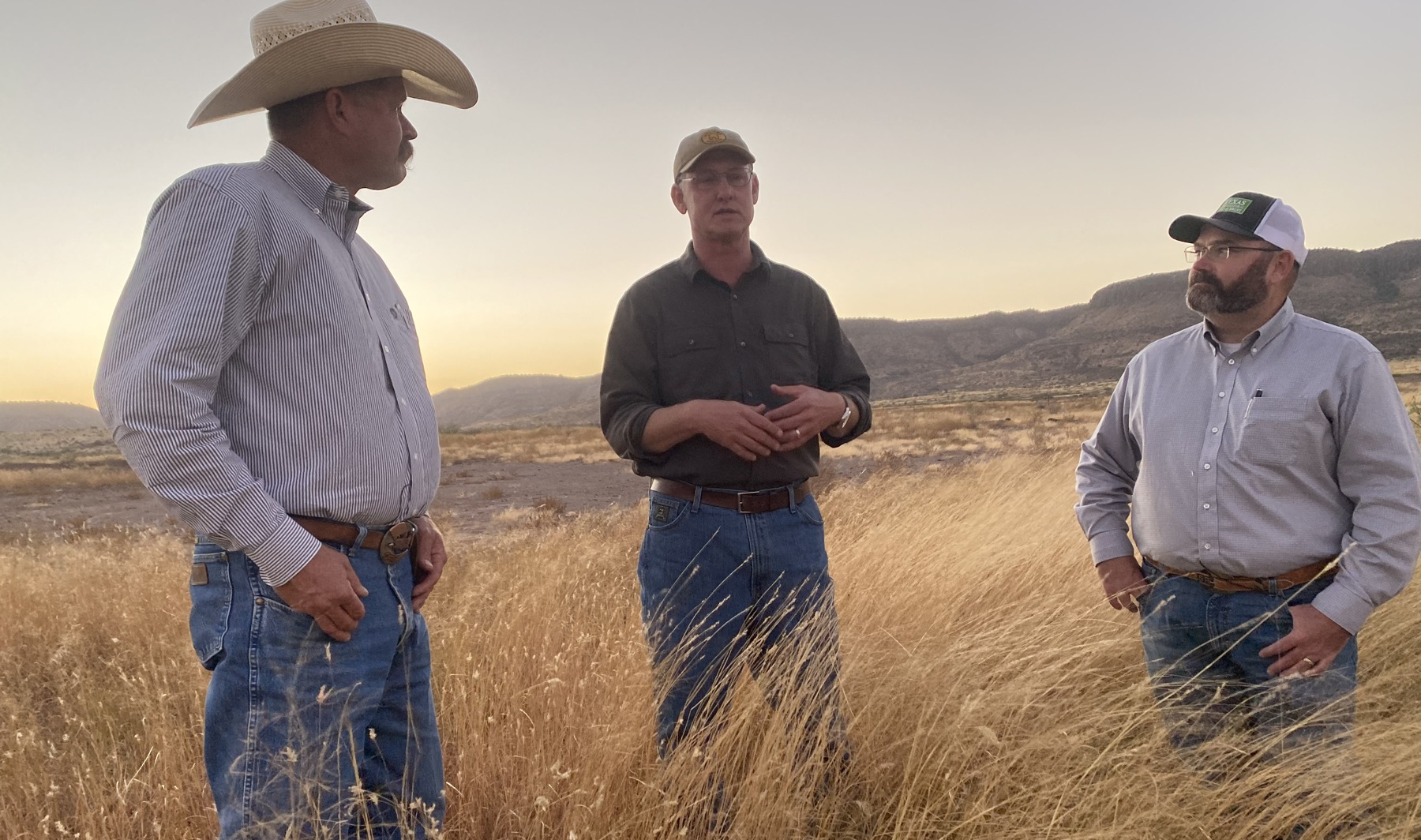
Chad Ellis is the CEO of the Texas Agricultural Land Trust (TALT), which is one of the nation’s leading ag-focused conservation organizations. TALT’s mission is “To conserve the Texas heritage of agricultural lands, wildlife habitats, and natural resources,” but at its core, TALT’s work is built on the foundation of long-term, trusting, mutually respectful relationships.
Given the small proportion of public lands in Texas compared to other western states, much of the responsibility for landscape-scale ecological health falls on the shoulders of private landowners. And since 2007, TALT has helped these landowners find ways to not only protect their family legacies, but to improve the overall quality of grasslands, water, air, and wildlife for all Texans.
Chad was raised in rural Texas, and from a very early age, he felt a deep connection to land, agriculture, and wildlife. While his entire career has been devoted to thoughtfully and effectively stewarding natural resources, you’ll quickly realize that at his core, Chad is a relationship builder. During his tenures at the NRSC, the Noble Research Institute, and now as the leader of TALT, Chad has implemented many cutting-edge conservation solutions– but, as you’ll hear him explain, none of these projects would be successful without solid, trusting relationships between all stakeholders.
Longtime listeners will recognize Chad from an earlier appearance on Mountain & Prairie– back in 2023, he was one of the panelists in an episode called “Landscape-Scale Management in a Private Land State,” which was recorded live at the Texas Chapter of the Wildlife Society’s annual meeting. In this episode, we dig more into Chad’s personal and professional journey in conservation– why he has devoted his career to such a challenging-yet-critical cause, and how he approaches his work from both practical and philosophical perspectives. We discuss his love of entrepreneurial approaches, his leadership style, mentors, the storied legacy of TALT’s founder Blair Fitzsimons, supporting the next generation of conservationists, his favorite books, and much more.
If you haven’t already, I’d encourage you to check out TALT’s website and follow its work on social media– TALT is a constant source of inspiration for me and all of the Western conservation community. Thanks for listening!
Photos courtesy of Chad Ellis and TALT
LISTEN & DOWNLOAD:
Apple Podcasts
Spotify
… or wherever you get your podcasts!
—
RESOURCES:
Topics Discussed:
- 4:30 – Where Chad grew up
- 7:45 – Chad’s work with PERC
- 10:15 – Where Chad’s entrepreneurial background came from
- 16:15 – How Chad moved up in the NRCS ranks
- 18:45 – Chad’s time with Mobil Foundation
- 21:45 – Chad’s personal vision
- 24:30 – Chad’s motivation to strengthen people’s connection to the land, instead of just supporting the land itself
- 27:15 – How Chad hires for a passionate team
- 29:15 – Chad’s work securing federal funding
- 32:45 – How Chad thinks about failure
- 34:45 – How Chad presented his vision for TALT to an already accomplished director (Blair Fitzsimons)
- 40:30 – Chad’s goal to support the next generation of conservationists
- 44:30 – How Chad interprets the threats facing conservation in Texas
- 51:30 – How Chad prioritizes his allocation of resources
- 58:45 – Exploring Chad’s level of patience, as well as the various ways that people learn and work
- 1:03:30 – The importance of relationships
- 1:07:45 – Chad’s book recommendations
- 1:09:15 – Chad’s parting words of advice
Information Referenced:
- Lohn, TX
- Texas Agricultural Land Trust (TALT)
- Property Environment Research Center (PERC)
- Noble Foundation (Noble Research Institute)
- Dr. Roel Lopez
- Natural Resource Institute
- Brian Lebronski
- Sul Ross State University
- Texas Parks and Wildlife Department
- Angelo State University
- Natural Resources Conservation Service (NRCS)
- Lloyd Noble
- Carlos Fernandez
- Inflation Reduction Act (IRA)
- Blair Fitzsimons
- Joe Fitzsimons
- Texas Chapter of the Wildlife Society 2023 meeting
- TALT’s guiding principles
- Regional Conservation Partnership Program (RCPP)
- Myers-Briggs Personality Test
- Enneagram
- Think Like a Horse by Grant Golliher
- Diamond Cross Ranch
Enjoy this episode? Then you might like these too:
- Erik Glenn Returns – Leadership, Innovation, & Commitment to Conservation
- Rebuilding a Resilient, Regional Meat Supply Chain – LIVE at the Old Salt Festival
- Matt Moorhead & Galen Guerrero-Murphy – Grasslands Conservation on the Southern High Plains
- Dr. Katharine Hayhoe – Effecting Change Through Authentic Conversation
- Francesca Claverie – A Borderlands Conservation Success Story
- Taylor Hawes – Innovative Conservation in the Colorado River Basin
- Anna Borgman – Obsession, Curiosity, and Purpose-Driven Work
Visit the podcast page for a full, searchable list of episodes
Rick Wittenbraker – Humility, Generosity, and Building One-of-a-Kind Brands
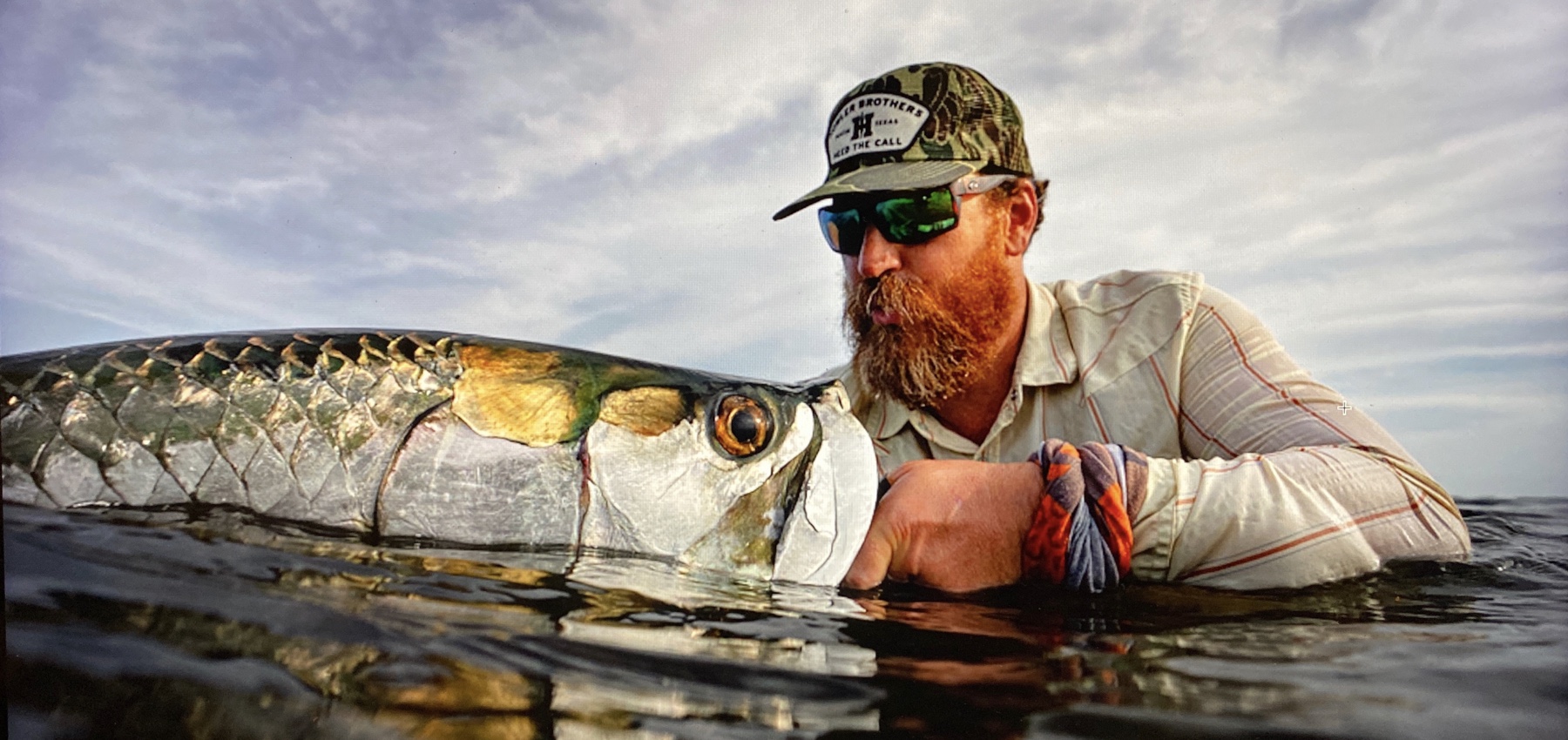
Rick Wittenbraker is the CMO of Howler Brothers, an Austin-based apparel company that creates some of the most unique, stylish, quirky, and highly functional outdoor clothing for adventurers of all stripes. In a little over a decade, Howler has firmly established itself as the go-to brand for anglers, surfers, travelers, and fun-seekers– the kind of people who value good times with good friends in cool places.
Rick was born and raised in Texas, attended UT Austin, and spent the first years of his career in traditional businesses such as finance and sales. But in 2009, he joined an up-and-coming cooler company known as Yeti, and that is where Rick’s genius for storytelling really broke through. He eventually became Yeti’s VP of Marketing and was one of the major forces behind Yeti’s groundbreaking approach to building a brand through outside-the-box storytelling. Along the way, he met Howler Brother’s founders– Chase Heard and Andy Stepanian– and eventually decided to join them and apply his brand-building expertise toward expanding what is now known as The Howlerverse.
Rick has been a longtime mentor of mine, and I credit his wisdom and counsel as being one the main factors that have allowed me to build Mountain & Prairie from a silly little side project into my full-time job. And there are countless creatives and entrepreneurs who have a similar story of Rick generously taking an interest in their project, offering his hard-earned wisdom, and expecting nothing in return. So this episode with Rick was long overdue.
We recorded this in Austin, at the Howler Brothers HQ, and we covered a lot, including: Rick’s career path, lessons learned from living internationally, his philosophies around building authentic, completely original brands, his ever-present focus on generosity and humility, separating personal identity from brand identity, growing without abandoning core values, the spirit behind the Howler Brothers brand, the Howler Brothers book, some of his favorite books, and much more.
A big thanks to Rick for taking the time to chat with me, as well as for everything he’s done to help Mountain & Prairie grow and evolve over the years. Hope you enjoy this conversation as much as I did.
Photos courtesy of Rick Wittenbraker
LISTEN & DOWNLOAD:
Apple Podcasts
Spotify
Google Podcasts
… or wherever you get your podcasts!
—
RESOURCES:
Topics Discussed:
- 4:00 – Rick’s childhood and what he wanted to be when he grew up
- 9:15 – Rick’s first job out of college
- 11:15 – Rick’s mentor in his first job
- 14:45 – When Rick became interested in marketing
- 18:00 – When Rick realized he and Yeti were onto something big
- 20:45 – Inspirations for Rick’s style of marketing with Yeti, and why it works so well
- 25:30 – Fun that Rick has had on the job
- 27:45 – Why Rick decided to move along from Yeti
- 29:45 – A bump in Rick’s career road
- 31:15 – Balancing the merits of business ideas and businesses with the people who implement them
- 38:00 – Describing Howler Bros.
- 44:15 – How Howler Bros. balances their identity and values with the need for business growth
- 46:15 – Separating personal identity from brand identity
- 49:30 – Balancing initiative and recklessness as it pertains to business progress
- 51:30 – Where Rick’s generosity and willingness to help comes from
- 54:00 – The future of Howler Bros.
- 58:15 – Rick’s book recommendations
- 1:03:00 – Rick’s parting words of wisdom
Information Referenced:
- Rick Wittenbraker
- Howler Bros.
- Flyfishing Film Tour
- Yeti Coolers
- Flip Pallot
- Jose Wajebe
- Bill Dance
- Chase Heard and Andy Stepanian
- Howler monkey
- A Decade of Howler Brothers Book
- Goodbye to a River by John Graves
- Lonesome Dove by Larry McMurtry
- Call an Audible by Daron K. Roberts
Enjoy this episode? Then you might like these too:
- Nick Offerman – Empathy, Nuance, & Good Hard Work
- Alvin Dedeaux – Living His Dream
- Kathie Sever – Chainstitching, Craftsmanship, and Cosmic Western Wear
- Chris Burkard, Part 2 – Seeking Beauty Through Adventure
- Beau Alexander – Paying Homage to the Past, While Focusing on the Future
- Jess Mudgett – Humble & Grateful
- Pete McBride, Part 2: In Search of Silence
- Rick Ridgeway – Purpose-Driven Adventurer
- Anna Borgman – Obsession, Curiosity, and Purpose-Driven Work
Visit the podcast page for a full, searchable list of episodes
50 Years of the Endangered Species Act – Live in Austin
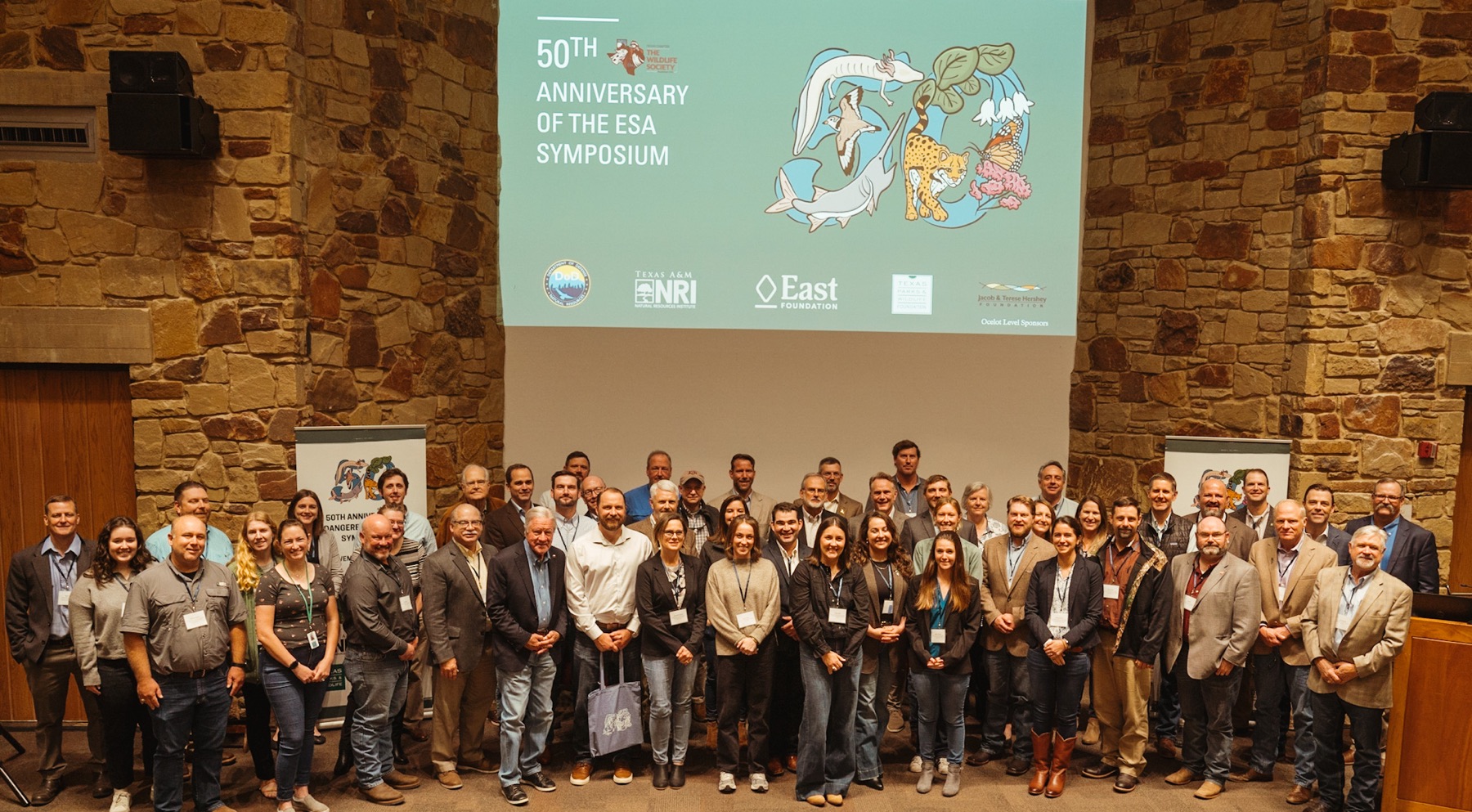
This is a special live episode that was recorded in Austin, Texas, in November of 2023 at the 50th Anniversary Endangered Species Act Symposium. As you may know, 2023 marked 50 years since the passing of the Endangered Species Act (ESA), which is one the most influential and impactful pieces of conservation legislation in United States history. This symposium gathered together an impressive and wide range of ESA experts from governmental, non-profit, and for-profit organizations, and we spent the day discussing the ESA’s fascinating and complex past, present, and future.
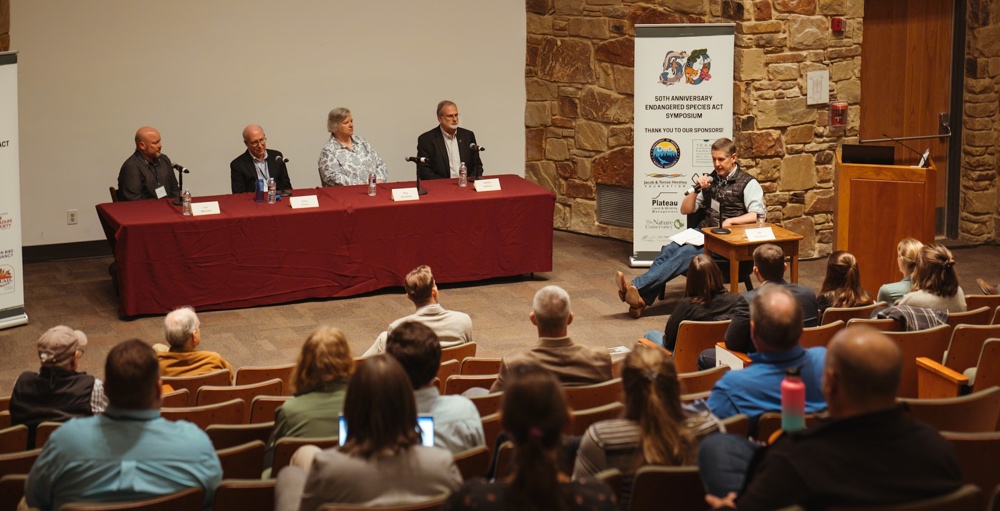
In this episode, we’ll hear from four leaders who have worked in the trenches of conservation for decades, and each of them brings a unique perspective on both the challenges and opportunities that the ESA creates for on-the-ground conservation. The panelists are:
- Gary Frazer – Assistant Director for Ecological Services at the US Fish and Wildlife Service
- Peg Romanik – Recently retired high-ranking attorney from the Department of Interior
- Jimmy Bullock – Senior Vice President at Resource Management Service LLC
- Leo Miranda-Castro – Former USFWS Director and current Executive Director of Conservation without Conflict
All four of these distinguished panelists have worked extensively within the frameworks of the Endangered Species Act, and they bring a wealth of practical and philosophical knowledge about the ESA’s impact over the past 50 years… and its expected impacts in the future. But perhaps more importantly, these four panelists helped me to appreciate the humanity behind the historic, powerful legislation– the smart, dedicated, conservation-minded leaders whose work has allowed the act to effect change and evolve over the past five decades.
We covered a lot during this hour-long discussion, and highlights include: How the ESA switched from a more punitive to a more collaborative approach; concrete examples of productive, collaborative conservation; working with the extreme opinions about climate change; hopes for the future of market-incentivized species conservation; examining potential political threats to the ESA; the evolution of using the ESA for single species conservation to using it for landscape-scale conservation, advice for young people in the conservation field, and much more.
This episode was the last panel discussion of the day, so if you’d like to listen to the first three panels, you can do so below. Those earlier sessions include discussions with everyone from one of the ESA’s authors to some of today’s most renowned conservation thought leaders– I really can’t imagine having a more impressive group of conservation practitioners in one room. You can check out the Symposium program, which includes all the details of the day’s event and speaker bios.
And one more thing: This symposium was organized by the fellows of the James G. Teer Conservation Leadership Institute, which is sponsored by The Texas Chapter of The Wildlife Society. The mission of the Teer Institute is to ensure a future legacy of well-trained conservation leaders by providing professional training in leadership skills and contemporary conservation. I was so impressed with all the fellows and left this event feeling very optimistic about the future of conservation in Texas and beyond.
A huge thank you to the fellows and to Dr. Roel Lopez of Texas A&M University for inviting me down to Austin to moderate this panel. It was an honor to be in the same room with all these amazingly inspiring folks. Hope you enjoy!
All photos by Brittany Wegner
LISTEN & DOWNLOAD:
Apple Podcasts
Spotify
Google Podcasts
…or wherever you get your podcasts!
RESOURCES:
Topics Discussed:
- 4:00 – Introduction
- 10:15 – Peg describes when the ESA switched from a more punitive to a more collaborative approach
- 14:45 – Leo’s example of exceptional collaborative conservation
- 21:00 – How Gary handles extreme opinions about climate change
- 27:00 – Examples of Jimmy’s work with the ESA that became financially sustainable
- 31:30 – Hopes for the future of market-incentivized species conservation
- 34:45 – Examining the security of the ESA
- 39:00 – Discussing the evolution of using the ESA for single species conservation to using it for landscape-scale conservation
- 44:30 – The panel’s advice for young people in this field
- 53:15 – Wrapping up and acknowledgments
Information Referenced:
- James G. Teer Conservation Leadership Institute
- Symposium Program and Speaker Bios
- Endangered Species Act
- Dr. Roel Lopez
- Peg Romanik
- Leo Miranda
- Gary Frazer
- Jimmy Bullock
- Gopher Tortoise
- National Alliance of Forest Owners
- Section 4 listings
- Katherine Hayhoe
- Saving Us by Katherine Hayhoe
- Rio Encantado, Puerto Rico
- Aldo Leopold
- The Ladybird Johnson Wildflower Center
- East Foundation
- Department of Defense Natural Resources
- Texas Parks and Wildlife Foundation
- Hershey Foundation
- Caesar Kleberg Wildlife Research Institute
- The Temple Foundation
- Bowman Consulting
- The Nature Conservancy
- Welder Wildlife Foundation
- Texas A&M
- Aldo Leopold Foundation
Earlier Symposium Sessions
Session One – Past
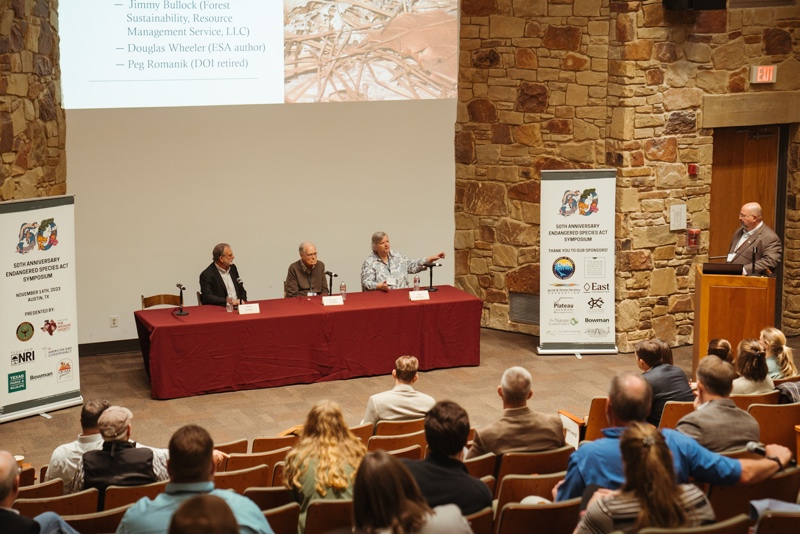
Session Two – Present
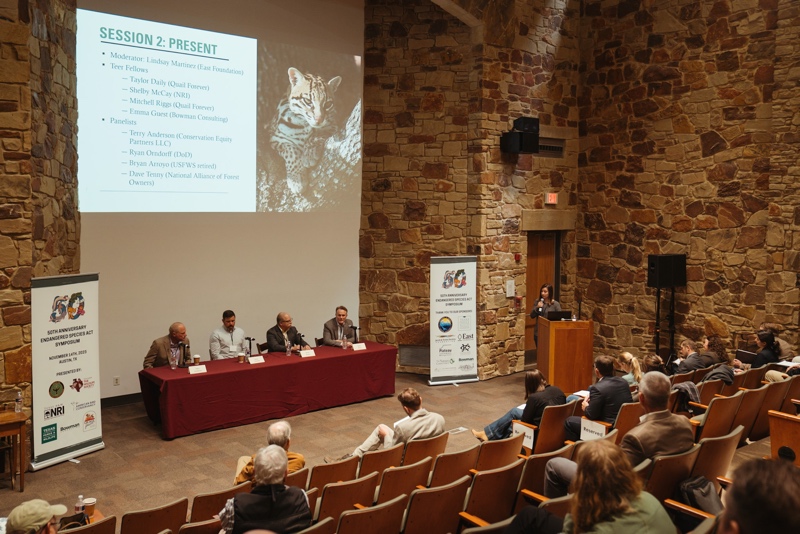
Session Three – Future
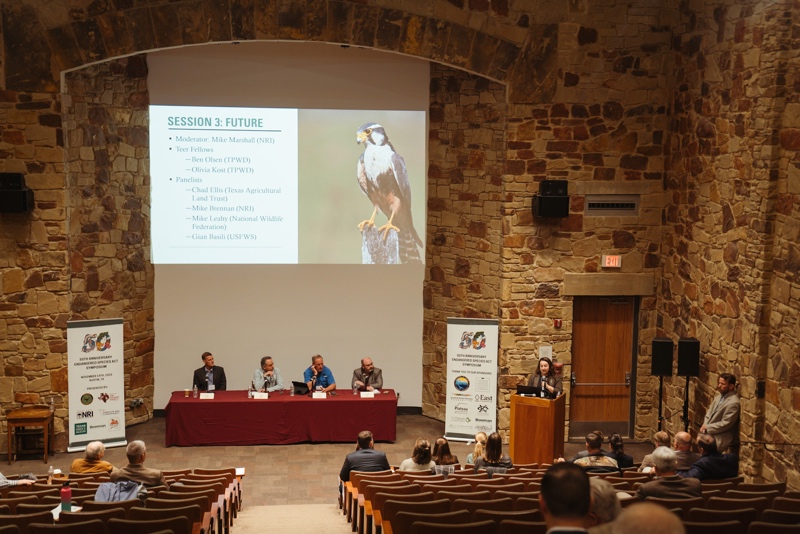
Enjoy this episode? Then you might like these too:
- Landscape-Scale Management in a Private Land State
- Equitable Access to the Outdoors in Texas
- Rebuilding a Resilient, Regional Meat Supply Chain – LIVE at the Old Salt Festival
- Erik Glenn Returns – Leadership, Innovation, & Commitment to Conservation
- James Prosek – Art, Philosophy, & Our Natural World
- Matt Cahill – A Deep Dive into the Sagebrush Sea
- Dr. Sara Dant Returns – “Losing Eden: An Environmental History of the American West”
Visit the podcast page for a full list of episodes where you can filter episodes by topic and guests’ vocations.
2023 Reads
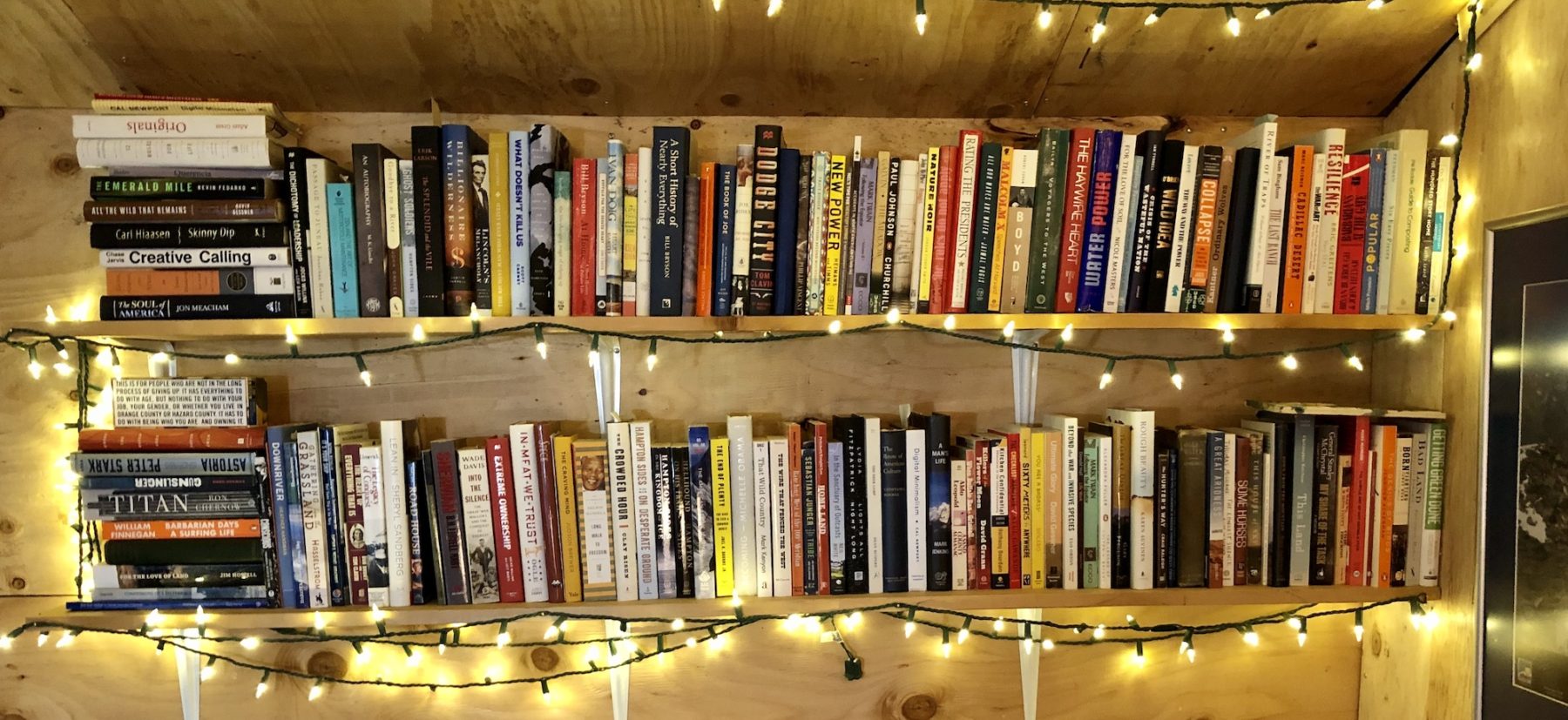
A comprehensive list of every book I recommended in 2023, taken directly from my bimonthly book recommendations email.
Holding Fire: A Reckoning with the American West by Bryce Andrews – I’ve had the pleasure of getting to know Bryce over the past few years, and I am always impressed by his ability to balance being an impressively deep thinker with maintaining a proclivity for action. He’s not sitting around thinking for thinking’s sake– he thinks so that he can make solid choices and do good things. In this book, he thinks and writes about the history and modern-day culture of the American West, a landscape that he loves intensely. The story is centered around his complicated relationship with a .357 Smith & Wesson– a gun he inherited from his grandfather. Bryce takes the reader on a very personal journey, examining his family dynamics, mental health, and love of hunting and ranching. He also digs into broader historical and societal issues, including Manifest Destiny and tough-guy culture. Ultimately, his digging and thinking lead him to take action, melt down the .357, and hand-forge it into a tool for regenerative ranch work. A thought-provoking read. [Another thoughtful and personal book by a Missoula-area author is The River You Touch by Chris Dombrowski.]
Saving Us: A Climate Scientist’s Case for Hope and Healing in a Divided World by Katharine Hayhoe – Dr. Hayhoe dedicates this book “to everyone who believes the difficult issues in life are worth talking about,” which, statistics show, is the vast majority of Americans. Despite what the extreme edges of the political spectrum want us to believe, most folks want to learn, talk, and find common ground. Saving Us is less of a deep dive into climate science and more of a guidebook on how to have civil, productive, respectful conversations, no matter the topic. If facts, figures, and endless information could solve all our problems, we’d be living in a Garden-of-Eden-before-the-whole-apple-debacle utopia. As Dr. Hayhoe explains, statistics are worthless if we cannot communicate them across cultural/political/societal divides in an honest and civil manner. Thankfully, she’s figured out methods for having these challenging conversations, and she generously shares her techniques with us in this book. Highly recommended. [If you prefer listening to reading, check out my recent podcast conversation with Dr. Hayhoe. If you mute it when I talk, it’s an awesome discussion.]
Breathe: A Life in Flow by Rickson Gracie – Rickson is arguably the greatest all-around fighter in history, and the Gracie family is credited with transforming jiu-jitsu from an obscure martial art into the most effective fighting technique on earth. Breathe is the story of Rickson’s evolution as a fighter and human– from learning jiu-jitsu from his domineering father to being tested on the streets of Rio, from ascending the ranks of high-dollar professional fighting to becoming the patriarch of modern-day jiu-jitsu. He provides a fascinating glimpse into the culture of Brazil in the 70s and 80s, and an even more fascinating glimpse into the sometime-bizarre, insular, hyper-competitive culture of the Gracie family. Rickson is a complex dude, and this memoir reveals many conflicting– sometimes aggressively clashing– aspects of his personal operating system. He’s humble yet arrogant, compassionate yet violent, enlightened yet bullheaded, curious yet close-minded. Whaddaya know, he’s an imperfect human, just like me! [As I read about Hickson’s obsession with “respect,” I was constantly reminded of Tamler Sommers’ Why Honor Matters.]
The Book of Delights: Essays by Ross Gay – I would have never picked up this book had it not been sent to me by a good friend who oddly seems to know what I want/need to read before I do. I wish I could explain why this book is so special, but I can’t, so I’ll just say: “I loved it.” I caught myself smiling while I read it, even though my baseline expression is apparently a scowl. The book was just what I needed at this specific moment– optimistic, hilarious, incisive, insightful, and… sorry to do this… delightful. Gay is a poet by trade, so he has a way with words, but I most admire his commitment to forcing himself to focus on the positive. And not a Pollyanna, head-in-the-sand version of positive. Rather, he looks directly at the world’s imperfections and horrors, acknowledges them, feels them, and then continues on with his work of seeking out the delightful. [At times, Gay’s hilariously precise observations reminded me of David Sedaris, especially his When You Are Engulfed in Flames.]
Thinking Like Your Editor: How to Write Great Serious Nonfiction and Get It Published by Susan Rabiner and Alfred Fortunato – The subtitle pretty much sum it up. If you want to write a nonfiction book using traditional publishing methods, this is the instruction manual. Recommended to me by several published authors, Thinking Like Your Editor walks you through strategies and tactics that just might allow you to transform that seed of an idea in your brain into the intellectual property of a major publishing house. The book was published in 2002, so some of the specifics and references are a bit dated, but all the important stuff is still there. Note to self: Reading a book about writing a book doesn’t write the book. [Two excellent books about writing are On Writing by Stephen King and On Writing Well by William Zinsser.]
War by Sebastian Junger – If you’ve been following my recommendations for a while, then you’re probably sick and tired of my repeated touting of Junger’s Tribe: On Homecoming and Belonging, which is one of the most impactful books I’ve read. War is the story that informed many of the foundational ideas in Tribe, and it details Junger’s time embedded with an Army platoon at a deadly outpost in the unforgiving mountains of Afghanistan. Yes, War is obviously about war, but to me, the book is more about the brotherhood that binds young men who find themselves united against a common enemy, surrounded by perpetual mind-scrambling danger, dependent on each other to stay alive. Junger does a masterful job helping someone like me (who never served) understand how war can be simultaneously miserable, addictive, and desirable, and why it has been such a right of passage for young men for as long as we humans have been fighting with each other. [To hear Junger discuss this topic for an hour, check out this podcast episode: Why Men Seek Danger.]
The Fixed Stars by Molly Wizenberg – When I read a memoir, I’m not looking for entertainment, I want to learn. And my favorite memoirs are those in which I share little in common with the author, yet their skill as a writer allows me to deeply connect with their story, understand their motivations and choices, and finish the book with a wider perspective or new way of looking at the world. I have very little interest in having my ideas confirmed or affirmed– I want to stretch and stress test my notions, to uncover any blatant holes in my thinking. So a huge thank you to the wonderful Molly Wizenberg for offering this raw, vulnerable, hopeful, and at times heartbreaking look into her life, one that made me think hard about the power of our self-imposed identities, personal evolution, and familial bonds. And while I would’ve enjoyed the book under any circumstances, it was an added bonus that Molly just so happens to be a fun, funny, and down-to-earth human. To hear for yourself, check out our podcast conversation.
The Martian by Andy Weir – I have no idea why this book popped into my consciousness or why it rose to the top of my way-too-long need-to-read list. But it did, and I’m glad, and I loved it. I read very few novels, I’m usually not a fan of science fiction, but this book had me locked in from the first few pages. The main character was legitimately hilarious, and, as far as I could tell, the details of the story seemed to be rooted in real-life science/physics/space/smart-people stuff. And as an added bonus, it’s written in a manner that flatters the ego of a not-so-smart liberal arts graduate like me by making me feel that I fully understand the physics of interplanetary rocket science. But I was especially intrigued by the backstory of the author and how he came to write such a runaway best-seller-turned-blockbuster movie. The book started out as a series of blog posts that he then turned into a $0.99 self-published ebook… and it took off from there. Fun book, fun backstory, highly recommended. [And speaking of action-packed novels, if you haven’t already, read The Painter by Peter Heller.]
Industrial Society and Its Future by FC aka Ted Kaczynski aka The Unabomber – In my seven and a half years of sending out these emails, this may seem like the strangest title I’ve recommended. But there’s no way around it– the “Unabomber Manifesto” is a thought-provoking read. While I admittedly have a tough time separating the book’s ideas from its author, there are several sections that are amazingly prescient to today’s headlines around polarized politics and exponentially advancing technology. But unfortunately for Kaczynski, his sometimes-impressive premonitions and theories aren’t good for much other than serving as a kind of historical sideshow spectacle. Rather than using his exceptional intellectual horsepower to actually effect change, he chose to sit in a cabin alone for 20 years, fuming about how things ought to be, and occasionally lashing out violently. While Kaczynski seemed to believe the was some sort of revolutionary– the hero of his own story– I see his life as a cautionary tale of wasted potential, delusions of grandeur, and the murky gray area that can sometimes separate genius and insanity.
Crow Fair, Gallatin Canyon, and Cloudbursts by Thomas McGuane – As you can see, I’m going deep down the rabbit hole of McGuane short stories, and I’m loving it. With these three collections, I’ve been happily jumping from book to book, story to story, and have yet to finish them all. There’s nothing I can write here that would do justice to McGuane’s skill as a storyteller– let’s just say he’s a literary genius and leave it at that. But what really intrigues me about him is the intensity and single-mindedness that he seems to bring to all aspects of his life– from writing to fishing to roping and everything in between. And how he transformed from a singularly focused, straight-laced aspiring novelist into a Key West wild man known as “Captain Berserko” and then back again to a singularly focused wordsmith. Being blessed with an all-or-nothing personality myself, I’m always seeking guidance from those who have corralled that sometimes-challenging personality trait into something productive. While I haven’t discovered McGuane’s secret quite yet, I expect to have it all figured out once I’m through all these stories. Reasonable expectation, right? [Another collection I loved and revisit often is Chris la Tray’s One-Sentence Journal.]
Grizzly Years: In Search of the American Wilderness by Doug Peacock – From the earliest days of my podcast, guests have consistently recommended this book as a must-read about the American West. Now I understand why. It’s Peacock’s story of finding healing and purpose in the aftermath of the violence of the Vietnam War– an odyssey that began when he wandered into the backcountry of Yellowstone National Park while in the throes of a malaria-induced fever dream. When he came to, he was in the world of grizzlies, and– unlike me, who would’ve screamed and cried and run for my life– he stayed, forming a deep bond with the beautiful-but-deadly animals. Doug credits the grizzlies with saving his life, and he has spent the majority of his life entirely focused on protecting them. A must-read for anyone who loves the Greater Yellowstone Ecosystem, grizzlies, or purpose-driven humans. [Doug was the inspiration for the character Hayduke in his pal Ed Abbey’s classic The Monkey Wrench Gang.]
Was it Worth It? A Wilderness Warrior’s Long Trail Home by Doug Peacock – This is Peacock’s most recent book, a collection of some of his incredible adventures protecting wild places. From the deserts of North America to the wilds of Russia to the coasts of Central America and British Columbia, Peacock takes the reader to beautiful and sometimes-unforgiving landscapes– landscapes that would surely be ruined without the protection of eco-warriors like Peacock. While I loved the adventure stories, I was most struck by Peacock’s long-lasting friendships with many high-powered personalities– Yvon Chouinard, Jim Harrison, Ed Abbey, Rick Ridgeway, Doug Tompkins, and more. I’m fascinated by how that crew of rebellious legends fed off each other’s energy, increasing their impact both individually and collectively. Also, Was it Worth It? was published by Patagonia Books, so it’s jam-packed with stunning photos, making it more of a work of art than a simple book. [If you haven’t already, read Life Lived Wild by Rick Ridgeway, another beautiful book by a living legend.] [And here are my conversations with both Doug and Rick.]
River Teeth: Stories and Writings and My Story as Told by Water: Confessions, Druidic Rants, Reflections, Bird-watchings, Fish-stalkings, Visions, Songs and Prayers Refracting Light, From Living Rivers, in the Age of the Industrial Dark by David James Duncan – Back in 2002, I was headed off on my first big adventure in really big mountains. On the flight to Mendoza, my buddy handed me his tattered copy of The River Why and said: “Read this.” Who would’ve ever guessed that more than two decades after that initial cinematic introduction to the great David James Duncan, I’d be sitting on a stage with him, trying to ask coherent questions about his legendary life’s work? In preparation for my interview, I focused on these two collections of essays– powerful, vulnerable, sometimes-hilarious, sometimes-heartbreaking tales from his life of writing, activism, fishing, and deep thinking. Even though he’s operating on a much higher intellectual and spiritual plane than me, Duncan has the rare ability to make his nuanced, poetic ideas about place, spirituality, death, loss, and fly fishing enlightening, even to an averaged-brained human like me. I especially connected with Who Owns the West: Seven Wrong Answers, The Non Sense of Place, Beauty/Violence/Grief/Frenzy/Love: On the Contemplative Versus the Activist Life, and The Mickey Mantle Koan, but every single essay is worth multiple reads. [Duncan’s newest masterpiece, Sun House, will be published on 8/8– so be on the lookout for my Sun House recommendation and our podcast episode later this summer.]
Make It: 50 Myths and Truths about Creating by Brendan Leonard – Brendan is one of the most prolific artists I know, consistently cranking out an extremely high quality/quantity of books, essays, cartoons, films, and newsletters year after year after year. If you’re wondering how he does it, you’re in luck– in this new book, he shares 50 ideas about the creative process. Combining his cartoons with hilariously insightful essays– with the occasional F word thrown in for emphasis– Brendan destroys the nonsensical excuses that people like me use to talk themselves out of doing creative work. According to Brendan, it’s a “polite but firm kick in the ass” to help people get going. And not that Brendan needs my endorsement, but I credit his example and approach with helping me to transform my little creative side projects into a full-time job. Great book. It’ll make you make. [Another excellent book on this subject is Seth Godin’s The Practice.]
A Traveler’s Guide to the End of the World: Tales for Fire, Wind, and Water by David Gessner – And speaking of prolific, David Gessner is back! This time, his focus is climate change. A dour topic for sure, but, as we’ve come to expect from Gessner, he injects humor and wit into all of his writing, which makes the medicine go down a little smoother. A Traveler’s Guide chronicles his journeys around the country, where he finds himself in a variety of climate disasters– from historic forest fires in the American West to hurricanes on North Carolina’s Outer Banks. Eschewing the ubiquitous facts, figures, and policy debates that often dominate climate-focused books, David does what he does best: he tells stories. Specifically, he tells impactful, insightful stories from the front lines of the climate crisis– stories that are still rattling around in my head weeks later and have even caught the attention of the Washington Post and Independent. [Another recent non-facts-and-figures climate change book I enjoyed was Saving Us by Dr. Katharine Hayhoe.] [And if you want to hear the authors discuss these climate-focused books, you can listen to my podcasts with David and Katharine.]
The Song of Significance: A New Manifesto for Teams by Seth Godin – I read everything Seth Godin writes. Of all his most recent books, this one is probably the least applicable to my life and work, as it is about working on teams within organizations– but I still gleaned great value from it. Thankfully, I’ve managed to escape the nightmarish dystopian hellscape that is Zoom and Slack, but amazingly, Seth seems to have figured out how to use those tools to actually bring out the best in people. Written in the same structure as many of Seth’s most recent books, it’s 100+ quick-but-powerful chapters that will help leaders ensure their teams are empowered, confident, satisfied, and content with their jobs. And please note, I did not write “feel empowered”– Seth wants them to actually be empowered. What an outlandish, non-MBA approach to leadership! [The best organizational leadership book I’ve ever read is Extreme Ownership by Jocko Willink and Leif Babin.]
I’m currently in the depths of a personal writing project that has me skimming through some of my favorite funny memoirs and non-fiction writing. I’ve laughed hysterically at The Sex Lives of Cannibals and Getting Stoned with Savages by J. Marteen Troost, When You Are Engulfed in Flames by David Sedaris, A Walk in the Woods by Bill Bryson, Jaguars Ripped My Flesh by Tim Cahill, and The Selected Columns of Carl Hiaasen. I also just started The World’s Largest Man by Harrison Scott Key, and it’s hilarious. Please let me know if you know of other laugh-out-loud non-fiction writers that I may be missing.
Call Sign Chaos: Learning to Lead by Jim Mattis and Bing West – An acquaintance of mine who I greatly admire named his first son Mattis, so that was all the encouragement I needed to read this book. It’s the General’s memoir, covering his life as a wild, trouble-making teen through his highly accomplished career as a Marine and public servant. When it came to serving his country, Mattis was all in– he never married, maniacally read and studied history, and was intimately involved in almost all of the major military events of the past 30+ years. He earned the respect of both his superiors and subordinates and is rightly considered one of the military’s most effective leaders in recent history. I loved Mattis’s focus on reading (“If you haven’t read hundreds of books, you are functionally illiterate…”), and I was intrigued by the constant friction between the paper pushers in Washington and the soldiers on the ground in war zones. I was also fascinated by his ideas about managing crises vs. eliminating them, and his frustrations whenever politics thwarted his ability to achieve his military objectives. I loved this book. [One of my other favorite memoirs is Shoe Dog by Phil Knight.]
Leadership Strategy and Tactics: Field Manual by Jocko Willink – This was the sole remaining leadership book by Jocko that I had yet to read, and I cranked through it in a day. Jocko has the rare ability to write in a clear, not-fancy, easy-to-understand style, yet his paragraphs still manage to carry a ton of weight. The purpose of this book is to clearly and simply provide actionable wisdom on leadership– specific methods to overarching ideologies that can be applied anywhere from the battlefield to the family dining room table. Despite his warrior pedigree and tough-guy veneer, his approach to leadership is much more Dalai Lama than General MacArthur– he emphasizes listening, abolishing ego, building relationships, being of service to subordinates, and letting go of control. A worthwhile read for leaders of all stripes. [Jocko’s Extreme Ownership is one of the most perspective-shifting books I’ve ever read.]
Shambhala: The Sacred Path of the Warrior by Chögyam Trungpa – This was the second book I ever read about Buddhist philosophy. I bought it immediately after my first mediation workshop at the Shambhala Center, the organization founded by Trungpa. Very little of it made sense to me when I read it back in 2012, but this time around, with dozens of Eastern philosophy books and hundreds of hours of meditation under my belt, it struck a much stronger chord. The basic idea (as I understand it) is that true contentment and peace cannot be found externally, only through nurturing our minds with curiosity and compassion. A decade ago, I would’ve laughed out loud at the preceding spiritual-mumbo-jumbo sentence, but thanks to books like this, I really do believe that mumbo-jumbo to be true. [The first Buddhism-focused book I ever read was The Art of Happiness by the Dalai Lama.]
Don’t Bite the Hook by Finding Freedom from Anger, Resentment, and Other Destructive Emotions by Pema Chodron (audiobook) – I estimate that I’ve listened to this book at least 20 times, two of those being during the past month. The subtitle gives you all the information you need to know about its topic, but I’ll use this recommendation to once again proclaim: Pema Chodron is one of the wisest humans walking the earth today. I love everything she writes, and I love listening to her lecture even more. I’ve never met her, I’m not a Buddhist, nor do I have any plans to convert, but I still consider her one of my greatest teachers. [Another Pema audiobook that I’ve had on rotation for many years is Smile at Fear.]
The 5 Second Rule: Transform your Life, Work, and Confidence with Everyday Courage by Mel Robbins (audiobook) – One of my reading goals for 2023 was to avoid self-help books like the plague. But the Algorithmic Overlords started feeding me clips of the unmistakably tough-talking, no-nonsense Mel Robbins, and before I knew what had happened, I was listening to this audiobook on one of my many long drives. As much as I hate to admit it, I think Mel is on to something here, at least when it comes to my problem with procrastination. Basically, she’s extolling the virtues of quickly and aggressively breaking the inertia of fear/laziness/stalling, then immediately forcing yourself to simply start working. None of this is new, and all of it is simple and unsurprising. But implementing these tactics can be surprisingly difficult, a fact that she seems to enjoy repeating. I’m not sure if it’s Mel’s ingratiating midwestern accent or her charismatic repackaging of age-old ideas, but I’ve been counting to five and getting to work and feeling better about myself, so I won’t ask to many questions and will just go with it. [The Art of Taking Action by Gregg Krech is a different version of the same idea with a wildly different tone.]
Nobody Wants to Read Your Sh*t: And Other Tough-Love Truths to Make You a Better Writer by Steven Pressfield – Later this week, I’ll be pointing my truck westward and heading to Vernal, Utah, which is the launching point for my first-ever course as an instructor with the Freeflow Institute. We’ll be exploring how to use storytelling as a tool to effect change, and how to respectfully capture people’s attention in an increasingly loud and mostly annoying media landscape. My first assignment to the students was this straight-to-the-point book, a book selection that very well may have caused s few of them to question their teacher’s judgment and their own decision to attend the workshop. Anyway, I live by Pressfield’s foul-mouthed credo, and I fully embrace the fact that no one is going to beat down the door to listen to my podcast, read my writing, or subscribe to my emails– it’s on me to make something that is worth consuming and sharing. [Pressfield’s Turning Pro also packs a punch.]
Call an Audible: Let My Pivot from Harvard Law to NFL Coach Inspire Your Transition by Daron K. Roberts – I’ve been a loyal subscriber to Coach Roberts’ weekly email for several years, and I’m always happy to see his name show up in my inbox every Wednesday. Both Daron and his writing are funny, no-nonsense, inspiring, and practical. I’d been wanting to read his memoir for quite some time now, and I’m do glad I finally did. The book follows his journey from growing up in small-town Texas to Student Body President at the University of Texas to student at Harvard Law School. And as the subtitle explains, upon graduating from Harvard, he took an aggressive turn off the beaten path and focused his overflowing energy on becoming an NFL coach. My takeaways from Daron’s professional odyssey are: 1) He was not above performing even the most menial, ego-challenging tasks, 2) He understood the importance of building solid relationships up and down the chain of command, 3) He would respectfully not take no for an answer, and 4) He was willing to work harder than his competition. Daron’s story will resonate with anyone who has followed (or dreams of following) an unconventional path. [Speaking of football, Monte Burke’s Saban is excellent.]
Where the Deer and the Antelope Play: The Pastoral Observations of One Ignorant American Who Loves to Walk Outside by Nick Offerman – You probably know Nick from his portrayal of Ron Swanson on NBC’s Parks and Recreation, but that legendary performance is only the tip of the iceberg– he’s a master woodworker, disciple of Wendell Berry, traveling humorist, regenerative agriculture advocate, and voracious reader, just to name a few. In this, his newest book, he explores ideas around conservation, land stewardship, and responsible, thoughtful living through a series of adventures and misadventures in the American West and English countryside. Combining his insatiable curiosity with his unmistakable humor, the book is basically a blueprint for how to be kind (i.e., not a jerk), thoughtful (i.e., not a shallow-thinking idiot), humble (i.e., not a narcissist), and a hard worker (i.e., not a lazy slob). In September of 2023, this book was named The Official Mountain & Prairie Guide to Life (by me). [To hear Nick and I discuss the book, as well as more obscure topics such as “old Superman,” check out our recent podcast conversation.]
Paddle Your Own Canoe: One Man’s Fundamentals for Delicious Living by Nick Offerman – This was Nick’s first foray into the publishing world– and also his first of five appearances on the New York Times bestseller list. Published back in 2013, it’s his life story spanning from his youth in a small, tight-knit Midwestern community up to when he “made it” as an actor after nearly 20 years of grinding on the lower rungs of show business. Nick is hilariously self-deprecating and not at all impressed by fame or wealth, which makes this memoir an even more refreshing and inspirational read. Funny stories, insightful wisdom, and applicable life lessons– there’s value for anyone who places a premium on being a good person. Oh, and Nick narrates all of his audiobooks, as well as three of Wendell Berry’s. So, despite my preference for paper, I can wholeheartedly recommend the audio versions of everything he’s involved with. [I also enjoyed a smattering of chapters from Nick’s book Gumption, particularly Frederick Douglass, Eleanor Roosevelt, Jeff Tweedy, and Conan O’Brien.]
The Cost of Free Land: Jews, Lakota, and an American Inheritance by Rebecca Clarren – There are plenty of books lining the shelves that follow worn-out, not-productive approaches to reckoning with horrors of the past. Some purposefully ignore facts, some blindly and perpetually cast blame, and others self-flagellate into absurdity. The Cost of Free Land is not one of those books. Rebecca takes a nuanced, clear-eyed approach to understanding her family’s complex history– they fled anti-Semitism in Russia and established a new life on the plains of South Dakota, eventually finding success as land-and-business owners. But her family’s success came at a steep cost to the Lakota people, who were the victims of stolen land, broken treaties, and the devastating loss of their culture and resources. Combining vulnerable family memoir with deeply researched history, Rebecca digs into her family’s complicated past, and then digs into her own Jewish faith to find a productive, healing path forward. I loved it. A must-read. [Another powerful examination of family and brutal history is Sugar in the Blood by Andrea Stuart.]
Wild New World: The Epic Story of Animals and People in America by Dan Flores – I read everything Dan Flores writes. No matter how micro or macro the subject, he presents his narrative in an engaging style that makes hardcore history read like a fast-paced novel. This book definitely falls into the “macro” category– it’s a “big history” covering the past 66 million years of life here on good ol’ Planet Earth. Most of the book is devoted to humans’ relatively brief reign as the apex predator of the world, with an emphasis on just how drastically we have altered the landscapes, flora, and fauna of North America during that short time. But this is not a gloom-and-doom, humans-ruined-the-planet, all-is-lost kind of book. Rather, it’s a realistic accounting of our past that ends with an optimistic appraisal of our current trajectory into the future. [To better understand some of the people and legislation that put us on our current trajectory, read Douglas Brinkley’s Silent Spring Revolution.]
Losing Eden: An Environmental History of the American West by Sara Dant – Losing Eden is definitely one of my most-often recommended books. But despite its being my absolute favorite overview of conservation and environmentalism in the West, the original edition never seemed to reach a broad audience. Thankfully that’s changing, because University of Nebraska Press bought the rights, Sara updated the book, and the end result is an even more substantial tome, complete with new photos, maps, and suggested reading lists. The book’s new format and the new publisher’s willingness to promote it– not to mention Sara’s appearances in the new Ken Burns documentary– will get this very important book into the hands of a much, much larger audience.
The Future of the Responsible Company: What We’ve Learned from Patagonia’s First 50 Years by Vincent Stanley with Yvon Chouinard – I’ve been a Patagonia customer for nearly 30 years, but it wasn’t until I was enrolled in grad school earning my MBA that I began studying Patagonia’s business philosophies. On my own time, I read Yvon’s classic Let My People Go Surfing, which aggressively contradicted much of the standard business instruction I was receiving in the classroom. I often say that a tiny Milton Friedman was whispering his shareholder-value philosophies in one ear, and a tiny Yvon was ranting about responsibility into the other. Ultimately, Yvon won that battle, but I had much more to learn. That’s why I loved this book– it’s a quick-but-effective recap of Patagonia’s greatest business challenges, victories, and missteps, combined with actionable steps that any company or entrepreneur can follow to be more responsible and deliberate– while still turning a healthy profit. [Vincent is an amazing thinker, doer, writer, and speaker, so you might enjoy my recent podcast conversation with him.]
Trusting the Gold: Uncovering Your Natural Goodness by Tara Brach – My guru recommended that I read this book. It was a prescription of sorts, one that was intended to help me lighten up, to quit being so hard on myself. To find a Zen-like approach to internal motivation that does not involve mental beatdowns and comically brutal self-talk. Tara is both a renowned meditation teacher and a highly trained PhD psychologist, so, if anybody can help me break my unproductive self-bullying habits, it’s her. I’ve been reading a chapter or two before bed (each chapter is three pages max), and, I have to say, I’ve been lightening up a bit. Of course that could be related to the daily meditation, excessive exercise, ice baths, breath holds, guru sessions, fasting, or any number of weird “self-care” protocols– but for the purpose of this email, I’ll give 85% of the credit to Tara and her excellent book. [I’ve also been a longtime fan of Tara’s classic book Radical Acceptance.]
Where the Deer and the Antelope Play: The Pastoral Observations of One Ignorant American Who Loves to Walk Outside by Nick Offerman – You probably know Nick from his portrayal of Ron Swanson on NBC’s Parks and Recreation, but that legendary performance is only the tip of the iceberg– he’s a master woodworker, disciple of Wendell Berry, traveling humorist, regenerative agriculture advocate, and voracious reader, just to name a few. In this, his newest book, he explores ideas around conservation, land stewardship, and responsible, thoughtful living through a series of adventures and misadventures in the American West and English countryside. Combining his insatiable curiosity with his unmistakable humor, the book is basically a blueprint for how to be kind (i.e., not a jerk), thoughtful (i.e., not a shallow-thinking idiot), humble (i.e., not a narcissist), and a hard worker (i.e., not a lazy slob). In September of 2023, this book was named The Official Mountain & Prairie Guide to Life (by me). [To hear Nick and I discuss the book, as well as more obscure topics such as “old Superman,” check out our recent podcast conversation.]
Paddle Your Own Canoe: One Man’s Fundamentals for Delicious Living by Nick Offerman – This was Nick’s first foray into the publishing world– and also his first of five appearances on the New York Times bestseller list. Published back in 2013, it’s his life story spanning from his youth in a small, tight-knit Midwestern community up to when he “made it” as an actor after nearly 20 years of grinding on the lower rungs of show business. Nick is hilariously self-deprecating and not at all impressed by fame or wealth, which makes this memoir an even more refreshing and inspirational read. Funny stories, insightful wisdom, and applicable life lessons– there’s value for anyone who places a premium on being a good person. Oh, and Nick narrates all of his audiobooks, as well as three of Wendell Berry’s. So, despite my preference for paper, I can wholeheartedly recommend the audio versions of everything he’s involved with. [I also enjoyed a smattering of chapters from Nick’s book Gumption, particularly Frederick Douglass, Eleanor Roosevelt, Jeff Tweedy, and Conan O’Brien.]
The Cost of Free Land: Jews, Lakota, and an American Inheritance by Rebecca Clarren – There are plenty of books lining the shelves that follow worn-out, not-productive approaches to reckoning with horrors of the past. Some purposefully ignore facts, some blindly and perpetually cast blame, and others self-flagellate into absurdity. The Cost of Free Land is not one of those books. Rebecca takes a nuanced, clear-eyed approach to understanding her family’s complex history– they fled anti-Semitism in Russia and established a new life on the plains of South Dakota, eventually finding success as land-and-business owners. But her family’s success came at a steep cost to the Lakota people, who were the victims of stolen land, broken treaties, and the devastating loss of their culture and resources. Combining vulnerable family memoir with deeply researched history, Rebecca digs into her family’s complicated past, and then digs into her own Jewish faith to find a productive, healing path forward. I loved it. A must-read. [Another powerful examination of family and brutal history is Sugar in the Blood by Andrea Stuart.]
Wild New World: The Epic Story of Animals and People in America by Dan Flores – I read everything Dan Flores writes. No matter how micro or macro the subject, he presents his narrative in an engaging style that makes hardcore history read like a fast-paced novel. This book definitely falls into the “macro” category– it’s a “big history” covering the past 66 million years of life here on good ol’ Planet Earth. Most of the book is devoted to humans’ relatively brief reign as the apex predator of the world, with an emphasis on just how drastically we have altered the landscapes, flora, and fauna of North America during that short time. But this is not a gloom-and-doom, humans-ruined-the-planet, all-is-lost kind of book. Rather, it’s a realistic accounting of our past that ends with an optimistic appraisal of our current trajectory into the future. [To better understand some of the people and legislation that put us on our current trajectory, read Douglas Brinkley’s Silent Spring Revolution.]
Losing Eden: An Environmental History of the American West by Sara Dant – Losing Eden is definitely one of my most-often recommended books. But despite its being my absolute favorite overview of conservation and environmentalism in the West, the original edition never seemed to reach a broad audience. Thankfully that’s changing, because University of Nebraska Press bought the rights, Sara updated the book, and the end result is an even more substantial tome, complete with new photos, maps, and suggested reading lists. The book’s new format and the new publisher’s willingness to promote it– not to mention Sara’s appearances in the new Ken Burns documentary– will get this very important book into the hands of a much, much larger audience.
The Future of the Responsible Company: What We’ve Learned from Patagonia’s First 50 Years by Vincent Stanley with Yvon Chouinard – I’ve been a Patagonia customer for nearly 30 years, but it wasn’t until I was enrolled in grad school earning my MBA that I began studying Patagonia’s business philosophies. On my own time, I read Yvon’s classic Let My People Go Surfing, which aggressively contradicted much of the standard business instruction I was receiving in the classroom. I often say that a tiny Milton Friedman was whispering his shareholder-value philosophies in one ear, and a tiny Yvon was ranting about responsibility into the other. Ultimately, Yvon won that battle, but I had much more to learn. That’s why I loved this book– it’s a quick-but-effective recap of Patagonia’s greatest business challenges, victories, and missteps, combined with actionable steps that any company or entrepreneur can follow to be more responsible and deliberate– while still turning a healthy profit. [Vincent is an amazing thinker, doer, writer, and speaker, so you might enjoy my recent podcast conversation with him.]
Trusting the Gold: Uncovering Your Natural Goodness by Tara Brach – My guru recommended that I read this book. It was a prescription of sorts, one that was intended to help me lighten up, to quit being so hard on myself. To find a Zen-like approach to internal motivation that does not involve mental beatdowns and comically brutal self-talk. Tara is both a renowned meditation teacher and a highly trained PhD psychologist, so, if anybody can help me break my unproductive self-bullying habits, it’s her. I’ve been reading a chapter or two before bed (each chapter is three pages max), and, I have to say, I’ve been lightening up a bit. Of course that could be related to the daily meditation, excessive exercise, ice baths, breath holds, guru sessions, fasting, or any number of weird “self-care” protocols– but for the purpose of this email, I’ll give 85% of the credit to Tara and her excellent book. [I’ve also been a longtime fan of Tara’s classic book Radical Acceptance.]
Paige Lewis – Durable Conservation, Collective Action, and Strategic Thinking
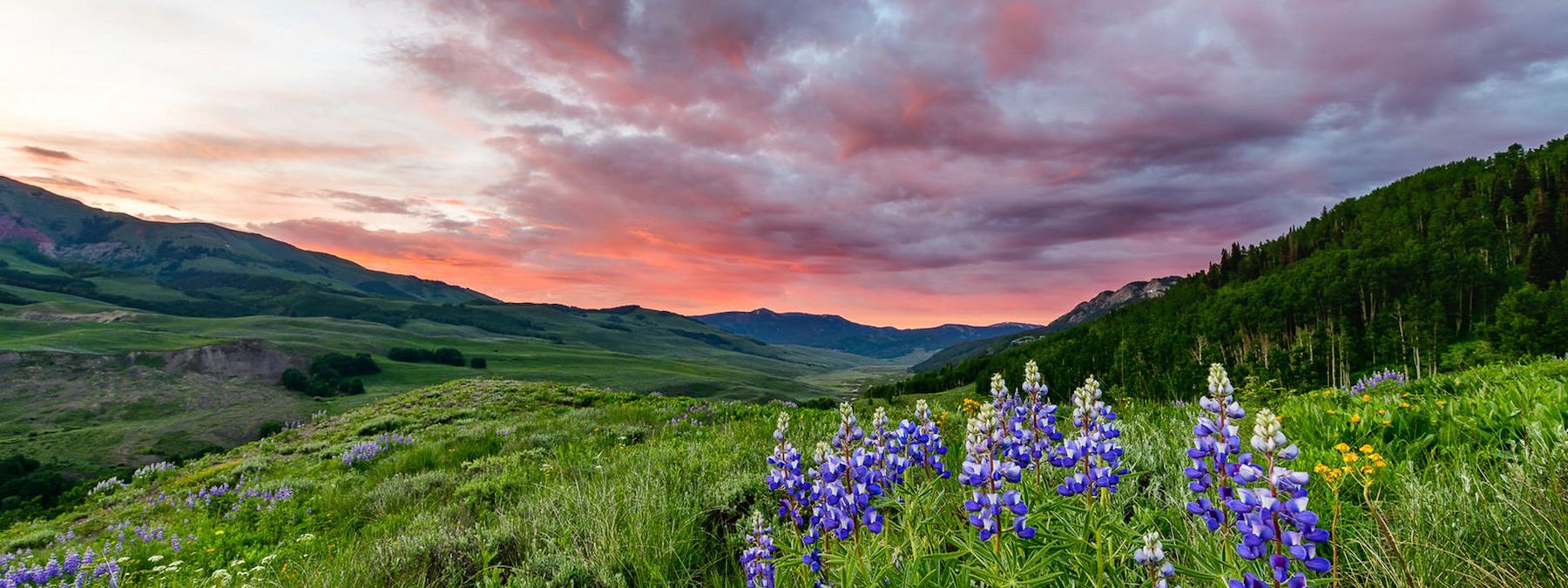
Paige Lewis is the Deputy State Director and Director of Conservation Programs for The Nature Conservancy in Colorado. In this role, she serves as the chapter’s chief conservation officer and is responsible for leading the development of innovative, large-scale and entrepreneurial solutions to the challenges facing people and nature in Colorado and around the world. Paige brings a unique skill set that combines big-picture thinking with tangible, one-the-ground execution– her work involves creating ambitious, large-scale strategies, while also ensuring that the TNC team has the resources, communication, and support to accomplish its goals.
Over the course of this 2023 podcast series with TNC Colorado, we’ve highlighted both the breadth and depth of the organization’s work in Colorado and beyond. From grassland conservation to sustainable water management to forest health to urban conservation efforts (and much more!), it’s been amazing to learn about the positive impact that TNC is having across such a broad spectrum of pressing environmental issues. And if you’ve wondered, as I have, how TNC successfully aligns so many initiatives, teams, and stakeholders toward common organizational goals, well, you’re in luck, because that’s exactly what Paige does!
Paige and I sat down at the TNC office in Boulder just before the holidays and had a fun conversation that looked back at some of the 2023 conservation wins and looked forward toward TNC’s ambitious goals for the future. We started out discussing Paige’s lifelong appreciation for conservation, and her career that took her from her home state of Utah to Washington DC and eventually to Colorado. We discussed her skill of thinking strategically while also focusing on the need to get things done, and how she has managed to keep so many balls in the air year after year. We talk about durable conservation, collective action, and embracing risk, and we also discuss the challenges and opportunities that come with setting ambitious goals. Paige is a voracious reader and lover of history, so she has tons of excellent book recommendations.
A big thank you to Paige for taking the time to chat with me during such a busy time of year, and, once again, thank you for listening. Hope you enjoy.
Header photo by Ethan Herrold/TNC Photo Contest 2019; headshot by Lauryn Wachs.
LISTEN & DOWNLOAD:
Apple Podcasts
Spotify
Google Podcasts
…or wherever you get your podcasts!
EPISODE PARTNER:
This episode is brought to you in partnership with the Colorado chapter of The Nature Conservancy. Guided by science and grounded by decades of collaborative partnerships, The Nature Conservancy has a long-standing legacy of achieving lasting results to create a world where nature and people thrive.
On the fourth Tuesday of every month throughout 2023, Mountain & Prairie will be delving into conversations with a wide range of The Nature Conservancy’s leaders, partners, collaborators, and stakeholders, highlighting the myriad of conservation challenges, opportunities, and solutions here in the American West. You can access all of the 2023 episodes here.
To learn more about The Nature Conservancy’s impactful work in Colorado and around the world, visit www.nature.org/colorado
RESOURCES:
Topics Discussed:
- 3:30 – How Paige became interested in conservation
- 9:15 – Paige’s first conservation job
- 10:45 – Adjusting from the West to DC
- 11:45 – Paige’s return West
- 15:00 – How Paige ended up at TNC
- 18:30 – Paige’s role at TNC
- 23:30 – An example of successful collaborative work in Paige’s time at TNC
- 27:15 – What Paige is most proud of in TNC’s 2023 work
- 30:30 – Reflecting on TNC’s progress towards their 2026 strategic goals
- 34:30 – How Paige prioritizes and keeps all the balls in the air
- 39:45 – What “durable conservation” means and looks like to Paige
- 42:30 – What “collective action” means and looks like to Paige
- 45:30 – How Paige knows when to shift from ideation and relationship building to action
- 48:45 – How TNC’s approach to taking risks has changed during Paige’s tenure
- 52:15 – What qualities Paige thinks makes a good team member at TNC
- 56:15 – Paige’s book recommendations
- 1:02:15 – Paige’s parting words
Information Referenced:
- Paige Lewis
- TNC Colorado’s 2023 Year in Review
- Providence, UT
- Cache Valley
- Bear Mountains
- Wellsville Mountains
- Topophilia by Yi-Fu Tuan
- Logan Canyon
- Utah Division of Forestry, Fire and State Lands
- Western Forestry Leadership Coalition
- Sarah Dant
- Losing Eden by Sara Dant
- Colorado State Forest Service
- Hayman Fire
- Rob Addington
- John Vaillant
- Taylor Hawes
- TNC’s Colorado River Program
- TNC’s work in Mongolia
- TNC’s Southern High Plains Initiative
- Diana Lane
- TNC’s Power to the People and the Planet Program
- Carlos Fernandez
- Catalyst Fund
- Chris Hawkins
- Colorado Outdoor Plan
- Great Outdoors Colorado
- Matt Moorehead
- Legacy of Conquest by Patrica Nelson Limerick
- Fire on the Plateau by Charles Wilkinson
- The Rediscovery of America by Ned Blackhawk
- A Man Called Ove by Frederik Backman
- My Grandmother Asked Me to Tell You She’s Sorry by Frederik Backman
- Demon Copperhead by Barbara Kingsolver
- Animal, Vegetable, Miracle by Barbara Kingsolver
Enjoy this episode? Then you might like these too:
- John Vaillant – A Riveting Exploration of Fire
- Dr. Sara Dant Returns – “Losing Eden: An Environmental History of the American West”
- Erik Glenn Returns – Leadership, Innovation, & Commitment to Conservation
- Carlos Fernández, Part 2 – Creating Conservation Opportunities During Uncertain Times
- Francesca Claverie – A Borderlands Conservation Success Story
- Nate Schweber – A Forgotten Chapter of American Conservation
- Liz Moore – For the Love of Montana
Visit the podcast page for a full list of episodes where you can filter episodes by topic and guests’ vocations.
Jenna Pollard – Timber Framing, Organic Farming, Community, and Purpose

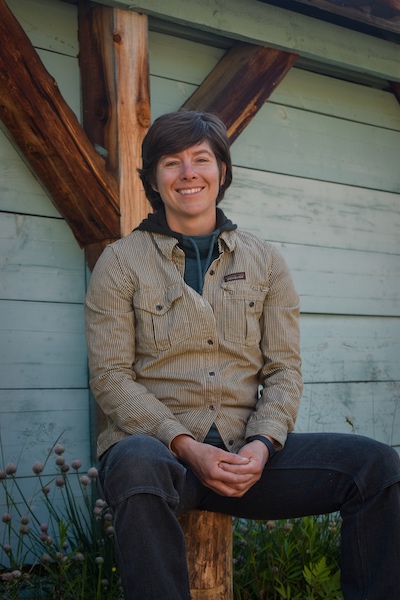
Jenna Pollard is a timber framer, a farmer, and an advocate for organic agriculture, but at her core, she is a teacher. The list of Jenna’s inspiring projects, causes, and interests is too extensive to summarize in a few sentences, but to give you an overview: She hosts workshops for women in which they learn the art of timber framing and build structures as a team from the ground up. She’s a team member with Worldwide Opportunities on Organic Farms (also known as WWOOF), where she helps to provide opportunities for aspiring farmers to build their careers. She’s also a committed traveler, community builder, reader, and all-around inspiring human.
Born and raised in South Dakota, Jenna grew up immersed in the outdoors and various outdoor adventures. After college, she went to work on an organic farm, which began her professional passion for working closely with the land surrounded by a community of like-minded individuals. As you’ll hear, she continued to follow her curiosity and has enjoyed a fulfilling and wide-ranging career– she worked as a teacher in Japan, built her own timber-frame home on the South Dakota prairie, and became deeply involved in helping to develop the skills and confidence of future farmers and timber framers. But if there’s a thread that connects all of Jenna’s work, it’s her commitment to building community through hard work and shared purpose– one of my favorite topics to discuss.
I first learned about Jenna through a short film by Patagonia Workwear that profiled her women’s timber-framing workshops– I’ve linked to the film in the episode notes. So I was thrilled that our schedules aligned so that we could have this conversation, and I learned so much for her. We discussed her upbringing in South Dakota and how her outdoor-focused childhood laid the foundation for her career. We discussed the intricacies of timber framing, and why it is such a powerful skill for building community and confidence. We talk a lot about WWOOF and its Future Farming Program, and Jenna offers some ways that aspiring farmers can get involved. We also discuss books, how Jenna accomplishes so much, how Patagonia has encouraged and supported her work, lessons learned from Japan, and much much more.
If you want to connect with Jenna, attend a workshop, or learn more about WWOOF, there are links to everything in the episode notes. Thanks for listening, hope you enjoy.
Photos courtesy of Jenna Pollard.
LISTEN & DOWNLOAD:
Apple Podcasts
Spotify
Google Podcasts
… or wherever you get your podcasts!
—
RESOURCES:
Topics Discussed:
- 2:30 – Where Jenna grew up
- 4:15 – What Jenna did for fun as a kid
- 6:30 – Turning points in Jenna’s life regarding self-sufficiency in the outdoors
- 8:45 – Post-high school for Jenna
- 11:00 – How something like WWOOFing drew Jenna’s career attention
- 13:30 – Books and thinkers that influenced Jenna’s agrarian lifestyle
- 16:00 – Defining “timber framing,” and exploring why it captured Jenna’s attention
- 20:00 – When Jenna decided to start teaching timber framing
- 21:15 – Discussing the process of Jenna building her house in South Dakota
- 24:45 – How Jenna came to specifically teach women how to timber frame
- 38:15 – How Patagonia became interested in Jenna’s timber framing classes
- 30:45 – Continuing to explore the importance of Jenna’s work with women
- 33:00 – Jenna’s success stories from her classes
- 37:15 – The relationships that Jenna builds through timber framing
- 39:15 – Jenna’s students’ goals
- 40:45 – Discussing WWOOF
- 43:15 – Discussing the 2024 Future Farming Program
- 47:15 – How Jenna manages to do all of this!
- 48:15 – Jenna’s time as a teacher in Japan
- 52:30 – Whether or not Jenna ever questioned her path
- 55:15 – Jenna’s book recommendations
- 1:01:15 – Jenna’s parting words of wisdom
Information Referenced:
- Patagonia film Reframed
- WWOOF
- Places to hear about Jenna’s upcoming classes:
- Email Jenna – jennampollard@gmail.com
- Steger Center
- Canelo Project
- Olympic Outpost
- Timber framing
- Wendell Berry
- Mary Oliver
- The Encyclopedia of Country Living by Carla Emery
- Patagonia
- Patagonia Workwear
- Yvon Chouinard
- Tenkara
- Tribe by Sebastian Junger
- Will Steger
- Patagonia workwear
- Future Farmer Program
- MESA
- Quivira Coalition
- New Agrarian Program
- Kumamoto, Japan
- Jack London
- Just Enough by Azby Brown
- The Art of Taking Action by Gregg Krech
- Shoma Morita
- Jack Sobon
- Pilgrim at Tinker Creek by Annie Dillard (not mentioned in the episode, but this book has been incredibly influential)
Enjoy this episode? Then you might like these too:
- Anna Borgman – Obsession, Curiosity, and Purpose-Driven Work
- Christy Sing Robertson – On Grit, Hard Work, & Going All In
- Jesse Griffiths – Humility, Curiosity, and Creative Cuisine
- Kathie Sever – Chainstitching, Craftsmanship, and Cosmic Western Wear
- Cate Havstad-Casad, Part 2 – Building Businesses for the Greater Good
- Jess Mudgett – Humble & Grateful
- Megan Torgerson – Storytelling from Rural America
Visit the podcast page for a full, searchable list of episodes
